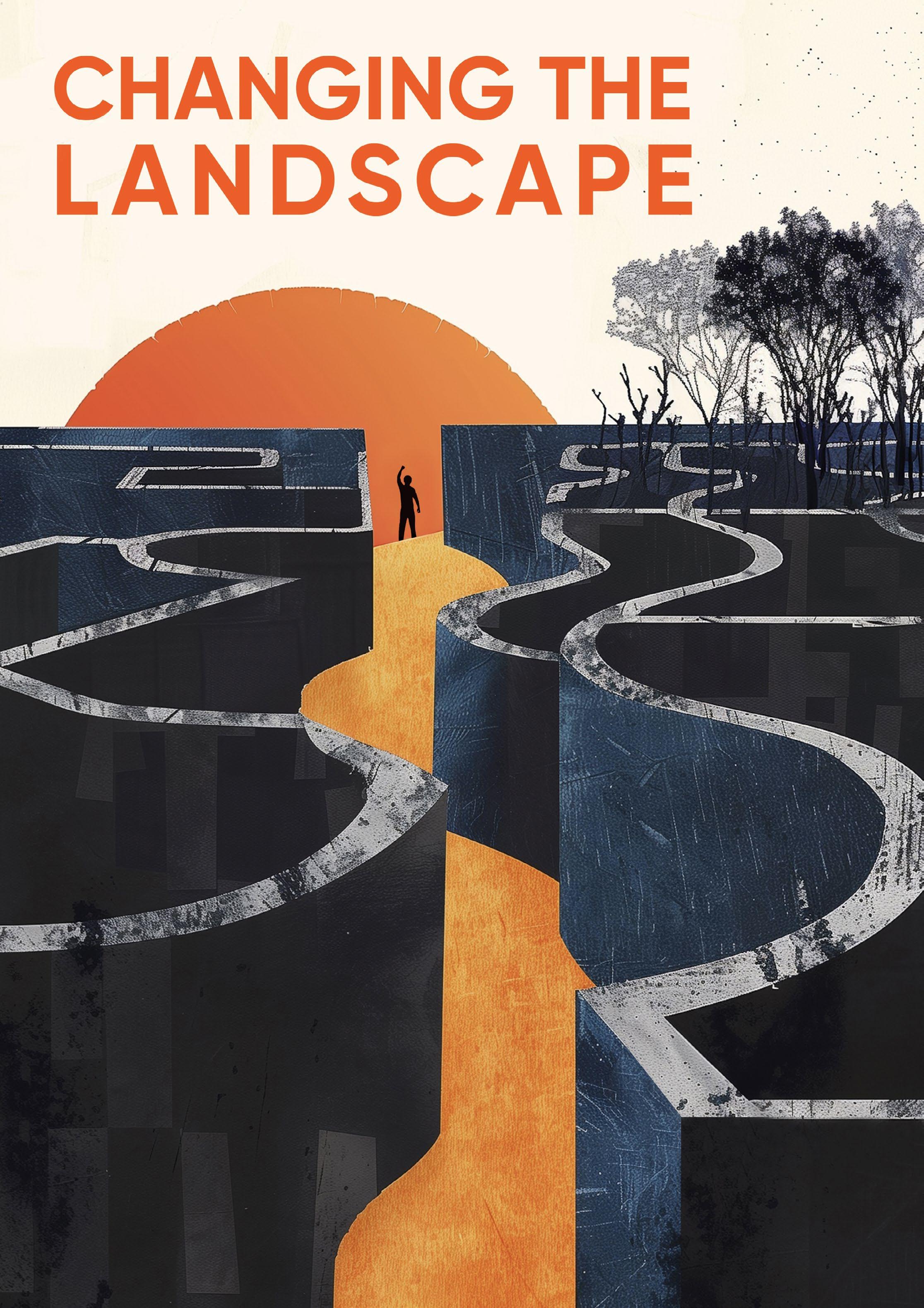
A NN U A L RE P O R T 2 0 2 3
Contents


MESSAGE FROM THE CHAIR
In a true democracy, citizens hold the power
MESSAGE FROM THE EXECUTIVE DIRECTOR
Changing the landscape after 30 years of democratic decline
INTRODUCTION
Changing The Landscape
Behind The Scenes
Raising Our Voices
Who We Are
2023 CORRUPTION TRENDS
Corruption Perceptions Index 2023A New Low
Sub-Saharan Africa
What the data says
REGIONAL & INTERNATIONAL COLLABORATION & ENGAGEMENT
PARTNERSHIPS & COLLABORATION
SPOTLIGHT ON GIZ TRANSPARENCY, INTEGRITY AND ACCOUNTABILITY PROGRAMME


4 8 12 16 18 20 14 22 22 28 32 34 24 26




ANTI-CORRUPTION INITIATIVES
Highlights and Challenges:
Land and Corruption in Africa
Leadership Appointments
OPINION PIECE
Campaigning against corruption
CW VOICES
Reflections on gendered violence and corruption in an election year
2024: The change that Tintswalo needs
GOVERNANCE

Board Members Funders Youth Project State Capture Corporate Corruption Public Procurement Unpacked Police Work and the Veza Tool Submissions Sustainable Mining Investigations 38 70 38 42 74 76 80 84 84 88 44 46 48 50 54 56 62 66 DESIGN BY AGENT ORANGE DESIGN
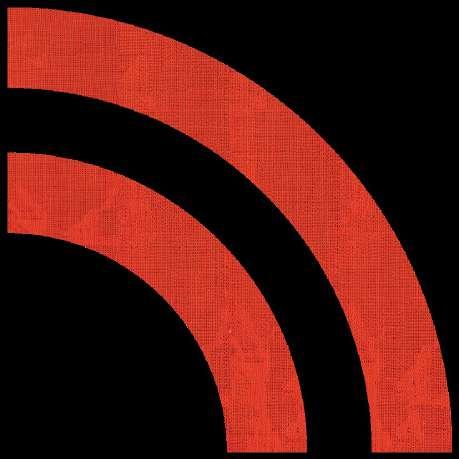
MESSAGE FROM THE CHAIR
In a true democracy, citizens hold the power
By Themba Maseko
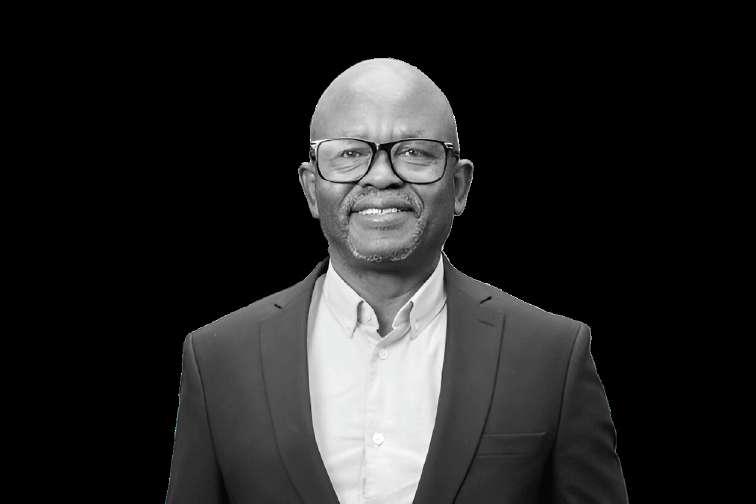
Democracy is under the spotlight in this important year, writes Corruption Watch board chairperson Themba Maseko.
With elections just around the corner, it is time that citizens stop enabling government corruption, and realise that as voters in a democratic society, they hold the power.
By demanding accountability and condemning mediocrity, citizens will put pressure on elected leaders and public servants to institute lasting changes and intensify the fight against corruption.
This annual report is tabled during an election year in which the nation is expected to conduct an introspection about the numerous crises facing the country. These crises include rising levels of poverty, inequality, unemployment, crime, an energy crisis, and a loss of confidence in the state’s capacity to fulfil its electoral and constitutional mandate.
Many, if not all, of these crises are attributable to a governance crisis that is caused by poor planning, poor leadership, and lack of accountability. The country is also experiencing increased social unrest and protests which points to citizen discontent and impatience.
Further, the scourge of corruption continues to be an albatross and an impediment to addressing these crises that are engulfing the country and posing a risk to our democracy.
However, this is no cause for despair as the country’s democratic institutions remain strong, and our citizens remain resilient.
The civil society sector remains agile, strong, and well-positioned to lead the struggle to expose corruption to defend our democracy and demand accountability.

4 ANNUAL REPORT 2023 4
Corruption Watch remains at the centre of the fight against corruption, determined to hold those in power accountable because we understand that this hard-won democracy must be defended by all South Africans who care about the future of their country.
Corruption Watch welcomes and is encouraged by the increasing level of collaboration in the civil society sector, including collaboration to put pressure on the state to implement the recommendations of the Zondo Commission.
This contributed, in part, to the state publishing proposed amendments to the Protected Disclosure Act.

South African citizens have an important job to do
Corruption thrives when citizens enable the ruling elite to use their positions of authority to manufacture a reality that society should live by.

A passive citizenry that does not demand accountability and fails to expose corruption, only encourages brazenness. It is encouraging to see that the citizenry is showing signs of intolerance of corruption, mediocrity, and lack of accountability. Fighting corruption, demanding better delivery of services, and demanding accountability is the new struggle that requires all South Africans to dedicate new energy and dedication to demand change.
In this election year, South Africans of all ages, races, and classes have an important job to do: to help change the landscape in a country that desperately needs relief from corruption and the smooth delivery of basic services. We must put pressure on our elected leaders and public servants, to institute lasting changes and intensify the fight against corruption.
Although Corruption Watch commends the government’s proposals to introduce new measures to promote whistle-blowing and to support whistle-blowers, we believe that more needs to be done to reintroduce the Batho Pele principles which require elected leaders and all public servants to put citizens’ interest above their own. Citizens expect nothing less than to be led by ethical leaders.
While voting is an important tool for change, it is not the only one, nor is it enough. Voter education is urgently needed to educate and mobilise the electorate to understand that demanding better services and holding accountability must continue beyond election day. Democracy means more than exercising the right to vote. Citizens cannot afford to outsource their future to a handful of elected individuals and not hold them accountable for addressing the crises that are engulfing our country.
With that in mind, one cannot ignore the fact that never, since the advent of democracy, has the role of civil society been more important. There is a need for urgent activism of a different kind that restores power to a citizenry that has become the victim of corruption and state capture. This ranges from the middle class which is concerned with issues such as loadshedding, crime, and other intrusions, to those living in abject poverty who are gripped by the daily need to survive and put food on the table, and gain access to quality healthcare, water, and shelter.
Slow forward momentum helps nobody
The government’s tardy response and pace in addressing citizen concerns is fuelling the perception that no one cares. For example, the process of implementing the recommendations of the Zondo Commission is moving at a snail’s pace. More importantly, many of the individuals who are implicated in the Zondo Commission report still occupy key positions in government, state entities, and some private sector companies.
Regrettably, the whistle-blowers who played a key role in exposing state capture remain in dire straits, unprotected and struggling to live normal lives.

ANNUAL REPORT 2023 6





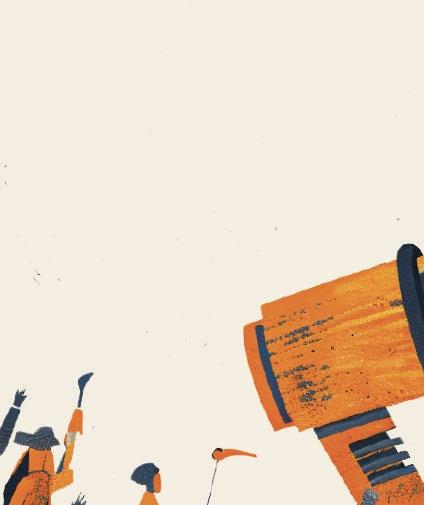
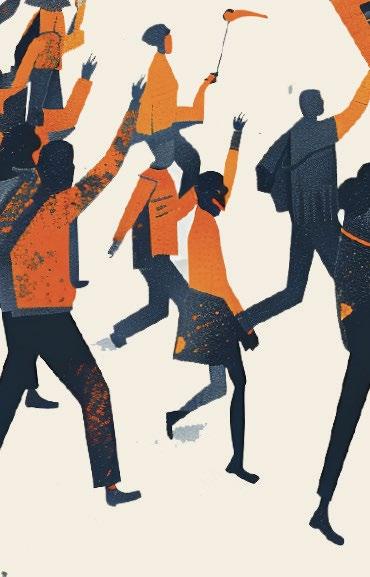


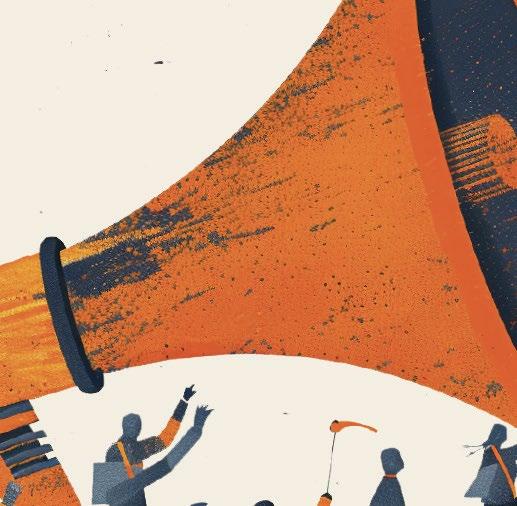

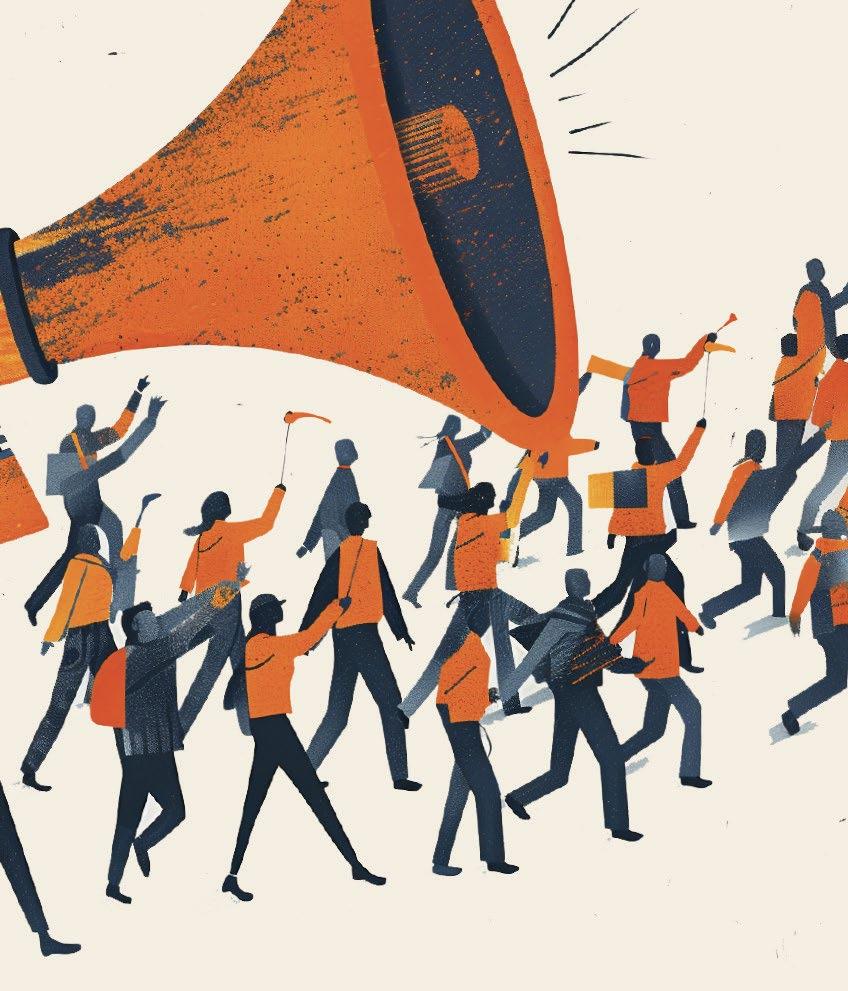
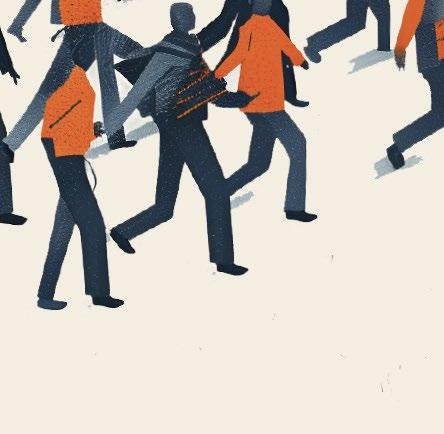

MESSAGE FROM THE EXECUTIVE DIRECTOR
Changing the landscape after 30 years of democratic decline
By Karam Singh
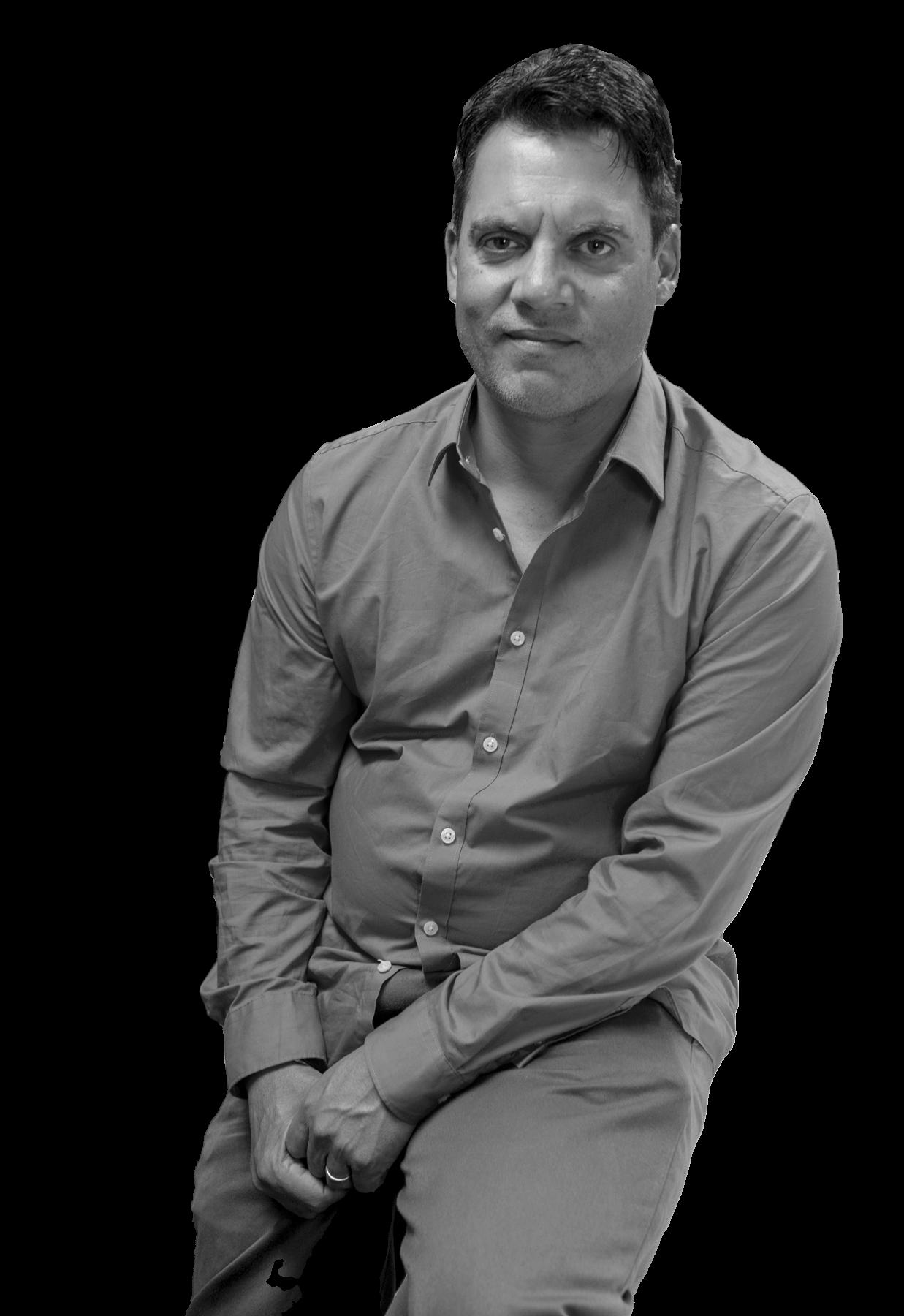
South Africa’s constitutional democracy is still alive and kicking, writes Corruption Watch executive director Karam Singh.
But we cannot afford to lose any more ground in the fight against corruption and the realisation of human rights. It is within our power to change the current landscape if we all work together, starting with a strong turnout at the polls in May.
South Africa remains a constitutional democracy thirty years on from the first democratic elections in 1994, and that is worth celebrating. However, the state of the democracy feels increasingly fraught and fragile, while deepening concerns around the impact of corruption on the state of South African democracy continue to tarnish the landscape.

ANNUAL REPORT 2023 8
I will always remember 1994 vividly because at the time I was a young campaign worker for the party of national liberation, fighting to win votes within the sceptical communities in the Western Cape, unsure and anxious about the future. It was inspiring to work beside leaders such as Dullah Omar and others from the liberation struggle who had a clear vision of what a post-democratic society should look like.
The vision did not foresee mass-scale looting of public resources by public officials in collusion with criminal syndicates. The vision did not foresee a broken public procurement system, nor did it envision systemic dysfunctionality at local government. It did not envision that some leaders could operate above the law with impunity.
The vision did find expression in the Constitution which made it a league leader globally on the issue of promotion and protection of human rights and from a political-legal point of view, the justiciability of rights through the courts. Early formal victories around housing in the Grootboom case and later more substantially in the Treatment Action Campaign anti-retroviral case, show that the Constitutional Court was prepared to be an arbitrator and to direct government as to the high bar set by the Constitution on the promotion, protection, and realisation of rights.
The Glenister judgment some years later directed that South Africa requires a dedicated anticorruption capacity at a national level to uphold our obligations within the bill of rights and international law.
Constitution betrayed
The fight against corruption and the realisation of rights have a symbiotic relationship. As we fail in the former, we are left with a situation where services are not delivered, communities remain underdeveloped, the economy stagnates, and respect for the Constitution diminishes.
From the high-water mark of the Constitution and some of these key decisions at the Constitutional Court, it is fair to say that South Africa’s standing internationally and as it is assessed by the national polity has slipped when it comes to an assessment of the vibrancy and vitality of our democracy. Recent corruption scandals, including those that flowed from state capture, situate South Africa as a place which facilitates money laundering on a mass scale, including significant illicit financial flows out of the country to various offshore destinations, with low prospects of recovery – let alone even detection.
We live in a world characterised increasingly by globally connected syndicates linked to criminal operations and collusion with public officials.

While South Africa has moved out of an era of formal state capture, the worry is that the system remains fundamentally vulnerable to further such projects and grand corruption. Lack of accountability for the state capture culprits of the Zuma era further weakens confidence in the system. The recent ICJ Gaza case reminded us that South Africa still has a role to play as a global advocate against apartheid and in favour of human rights, but government’s track record at home betrays the promise of the Constitution when it comes to providing a better life for all and the full realisation of rights of the country’s own residents.
Flawed democracy
With the release of the Corruption Perceptions Index (CPI), we have seen South Africa fall below the global average and drop two points to an all-time low score of 41. This places the country into a category identified by Transparency International as flawed democracies and adds another black mark to South Africa's global standing, after the dent to its reputation owing to the 2023 grey-listing by the Financial Action Task Force. It is concerning that South Africa is viewed this way, both globally and increasingly at home, as we go into an election season.
The knock on the CPI is always that it is a perceptions index and perceptions, especially globally, may be out of step with those at home. Unfortunately, it is likely that if such a perceptions poll were to elicit internal opinion only, the picture may be even more negative.
This begs the question: is it fair to characterise South Africa as a flawed or fragile democracy? How resilient do we feel as a society about the durability of the rule of law? Do we trust law enforcement and see its role and that of the criminal justice system as deterring corruption because criminal and civil accountability from wrong-doing characterises our system?
It is challenging when answering these questions to come up with a narrative which says we are heading in the right direction. At the moment, with elections around the corner, South Africa sits in a precarious place. Compared to others across the continent and world, we can be reasonably confident that our system will produce substantially free and fair elections, as this has been a prominent feature of the democratic era.
We can have some confidence that our election will not lead to a broken system or direct South Africa on a trajectory which is anti-democratic or authoritarian.
If these assumptions are correct, then we must seize the opportunities presented by elections and the resultant establishment of a new administration, and ensure that the anti-corruption agenda which is so well articulated in the National Anti-Corruption Strategy (NACS) is fully implemented as a plan of action for the new government in the fight against corruption.
The priorities include:
an enhanced and resourced whistleblower promotion and projection system with appropriate institutional and financial support from government;
the implementation of a transparent public procurement system with enhanced detection and enforcement capacity across the public sector including at local government;
the establishment of a dedicated independent anti-corruption agency based on international best practice in terms of forensic investigative capacity and an appropriately tailored mandate to deliver accountability in terms of the full might of the civil and criminal law –i.e. asset recovery and prosecutions; and
the promotion of integrity across the public sector through various initiatives including the regularisation of life style audits.
There are other recommendations in the NACS, with which the National Advisory Council Against Corruption (NACAC) is seized, around which we can focus our advocacy, engagement with the new government, and public education in the year to come.
Looking ahead
As elections approach, a remaining concern must be around whether we have any confidence that our political parties are clean, that their funding is above board, and whether the influence of dirty money fundamentally taints our electoral system.
It is significant that unlike many countries, we now have basic legislation requiring periodic disclosures from political parties around their funding.
4 ANNUAL REPORT 2023 10
This is an area we must continue to monitor and strengthen as politicians will instinctively try to water it down by raising reporting threshold amounts and ensuring that existing loopholes are exploited.
It is not all doom and gloom on the anti-corruption horizon, however. There are numerous opportunities to change the landscape including seeking to inspire the private sector to do more – including the financial sector and the important role it must play in knowing its customers and detecting suspicious transactions.
The notion of active citizenry also alerts us that we all have a role to play in the fight against corruption. It is our duty to blow the whistle on corruption – even when it may be dangerous.
We will look to the new government to set the right tone from inception by cutting government waste and excess such as the budgets for VIP protections.
In the run-up to elections we must interrogate party commitments to fighting corruption and get assurances that the implementation of the NACS and Zondo Commission recommendations become a government priority.
Together we can change the landscape – many of the blueprints are already on the table. The future of our democratic health depends on reversing the decline and fulfilling the promise of the Constitution and the liberation struggle.
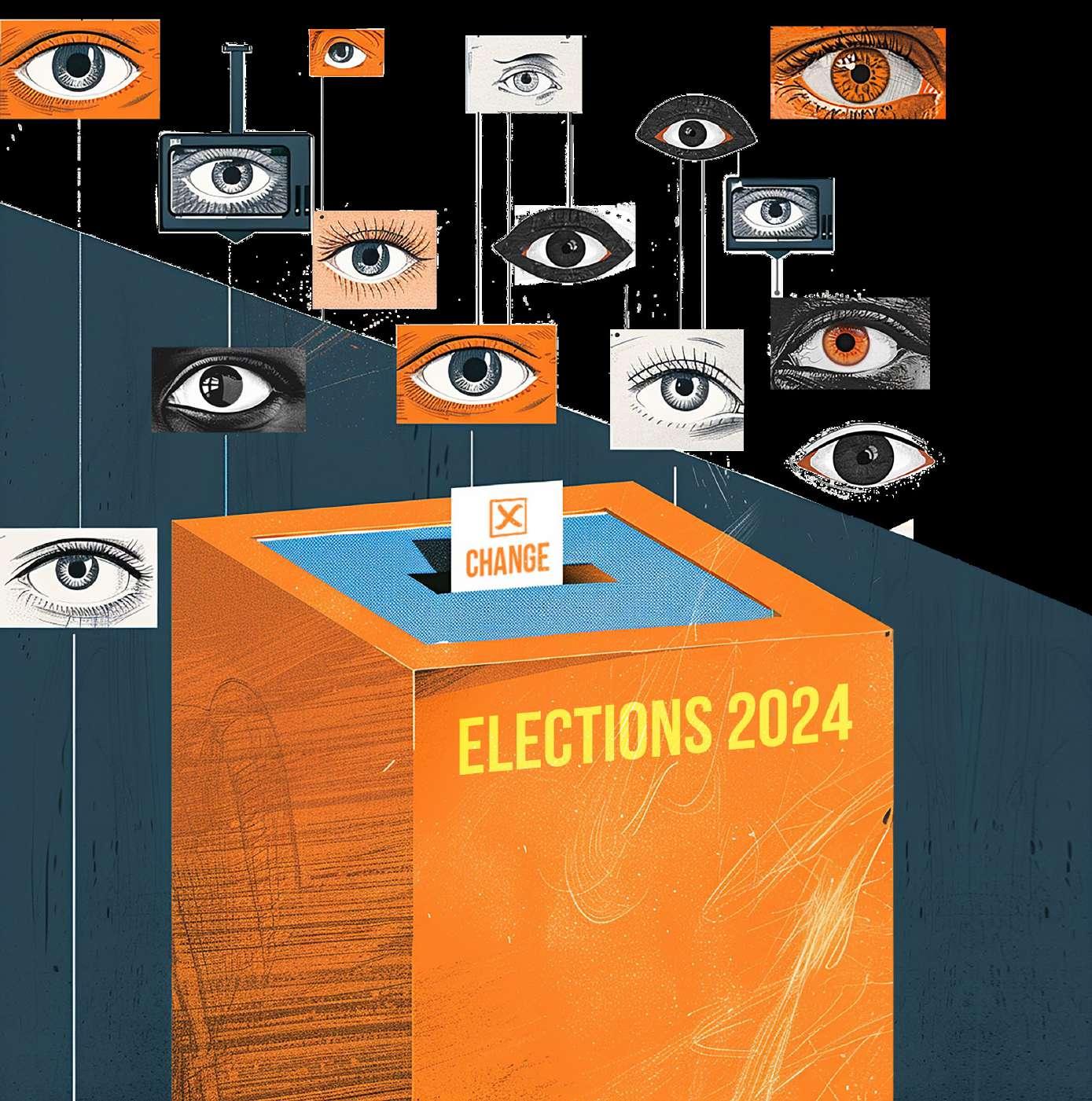
Introduction

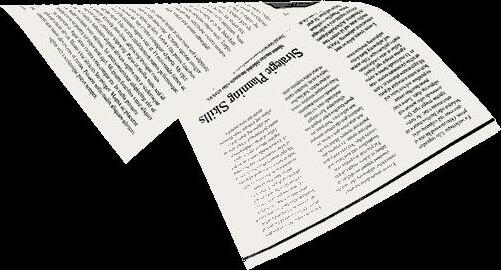
Corruption Watch (CW) is in its second decade of existence, and its work is more important than ever.
Though there are now quite a few more players in the anti-corruption space than there were when the organisation started in 2012, the levels of corruption have not diminished –if anything, more has been revealed than ever before through the vigilance of the media, the bravery of whistle-blowers, and the concern of the public.

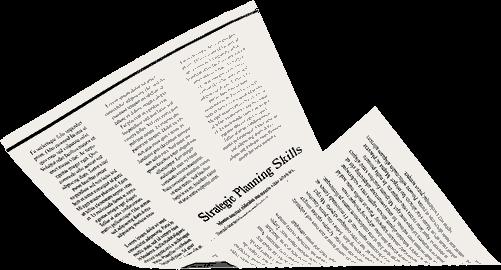


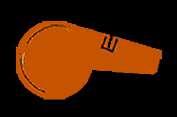


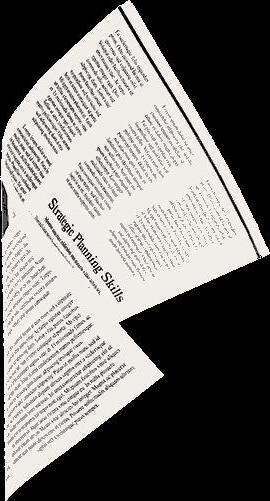

4 ANNUAL REPORT 2023 12
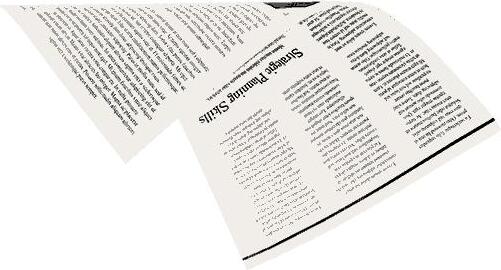
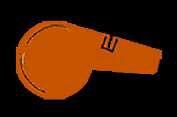

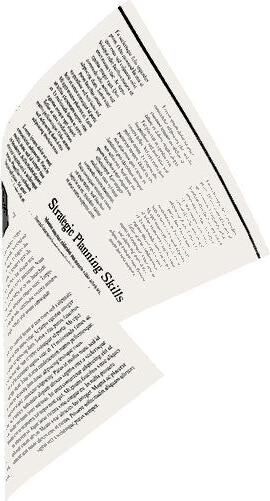

INTRODUCTION
Changing the landscape
The theme of this annual report is Changing the Landscape, and the reader can be forgiven for wondering whether to interpret this literally or metaphorically. In fact, we have both goals in mind.
Through our work in the Land and Corruption in Africa project, we hope to physically change the landscape for the people who were the subject of our research – farm workers, mainly in the fruit-growing region of the Western Cape, who signed up to a Farm Worker Equity Scheme (FWES) in good faith and for the most part, were cheated and deprived of the benefits they were promised.
The idea behind the FWES, which were introduced in the 1990s, was that they would serve as an alternative form of transformation in the agricultural sector.
Farm workers would sign up for a grant from the then Department of Rural Development and Land Reform, which the commercial farmer-owner would match. Their investment would get them a share in the business part of the farm and would assist the farmer in training selected workers in the skills needed to run the business. The beneficiaries would get dividends at intervals along with other benefits.
We conducted field research in the Ceres/Vredendal area of the Western Cape, speaking to representatives of various players in the industry, from commercial farmers and the relevant government department to farm workers both past and present.
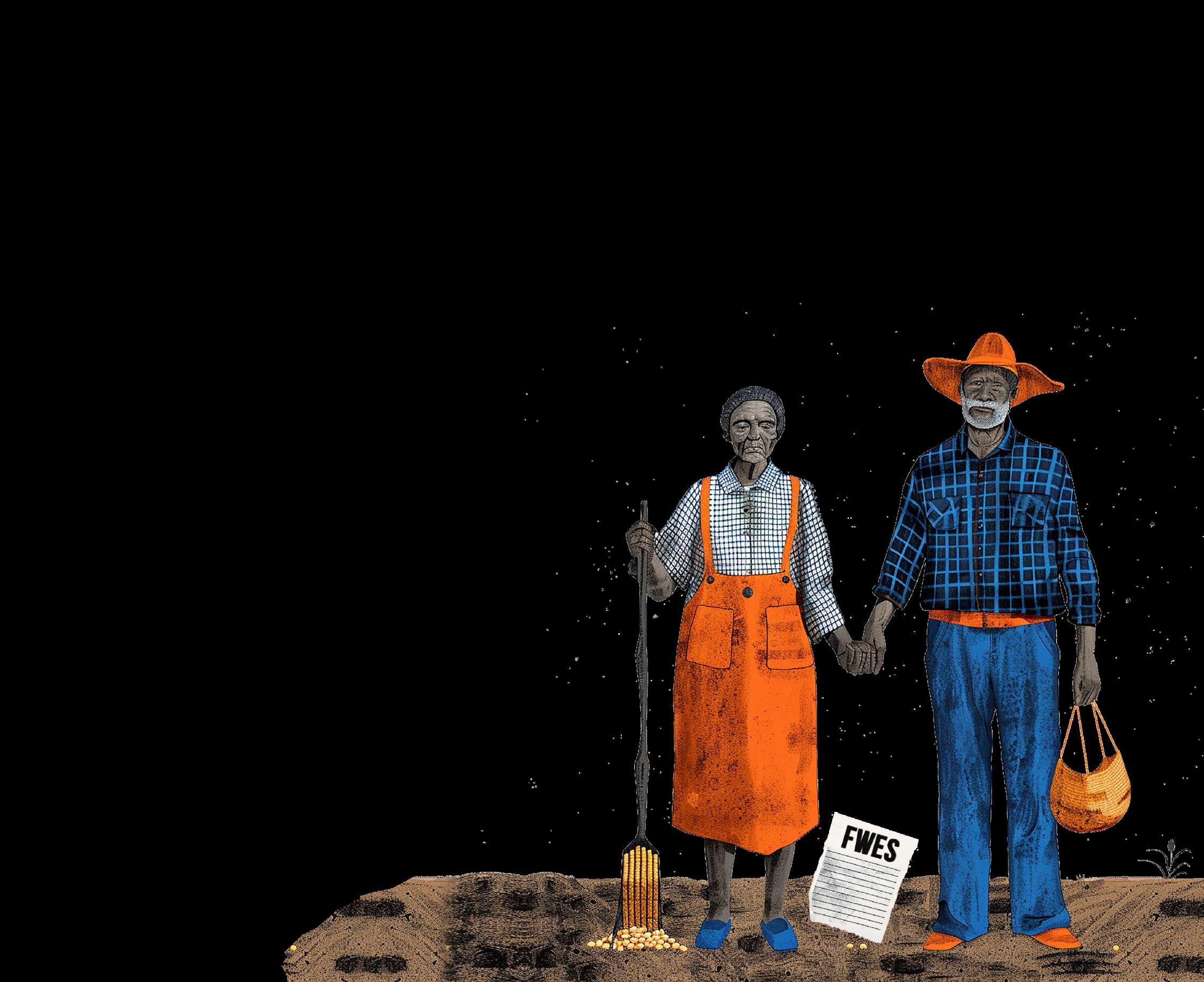
What we learned was shocking and heartbreaking. People who had lived on farms their entire lives were summarily evicted after retirement.
Dividends as a return on investment were promised and rarely – in some cases never – paid. Opacity in the running of farms did not diminish.
A 10-year-old report that found much the same was buried – we did manage to get a copy and we have read it.
Our findings and that of the discarded report revealed complicity between the provincial Department of Agriculture, Land Reform and Rural Development and the farmer-owners who were obliged, under the agreements they entered into, to improve the lives of the workers who believed their promises.
By protecting the private interests of the farmers, the department sold needy people down the river.
Driven by desperation, these people were forced to become whistle-blowerson the corruption in the farming sector. We acknowledge and are humbled by their trust in our efforts to attain closure and justice for them.
4 ANNUAL REPORT 2023 14
Whether it is finally being allowed to live out their days on the farms they were born on and later driven from, or receiving the long-promised funds to help lift them out of poverty, we want to change their landscapes for the better.
Whistle-blowers remain a focal point of our work, and we support them according to our resources and capacity, and in whatever way we feel will be most impactful. In 2022 we collected 2 168 reports of corruption, almost a quarter of which related to issues of graft in the mining sector. In 2023 this number is a very similar 2 110, and it brings the amount received over the 12 years of CW's existence to over 46 900. Of the 2 110 received in 2023, 38% related to corruption in mining, 23% related to policing, and 16% related to business.

Meanwhile, we continue with our multi-faceted approach to fighting corruption. We contribute to legislation and policy development by analysing bills for weaknesses that could play into the hands of the corrupt, and pushing for the changes we recommend. We advocate publicly, through webinars, workshops, outreach events, articles and opinion pieces, and digital tools, for people to understand their rights, be able to recognise corruption, and stand against it while standing for each other. We take part in events such as the Alternative Mining Indaba, which we have attended for several years, hosting dialogues at the event and contributing to the discussion with other organisations in the extractives industry.
B ehind the scenes
Three former CW people sit on the nine-member National Anti-Corruption Advisor y Council (NACAC) –a testament to the reputation CW has built for itself in the space.
The NACAC is primarily concerned with monitoring and advising on the effective implementation of the National Anti-Corruption Strategy – a document to which CW actively contributed over the several years of its development.
CW sits on several other important fora, including the Health Sector Anti-Corruption Forum and the Infrastructure Built Anti-Corruption Forum. We are co-chair of the Transparency, Integrity and Accountability programme (TIP) in South Africa, an initiative driven by the Department of Planning, Monitoring and Evaluation (DPME), together with the German and Swiss governments.
We collaborate routinely with other organisations on both an ad hoc basis –for instance, to issue joint/open letters or statements – and in longer-lasting structures. Some of the latter include the Budget Justice Coalition, the Procurement Reform Working Group, and the Whistleblowers Support Platform for Reform.
Our legislative work included submissions to Parliament on the Public Procurement Bill, the National Prosecuting Authority Amendment Act, the Companies Amendment Bills, and the Money Laundering Big Terrorist Financing Control Regulations. We made recommendations on the Political Party Funding Act to the NACAC.
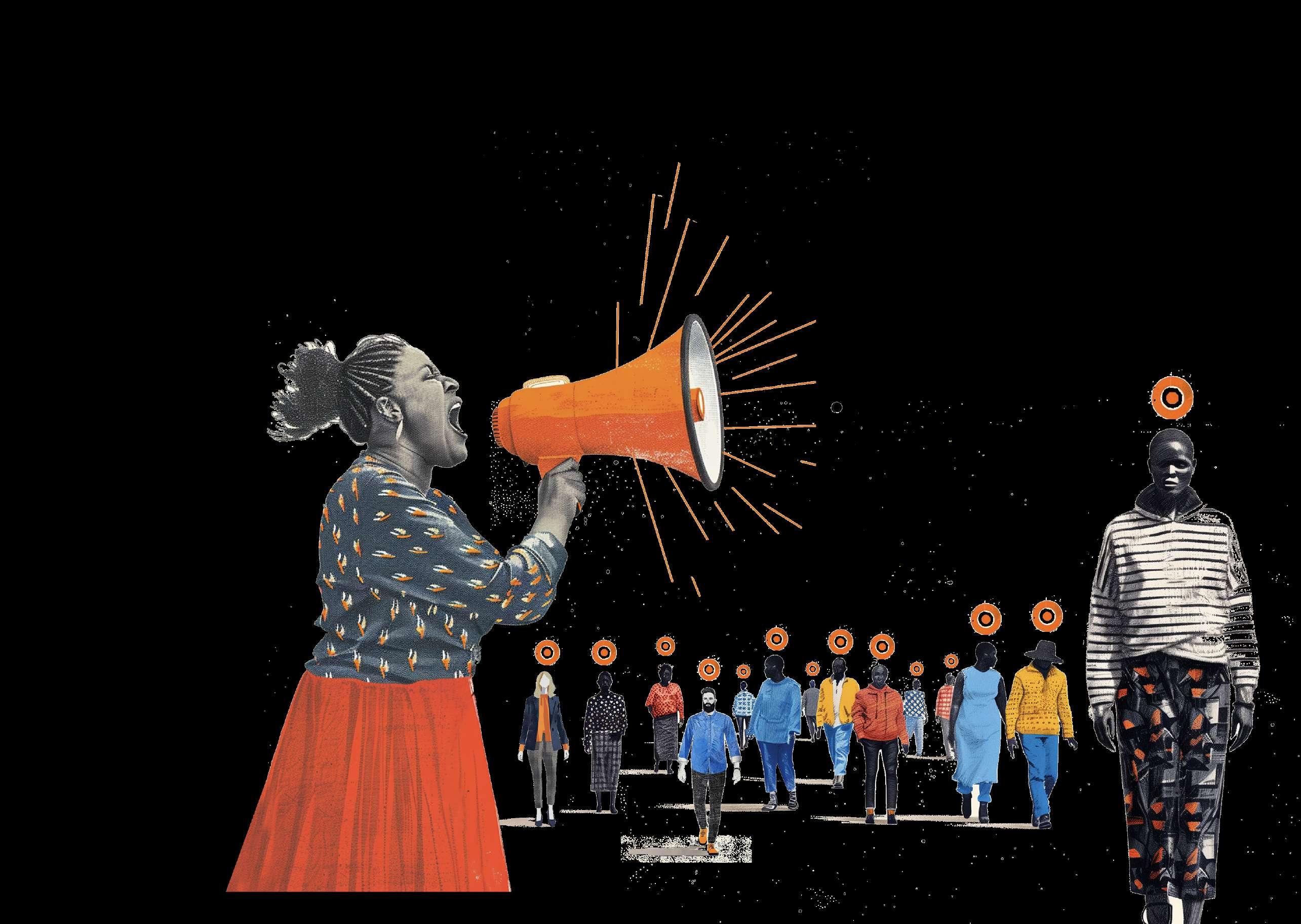
We also responded to a call by the Department of Justice to submit comments on a discussion paper proposing changes to whistle-blower legislation.
ANN U AL R E P O R T 2 0 2 3 16
INT R O D U C T IO N
We also made a submission, with Whistleblower House, to the next report of the Special Rapporteur on human rights defenders, which was presented to the UN General Assembly in October 2023. Our submission focused on the role of whistleblowers in exposing state capture corruption and other types of corruption, and the risks they face, especially if they are female.
In August we hosted the Africa regional meeting of Transparency International, and later in the year we attended the State Capture Commission Recommendations conference We participated in regional anti-corruption conferences in Zambia and attended the International Investigative Journalism Conference in Sweden and the Conference of State Parties to the UN Convention Against Corruption in Atlanta, Georgia, among others.

We continued to pursue accountability for the implementation of recommendations made by the Zondo Commission, and our advocacy and public education work on procurement reform remained an important focus area. We scrutinised parliamentary leadership appointment processes, and we provided commentary on the implications of South Africa’s greylisting by the Financial Action Task Force in February 2023.
In court, we were fourth amicus curiae in the appeal against the gagging order issued against amaBhungane in connection with corruption-revealing articles involving the Moti Group. Along with the South African National Editors’ Forum, Media Monitoring Africa, and the Campaign for Free Expression, together with amaB we succeeded in getting the order overturned.
Raising our voi
A highlight in 2023 was the launch in Ma way on corruption-related issues that pa matter to them.
A highlight in 2023 was the launch in March of our CW Voices blog, where CW staffers write in a more personal way on corruption-related issues that particularly matter to them. We were delighted to discover several talented writers who were hiding their lights under a bushel, as it were. The blog is coming along nicely, and we have lots planned.
In the mainstream media, our steady stream of interviews and published opinion pieces and other articles meant that our influence was felt around the country and further abroad, and our aim of raising awareness of the numerous facets of corruption did not slow.
Part of this awareness-raising work involves researching and reporting on corruption in in-depth reports. In 2023 we published three important reports – research findings from phase two of the Land and Corruption in Africa project, the Procurement Watch report for 2023, and a report on corporate corruption, specifically highlighting the EOH experience.
Talking of voices, we released a five-part podcast series on our land corruption work.
We drew partly from the recorded interviews we did in the Western Cape, so many of the voices in the podcasts are those of the marginalised people we spoke to.
The first episode was launched on Wednesday 11 October, with subsequent episodes released each Wednesday until 8 November. Each podcast highlighted a different aspect of the land question, and the gaps and failures in addressing the pervasive inequality in South Africa in relation to access to land.
Other podcasts released during the year spoke to public procurement and leadership appointments, and we also supplemented our Zondo Unpacked new episodes, focusing on the government’s response to the findings of the commission.
These are all important topics, and our work is far from done. Civil society has the vital job of ensuring that together with government and the private sector, we change the landscape for all those who have looked out on a bleak and barren world for thirty years.
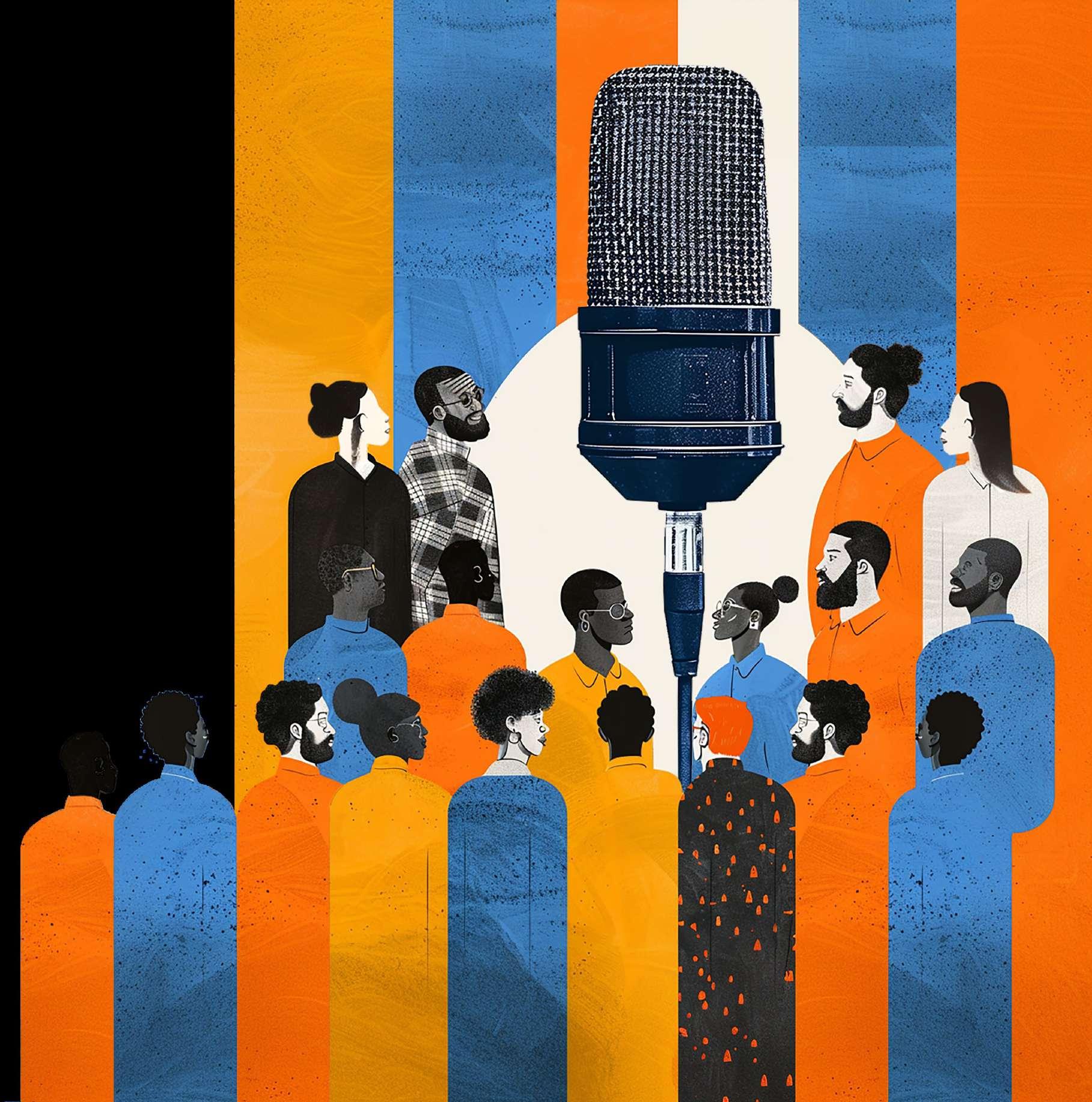
18
INT R O D U C T IO N
ANN U A L R E P O R T 2 0 2 3


AN N L
Who we are
Corruption Watch is:
An independent civil society organisation in the social justice sector, launched in 2012 in response to the spiralling corruption in South Africa
The local chapter of Transparency International, a global movement with one vision: a world free of corruption
Focused on encouraging and enabling public participation and activism to prevent, expose, report, and combat corruption
A champion of transparency, accountability, integrity, and good governance
Dedicated to working with and nurturing links with grassroots communities and social groupings to collectively find solutions to eradicating corruption
Vision:
An equitable society actively engaged in countering corruption and pursuing justice.

Involved in influencing public policy and shaping the national anti-corruption discourse
Not beholden to business, government, or any other sector in our operations; we hold both government and private sector to account
Funded primarily by philanthropic institutions in the social justice sector; and
Committed to a human rights approach to the impact of corruption on society
Mission:
We expose, confront and take preventative action against corruption.
The abuse of entrusted power or resources, by anyone, for private gain.
Our definition of corruption
IN T R O D U C T IO N
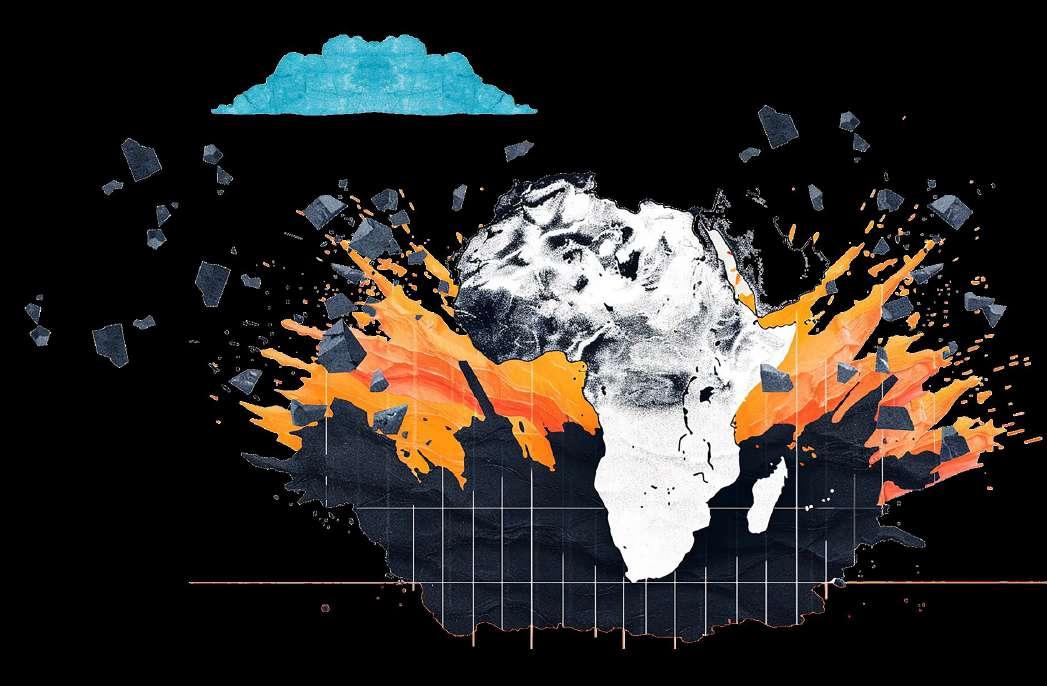

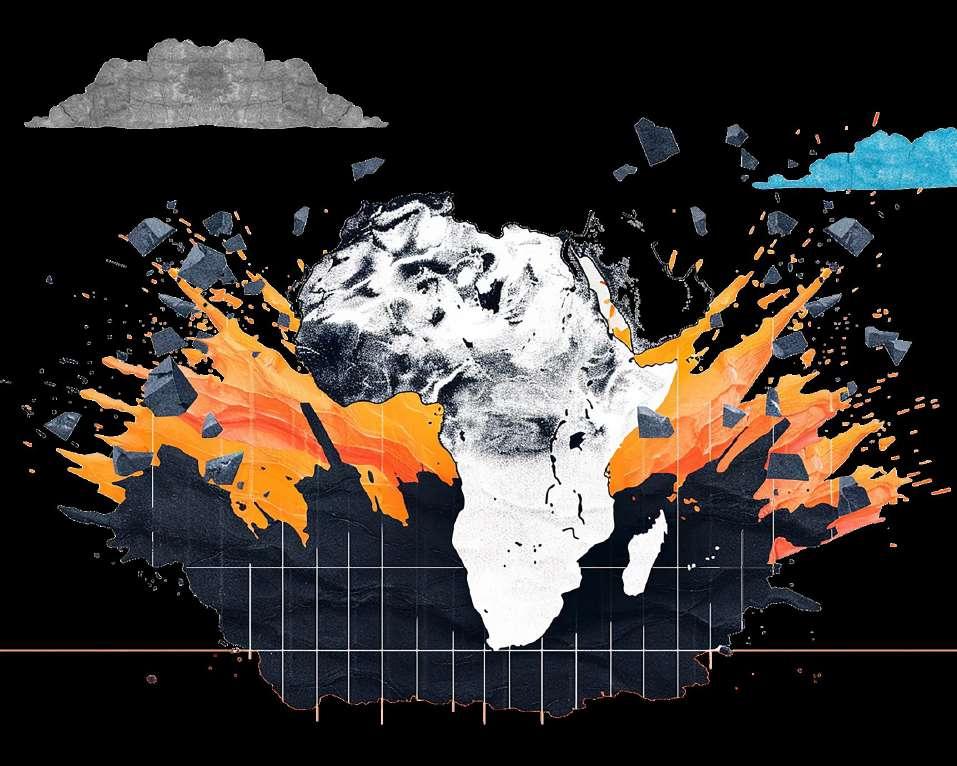

lowest score ever.
The 2022 CPI was a low point when it found itself right back where it started when it debuted on the CPI in 2012 –with a score of 43, the same as the global average.
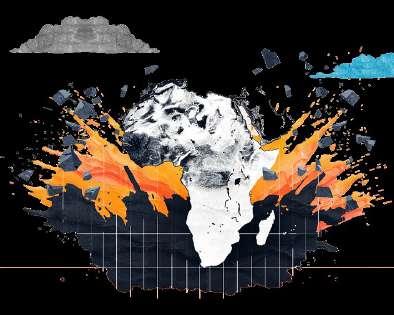
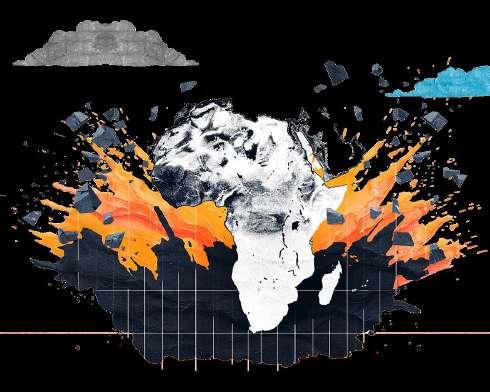
RANKING
overall ranking since the index was created, dropping from 72 in 2022 to 83 in 2023dropped out of the top 10 in the Its highest rank was 61 out of 168 countries, in 2015.
This year’s theme explored the relationship between corruption and (in)justice.
“Corruption and justice are closely linked in a complex and inverse relationship: where justice prevails, there is little room for corruption, but where corruption thrives, it throws the scales of justice
It is important to note that the CPI measures perceptions of corruption in the public sector, using 13 different data sources from 12 different institutions that have captured perceptions of corruption within the past two years from experts and business executives – so not corruption reported or experienced by members of the public.
in 2022
ANNUAL REPORT 2023 22
in 2023


Each country’s score is a combination of at least three of these data sources, which include:
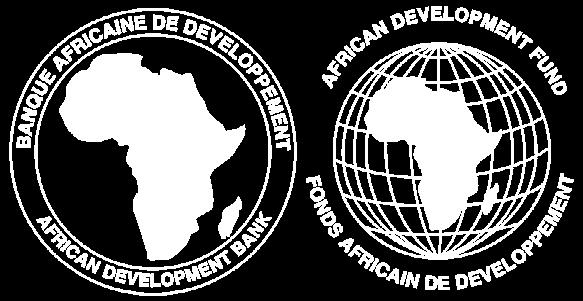

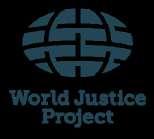
In this regard, perceptions may differ from the current reality in South Africa, where there has been some apparent forward momentum in curbing and combating corruption.
However, most residents would be hard-pressed to disagree with the
At 41, South Africa has dropped below the global average of 43, which itself has not moved for 12 years. This new low score puts it into the category that TI describes as flawed democracies. In 2016 the country scored 45, its highest in the 12 years, and even that meagre score looks good from where we stand today.
Since South Africa’s 2012 debut on the CPI, its score resembles a flat line rather than the desired upward trend. It has consistently been grouped with a group of 95% of all countries assessed who have been stuck in virtually the same place for years.
Besides this year’s 41 and a score of 43 in 2022, South Africa scored 44 from 2019 to 2021, while in 2018 and 2017 it scored 43 and the high of 45 in 2016. Before that, it managed 44 (2014 and 2015), 42 (2013), and 43 (2012).
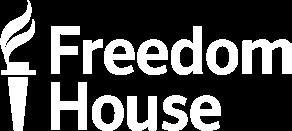
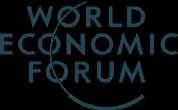
According to TI, a score below 50 indicates a significant corruption problem.
It is frustrating that, in a country like South Africa, where the corrupt have been exposed for all to see in such public processes as the Zondo Commission and robust media investigations, so few of the implicated parties have been brought to justice, says Karam Singh, executive director of CW.
That there has been no reaction from the government – not even a mention in the recent State of the Nation address – is telling. With elections also due in 2024, the governing party would seek to preserve as much of its shaky reputation as it can.
“With elections looming in a few months, the need for accountable leaders of integrity could not be more critical,” Singh adds.
Another milestone event, the 30th anniversary of democracy, will no doubt rightly be celebrated with pomp and ceremony, though the celebrations will ring hollow for many.
CPI SCORE South Africa Trajectory of South Africa’s CPI Score over 11 years
in 2023 2012 0 30 40 50 2013 2014 2015 2016 2017 2018 2019 2020 2021 2022 2023
A score below 50 indicates a significant corruption problem.

2023 CORRUPTION TRENDS
Sub-Saharan Africa
Sub-Saharan Africa (SSA) is again the lowest performing region on the CPI with an average score of 33 – 10 points below the global average. Ninety percent, or 44, of the 49 countries assessed in this volatile region scored below 50.
out of 49 countries
CPI SCORE
South Africa has dropped out of the top 10 and now sits in 11th place, alongside Burkina Faso. It is also getting closer to the regional average, showing that public sector corruption remains a serious problem, although recent developments such as the establishment of the National Anti-Corruption Advisory Council are seen as positive.
The region’s persistent challenges stem from decades of severe underfunding in public sectors, exacerbated by corruption and illicit financial flows siphoning resources away from basic public services the CPI notes. <
Addressing social and economic issues remains ineffective, often at the expense of the most vulnerable population.
In terms of the theme, corruption in justice delivery mechanisms disproportionately affects the poorest citizens and those who depend primarily on public services, such as people living with disabilities or women and children, hindering the realisation of global and regional development goals.
The two-decade-long existence of the African Union Convention on Prevention and Combating Corruption has done little to strengthen the rule of law in the region.
Impunity of public actors, a weakened civic space and public access to justice and information continue to be critical issues.
The top scorers in the region are Seychelles with a score of 71, Cabo Verde at 64, and Botswana at 59 – the latter two have exchanged places this year. Equatorial Guinea (17), South Sudan (13), and Somalia (11) score the lowest.
South Africa with 41, Gabon with 28, and Liberia with 25 are the SSA countries that have displayed new minimum scores.

ANNUAL REPORT 2023 24


Countries above 50 Seychelles Cabo Verde Botswana Rwanda Mauritius Countries below 50 Countries Assessed 49 33/100 71/100 64/100 59/100 53/100 51/100 Namibia Sao Tome Ghana Senegal Burkino Faso South Africa Cote d’Ivoire 49/100 45/100 43/100 43/100 41/100 41/100 40/100 10 points below the global average Average Regional Score
2023 CORRUPTION TRENDS
What the data says
Whistle-blowers have played an important role at CW in highlighting where and how corruption manifests.
Since inception in 2012, CW has received over 46 900 complaints of alleged corruption, which have provided valuable insight and have helped to shape many of the organisation’s interventions and activities.
This is an average of 11 reports per day from every part of South Africa, from ordinary people brave enough to expose corruption and the abuse of power. It is thanks to these reports that CW has been able to better understand and expose the damaging impact of corruption on people’s lives.
In 2023 the organisation received 2 110 corruption complaints. As in the previous year, the highest number of reports received by sub-sector focused on issues of wrongdoing and malfeasance in the mining sector (38%), a result of the CW team’s specific interventions in mining communities experiencing the brunt of the effects of corruption.
The policing sector once again accounted for the second highest number of complaints received, at 23%, followed by business at 16%, basic education at 12%, and state-owned entities at 11%. These figures speak to government’s failure to provide basic services and rights such as efficient policing, safety and security, access to decent employment, education, and services intended to improve people’s lives – a functioning power utility or proper transport services come to mind.
46 900 complaints since 2012
2 110 complaints in 2023
an average of
11 reports per day
The predominant types of corruption that featured in 2023 are maladministration, a major area of concern counting for 34% of reports, followed by fraud (21%), employment irregularities (16%), bribery or extortion (15%), and procurement irregularities (13%).
The prevalence of corruption at the local government level emerges again as a key trend. Out of the five municipalities with the highest number of corruption reports, three metropolitan municipalities –City of Johannesburg, City of Tshwane, and City of Cape Town – collectively account for 71% of corruption incidents, followed by Dannhauser and Matjhabeng at 15% and 14% respectively.
Turning to the distribution of corruption reports across provinces, Gauteng once again comes out on top with 37% of complaints, followed by KwaZulu-Natal with 19%, Free State with 10%, and the Western Cape with 9%. These provinces which collectively represent 75% of reports are all considered to be hotspots for monitoring corruption.
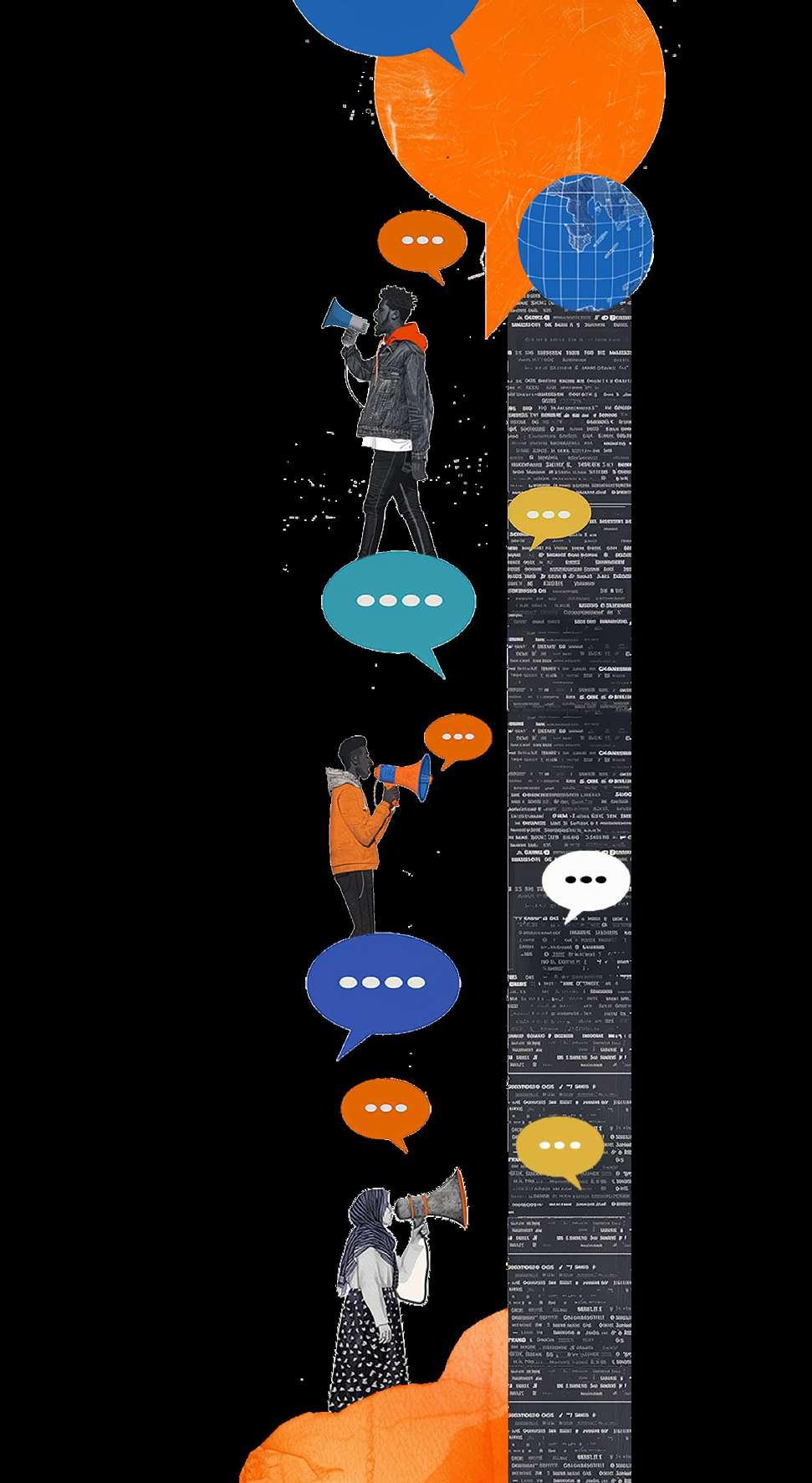
4 ANNUAL REPORT 2023 26

The table below represents the trends that emerge when analysing the provinces and the sub-types of corruption experienced
2023 CORRUPTION TRENDS 27
#1 Fraud Bribery / extortion Maladministration Abuse of power Procurement irregularities Gauteng #6 Procurement irregularities Misappropriation of resources Maladministration Abuse of power Fraud Limpopo #2 Maladministration Fraud Bribery / extortion Procurement irregularities Dereliction of duty KwaZulu-Natal #3 Maladministration Employment irregularities Dereliction of duty Procurement irregularities Abuse of power Free State #4 Fraud Maladministration Dereliction of duty Abuse of power Employment irregularities Western Cape #5 #1 Maladministration 34% #2 Fraud 21% #3 Employment irregularities #4 Bribery / Extortion 16% #5 Procurement irregularities 13% 15% Maladministration Employment irregularities Fraud Procurement irregularities Bribery / extortion Mpumalanga #7 Fraud Procurement irregularities Maladministration Misappropriation of resources Dereliction of duty Eastern Cape #8 Maladministration Fraud Procurement irregularities Misappropriation of resources Bribery / extortion North West #9 Maladministration Bribery / extortion Misappropriation of resources Abuse of power Employment irregularities Northern Cape Top Types of Corruption Nationally 17% 14% 12% 11% 9% 21% 18% 13% 10% 10% 22% 20% 17% 10% 10% 18% 16% 16% 12% 11% 41% 10% 7% 7% 6% 33% 26% 9% 7% 5% 24% 15% 12% 9% 9% 39% 15% 11% 8% 7% 19% 16% 13% 10% 9%
Regional & in collabo engagement
The year 2023 was a fruitful one for the CW team in terms of regional and international engagement. The number – and quality – of these interactions we instrumental in assisting the o to locate its own work in the context of African and global initiatives to combat corruption.
The year 2023 was a fruitful one for the Corruption W regional and inte engagement. The number – and quality – of these interactions we assisting the o work in the context of African and global initiatives to combat corruption.
Such opportunities over the yea attended by executive di offered great insights and expanded the knowledge and understanding of how corruption manifests and solutions to assist in combating it.
Such opportunities over the yea attended by executive di offered great insights and expanded the knowledge and understanding of how corruption manifests and solutions to assist in combating it.
Topics rang turnaround
regional the imple
Topics ranged from examining turnaround strategies in the fight against corruption, regional challenges in the implementation of the UN Convention Against Corruption (UNCAC), the issue of enablers of corruption and the available tools and strategies to collect and use enabler data, and the importance of a global approach to combating money laundering and illicit financial flows, as well as the establishment of an international anti-corruption court.
Participation in these events and learning opportunities took place in diverse locations and with a wide range of stakeholders and partners.
the UN C Corruption (UN the issue of corrup available to collec data, and of a global app combating mon
Turn around strategies
well as t of an int anti-corru
The Blavatnik School of Government at Oxford University offered an executive short course with the theme of Strategies in the Fight Against Corruption

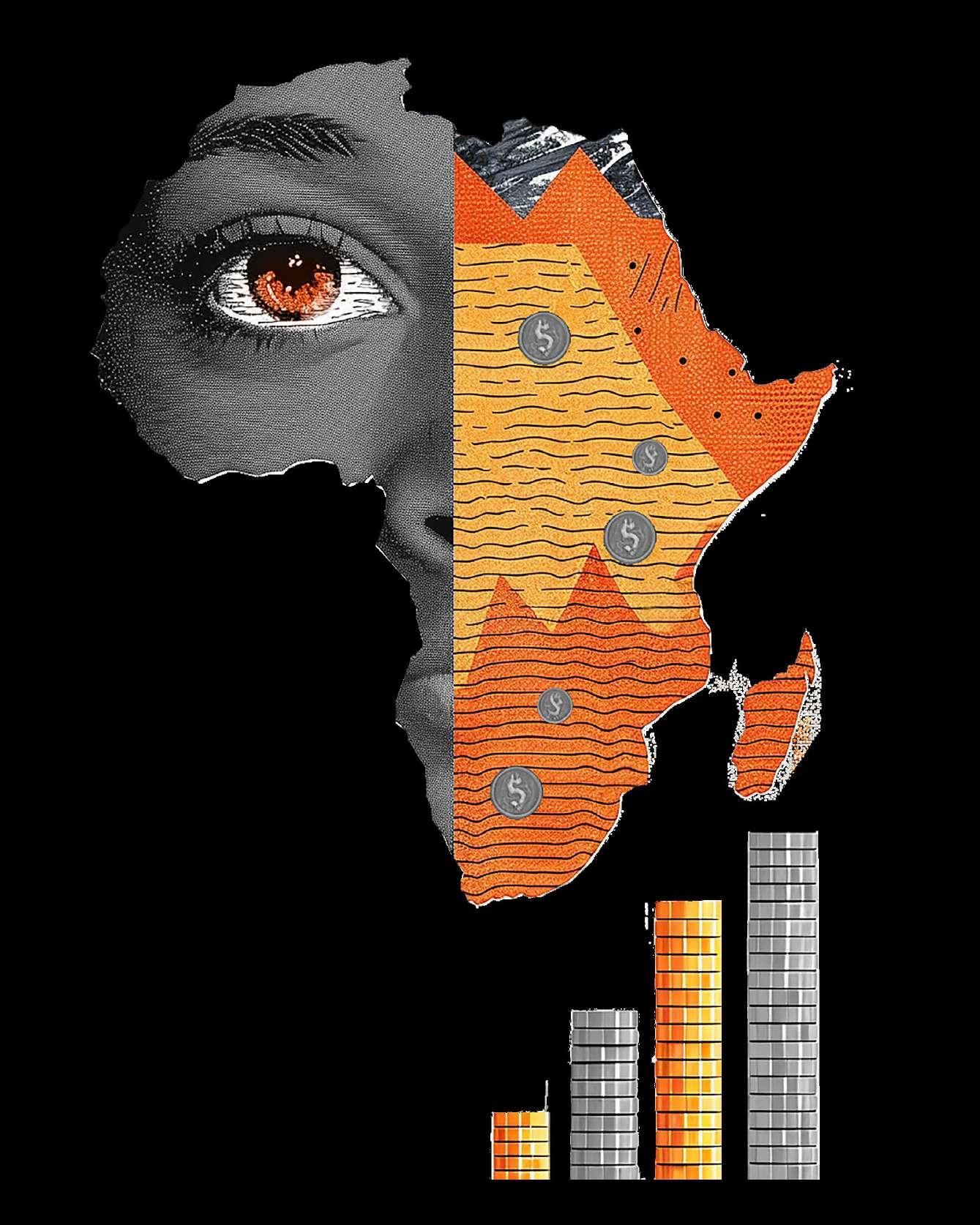
4 ANNUAL REPORT 2023 28
UNCAC

oad ahead. ector presented on the issue e in South Africa, and in another ’s Enablers and venues for Accountability, he addressed the question of why it is essential to add


R E GIONAL A ND INT E RN A TIONAL C OL L A B O R A TION A ND EN G A GEMEN T 29
TI-Africa Regional Meeting (ARM) – August 2023
TI-Africa Regional Meeting (ARM)
– August 2023
Between 7 and 11 August 2023 CW welcomed representatives of 17 African Transparency International (TI) chapters to Johannesburg for the 27th TI-Africa regional meeting (ARM). This event was one of the highlights of the year.
Between 7 and 11 August 2023 CW welcomed representatives of 17 African Transparency International (TI) chapters to Johannesburg for the 27th TI-Africa regional meeting (ARM). This event was one of the highlights of the year
The ARM was the first in-person gathering since the Covid-19 lockdown in 2020, although some delegates attended virtually. TI-Africa chapters looked forward to getting together to reflect, learn, plan, and share their insights on their work and projects, and the event was well-attended.
The ARM was the first in-person gathering since the Covid-19 lockdown in 2020, although some delegates attended virtually. TI-Africa chapters looked forward to getting together to reflect, learn, plan, and share their insights on their work and projects, and the event was well-attended.
Four separate events took place under the TI umbrella – the main ARM, with additional project meetings for Land and Corruption in Africa 2, REAP (Rallying Efforts to Accelerate Progress) and SICEA (Stopping Impunity for Corruption through Enhanced Accountability).
Four separate events took place under the TI umbrella – the main ARM, with additional project meetings for Land and Corruption in Africa 2, REAP (Rallying Efforts to Accelerate Progress) and SICEA (Stopping Impunity for Corruption through Enhanced Accountability).
The ARM started on an inspiring note with a keynote address by Justice Richard Goldstone, a high-profile supporter of the establishment of an international anti-corruption court (IACC). He spoke about the 20th anniversary of the African Union Convention on Preventing and Combating Corruption, reflected that a global approach with more cross-border work is needed to combat money laundering, and advocated strongly for the swift establishment of the IACC.
The ARM started on an inspiring note with a keynote address by Justice Richard Goldstone, a high-profile supporter of the establishment of an international anti-corruption court (IACC). He spoke about the 20th anniversary of the African Union Convention on Preventing and Combating Corruption, reflected that a global approach with more cross-border work is needed to combat money laundering, and advocated strongly for the swift establishment of the IACC.
Goldstone’s distinguished presence and interest in TI-Africa’s work was very much appreciated by delegates, and it set the tone for a productive and energetic ARM over the next few days.
Goldstone’s distinguished presence and interest in TI-Africa’s work was very much appreciated by delegates, and it set the tone for a productive and energetic ARM over the next few days.
Topics included the role of civil society in South Africa, the implication of political developments on the continent for anti-corruption work, the right to information, illicit financial flows, and more. Participants also discussed the elections coming up in several countries, including South Africa, and advocated for a uniform regional stance on the matter.
Looking ahead, participants made several suggestions and recommendations that would have an impact on the work done by chapters on the continent as well as future ARM sessions and committed themselves to providing support and solidarity to chapters working on issues related to transparency and accountability in the region.
Topics included the role of civil society in South Africa, the implication of political developments on the continent for anti-corruption work, the right to information, illicit financial flows, and more. Participants also discussed the elections coming up in several countries, including South Africa, and advocated for a uniform regional stance on the matter
Zambian spotlight on anti-corruption efforts
Looking ahead, participants made several suggestions and recommendations that would have an impact on the work done by chapters on the continent as well as future ARM sessions and committed themselves to providing support and solidarity to chapters working on issues related to transparency and accountability in the region.
Each year Zambia, with support from Transparency International, holds an event that brings together government, civil society, the private sector, and regional and international participants to discuss key anti-corruption initiatives in Zambia. The 2023 Zambian Anti-Corruption Conference took place in Livingstone on 19 and 20 November and included a panel on the issues of party-political finance to share national experiences in dealing with the issue of dirty money in politics. Both CW and TI Kenya provided valuable insights into this topic and concluded that sharing key lessons across jurisdictions can only sharpen advocacy and public education efforts domestically and across the continent.
UN Conference of State Parties, UNCAC 10
The year ended with the UN hosting the conference of state parties to the UNCAC in Atlanta, Georgia, in December, an event held every two years. This gathering provided an opportunity for civil society to engage with key policy-makers from all signatory countries to the UNCAC with the aim of advancing the anti-corruption agenda. Represented by Singh, CW participated in two panels, one of which focused on the issue of targeted sanctions against persons accused of kleptocracy, while the other looked at the critical matter of beneficial ownership transparency. This participation provided a unique opportunity for the organisation to bring a South African civil society perspective to proceedings in a prestigious gathering, and to engage and share information with global civil society representatives along with key decision-makers.
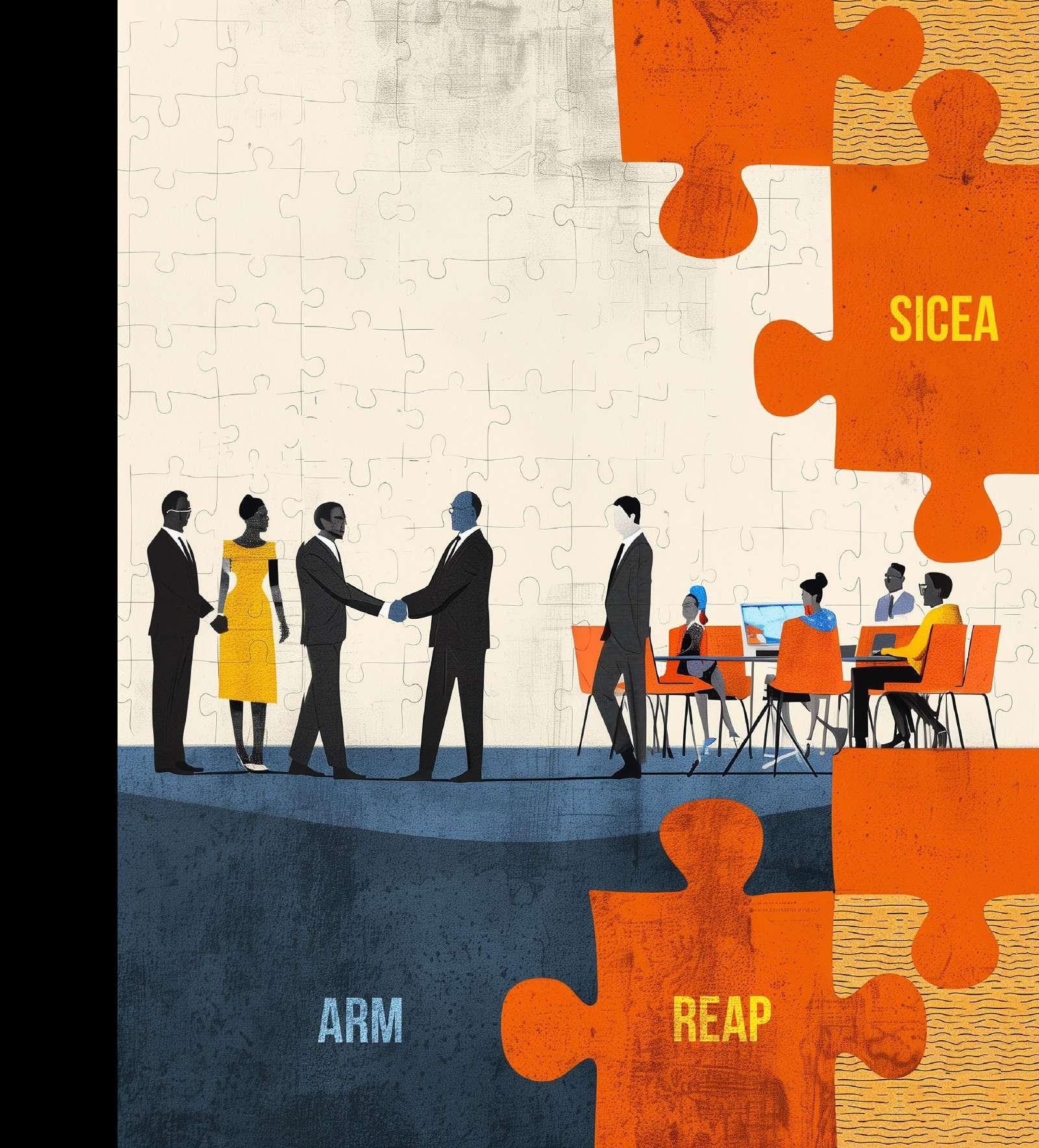
4 ANN U A L R E P O R T 2 0 2 3 30

TI-Africa chapters looked forward to getting reflect, learn, plan, and share their insights on their work and projects, and the event was well-attended.

Partnerships & Collaborations
It is fair to say that South Africa is currently in a state of flux, which extends to almost every sector, corner of the country, and population group. The persistent power crisis, water shortages, failing infrastructure, stratospheric levels of poverty, unemployment, crime, and inequality, among many other issues, are all intensified by the ongoing corruption that seems entrenched in our society and systems.
In our last annual report, we emphasised the urgency for collaboration between civil society, the state, business, and other partners as the best chance to jointly tackle these problems and root out the corruption that continues to erode living conditions for most South African residents, and to deprive them of their access to basic human rights.

Throughout 2023, the CW team continued to concentrate its efforts on joining forces with key stakeholders and partners to intensify the pressure on those tasked with leading the country, our institutions, our businesses, and those responsible for making policy and legislative changes. Much of our advocacy is related to calling for greater transparency, accountability, and an end to impunity, and highlighting the plight of communities and people bearing the brunt of corruption and maladministration.
Our focus in this election year, as the title of this report suggests, will be on joining forces with our partners and other key stakeholders to change the landscape in South Africa to one that is inclusive, equal, sustainable, and functional, a place where leaders are transparent and accountable to the citizens and the country that they serve.
32
ANNUAL REPORT 2023

PARTNERSHIPS & COLLABORATION 33
Spotlight on GIZ Transparency, Integrity and Accountability Programme
The GIZ Transparency, Integrity and Accountability Programme (TIP), launched in June 2022 and running for three years, forms an important component of CW’s work. The organisation plays an important role as co-chair of the TIP project steering committee, alongside the Department of Planning, Monitoring, and Evaluation in the Presidency, as well as co-chair of the TIP’s Strategic Advisory Committee which considers strategic issues for inclusion and provides a platform for engagement with funders.
The TIP is a partnership agreement between the governments of Germany and South Africa, co-funded by the German and Swiss governments, that supports state and non-state actors to contribute to the National Anti-Corruption Strategy (NACS) and its roll-out, which although approved by Cabinet in December 2020, has been slow to materialise. Similarly, the TIP is committed to providing support to the nine-member National Anti-Corruption Advisory Council (NACAC) appointed in 2022.
The NACAC includes three CW-associated councillors – former head of stakeholder relations and campaigns Kavisha Pillay, former executive director and CW founder David Lewis, and former CW board member Firoz Cachalia, who chairs the council.
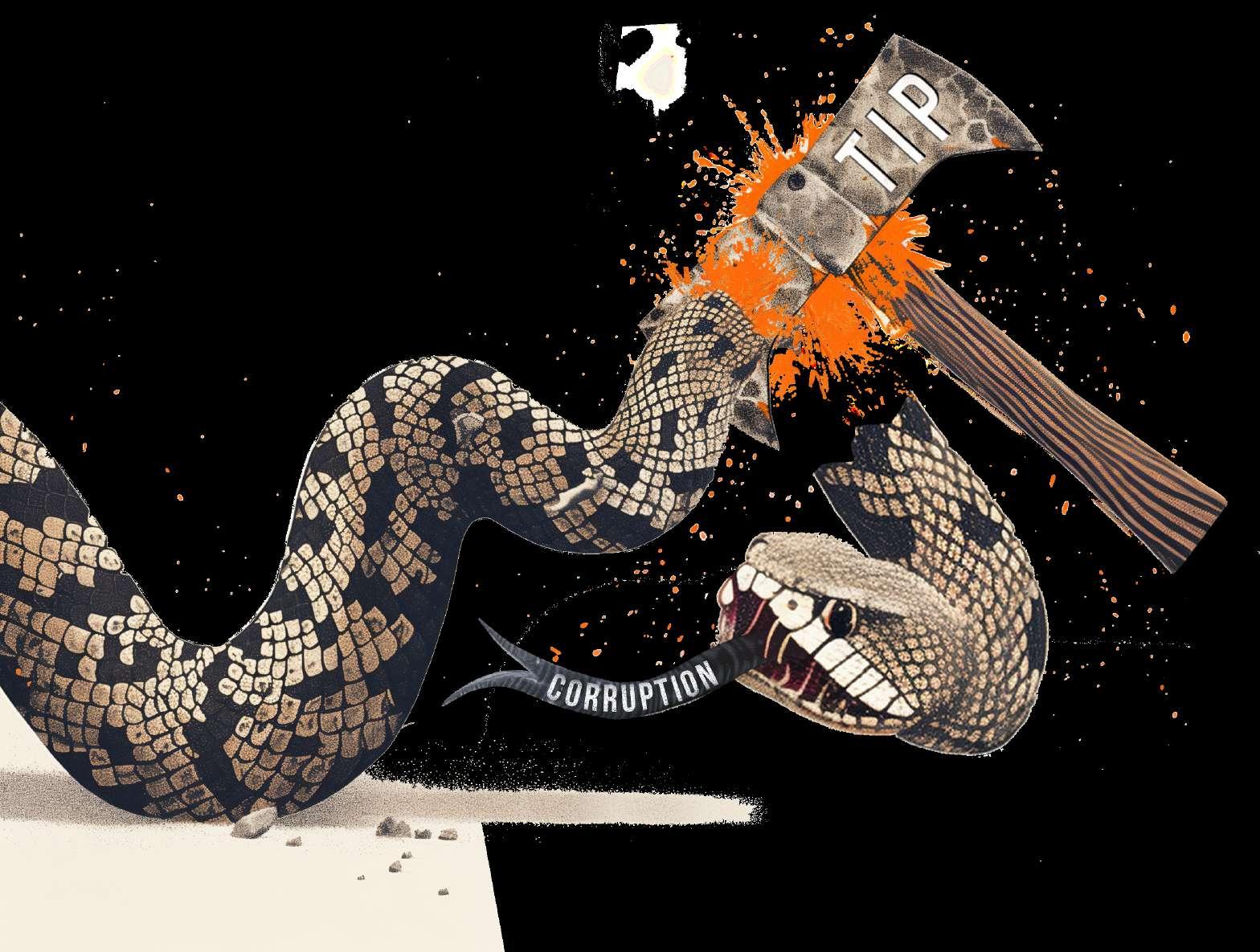
This points to CW’s hard-won influence in the anti-corruption space, and its contribution to activities currently underway to transform the agencies and systems to combat corruption. One of the NACAC’s key tasks is to put in place measures for the establishment of an independent anti-corruption commission as envisioned by the NACS.

The CW team had the opportunity in 2023 to engage in several ways with the NACAC. Team members participated in various NACAC workstreams dealing with legislative reforms, overhauling the institutional architecture, communications, and procurement.

The head of legal and investigations took part in the NACAC’s Legislation Reform and Transparency Group, a 30-month participation process aimed at providing technical advice on reform and transparency, reviewing the existing legislation and proposal to formulate new legislation flowing from the Zondo Commission recommendations and in relation to the six pillars of the NACS. A further opportunity was attendance at a GIZ-facilitated learning journey to Kenya to gain first-hand experience of the country’s anticorruption architecture.
The process of developing a communications and engagement strategy for the NACS and to provide communications support to the NACAC was completed in March 2023 at a closeout meet to review the final product with all stakeholders. CW contributed to the development of that strategy and was actively engaged with the NACAC communications workstream over the year. A key event during 2023 was CW’s partnership with NACAC, government, civil society, and law enforcement in hosting a workshop on 18 September on the use of data analytics and data science interventions to combat and prevent corruption in South Africa. Over 100 people attended the two-day workshop, with 40 organisations from the public sector, private sector, civil society and academia, and law enforcement. CW team members contributed to the event as rapporteurs.
In addition, CW was represented on the NACAC National Dialogue Organising Committee, and several staff members attended the event on 8 and 9 November 2023, including as special rapporteurs.
The critical areas of procurement and the support and protection of whistle-blowers remained key focus areas in 2023, and CW team members contributed to both in a variety of ways. On the procurement front, the legal and investigations team was represented in the Multi-Stakeholder Partnership (MSP) training session in the procurement stream in July 2023. The team subsequently attended the African Procurement Law Conference and GIZ’s Western Cape learning journey with the procurement MSP in September.
The learning journey gave the team an opportunity to build their knowledge and relationships within and outside of the MSP while mapping topics for future activities on public procurement in South Africa. The trip included on-site visits to and engagements with the Cape Chamber of Commerce, the International Budget Partnership/Asivikelane, the Western Cape Provincial Treasury, and the Open Contracting Partnership. During this time, several members of the MSP engaged in public hearings on the Public Procurement Bill [B18-2023] in Parliament. The MSP includes organisations and departments such as Office of the Chief Procurement Officer, National Treasury, Gauteng Provincial Treasury, the NACAC, CW, Public Affairs Research Institute, Public Interest SA, and the TIP.
Through this learning journey and continuous engagements, CW was able to share its findings on deviations and expansions with members of the MSP within National Treasury and participate in the NACAC and UNODC Workshop on Public Procurement in September 2023 as part of efforts to provide substantial input on the Public Procurement Bill. Discussions in the workshop were focused on the challenges with procurement such as open data contracting, regulations and principles within the Bill, a proposed procurement anti-corruption agency and powers of the Office of Chief Procurement Officer.
35
SPOTLIGHT
All stakeholders agreed that the public procurement environment required further collaboration and sharing of information which could be strengthened by the work of the MSP. The group agreed that there also needs to be further training and discussion in 2024 and is currently in the process of refining focus areas for the group, based on the identified objectives.
Whistle-blower protection and support
There were some important developments in 2023 in relation to the MSP focused on whistle-blower protection and support, starting with the establishment in January 2023 of a new name and identity, the Whistleblower Support Platform for Reform (WSPR). CW made a concrete contribution to the branding process, strategy, and bi-weekly meetings and workshops. The aim of WSPR is to foster collaboration and identify concrete actions that could improve the whistle-blower support system, working with others within the space with the shared vision of developing expertise and initiatives.
Another area of focus for WSPR is the sensitive matter of providing psycho-social support for whistle-blowers. The CW team’s collaboration with the Anti-Intimidation and Ethical Practices Forum ended with the signing of a MOU with Whistleblower House to provide such support.
In August WSPR made an important submission to the Department of Justice (DoJ) in respect of its proposals on improving whistle-blowing in South Africa, and its recommendations on the Whistle-blower Protection Regime. The team attended a workshop to review these proposed amendments, facilitating sessions with civil society partners also making submissions. The pre-launch of the WSPR took place at this workshop to familiarise key stakeholders with its purpose and objectives. Together with GIZ, CW also hosted a staff training session on whistle-blowing, using the Whistle-blowers First Responders guide produced by the GIZ team.
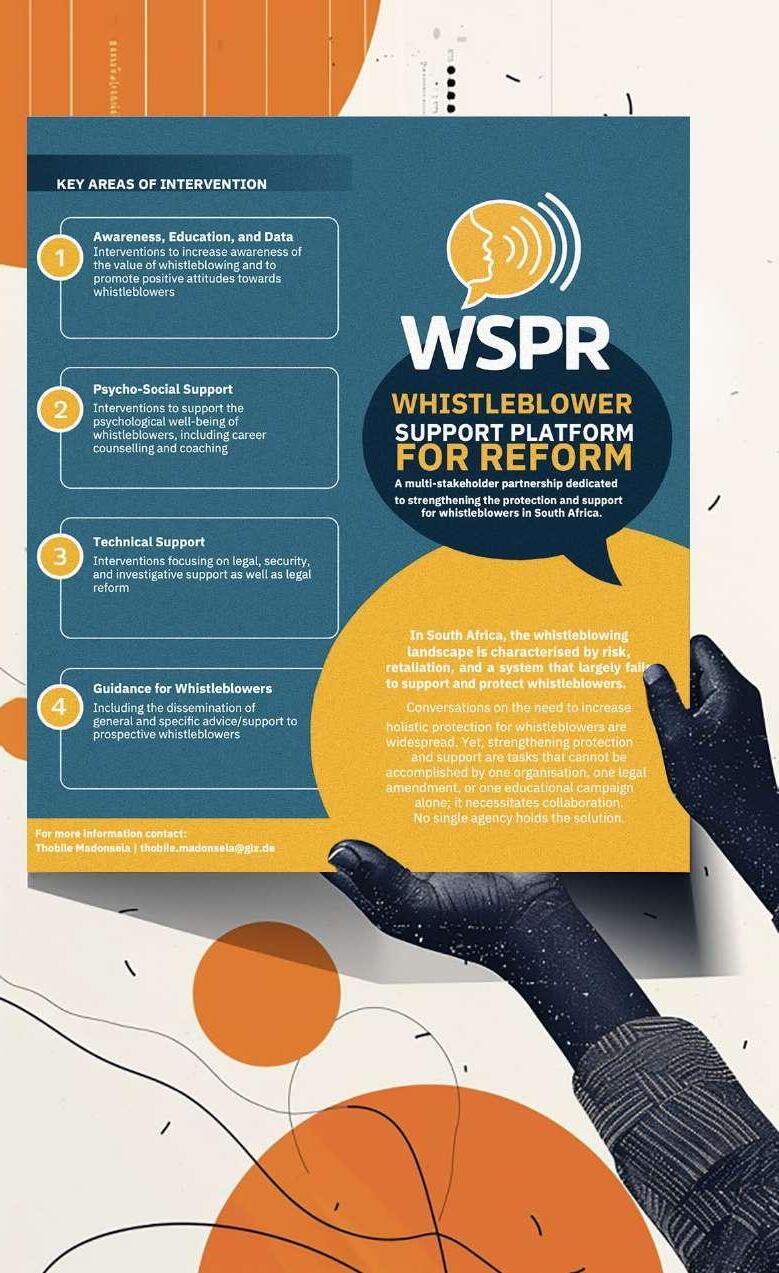
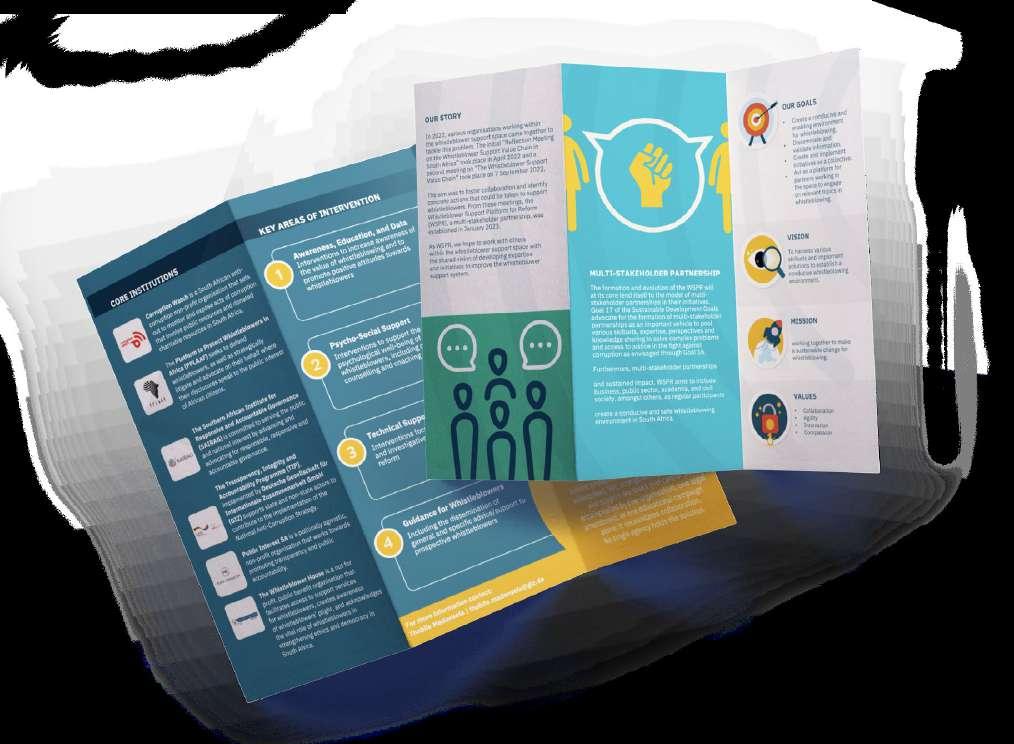
4 ANNUAL REPORT 2023 36


The WSPR team participated in an inaugural Whistle-blower Awards gala dinner on 26 October and is currently engaged in establishing this event as an annual platform.
The CW team attended the second Whistle-blower Protection Week organised by PPLAAF, at which the head of stakeholder and campaigns facilitated a panel discussion on the DoJ proposals to improve whistle-blower legislation.
Art against corruption
An interesting TIP programme initiative in 2023 was the collaboration with the University of Johannesburg’s (UJ) Faculty of Art, Design and Architecture (FADA). The joint GIZ-CW team presented a keynote address to third-year UJ design students on the theme of transparency and accountability, tasking them with interpreting this theme in their design curriculum. Attendance at a two-day Futures Literacy Lab workshop, to observe the design development, formed part of this process. The head of stakeholder and campaigns opened the 2023 UJ FADA Student Exhibition, focusing on the role of creativity in addressing corruption, at which the end-of-year designs were showcased. The team intends creating a platform to view and discuss these inspiring presentations in 2024.
Gender and corruption
Members of the CW team attended and contributed to a conference on 25 May, Addressing invisibility: Conference on Gender and Corruption, and participated in a public Twitter (X) Space on Gender and Corruption on 6 September with input from panellists from CW, GIZ and the African Women Against Corruption Network. Panellists noted the challenges with reporting sextortion, power dynamics, and the need for further public education. Sextortion is a form of corruption which CW has increasingly come to realise is a social phenomenon affecting masses of women and girls, particularly in the education and workplace environments.
There are gaps in the current legal anti-corruption framework in terms of explicit recognition of sextortion, including mechanisms to combat it. It remains a critical issue which will require focus and targeted interventions in the upcoming period.
Two members of the team were interviewed by Prof. Sope Williams, who was conducting research on behalf of the TIP and GIZ programmes for a report titled Legal Framework on Sextortion/Sexual Corruption in South Africa. Released in February 2024, the report examines the current legal framework on sexual corruption in South Africa, identifies gaps, and makes recommendations to address these gaps. CW based its contributions on its Youth Perceptions Survey (2020) and previous research undertaken by Transparency International.
Like many forms of corruption, sextortion relies on the abuse of power by the perpetrator. This form of corruption is important to consider in a South African context where the Prevention and Combating of Corrupt Activities Act, the Criminal Law (Sexual Offences and Related Matters) Amendment Act, and other pieces of legislation partially criminalise sexual corruption.
The TIP programme adopts a wholeof-government and whole-of-society approach to support the implementation of the NACS in three primary areas:
Promotion of active involvement of citizens through initiatives that encourage transparency, integrity, and accountability;
Strengthening of institutional resilience to empower state actors to steer and coordinate implementation of the NACS;
and
Establishment of multi-stakeholder partnerships (MSPs) between the public sector, private sector, and civil society to build up transparency, integrity, and accountability, with special attention given to human rights, including gender equality.
37 SPOTLIGHT
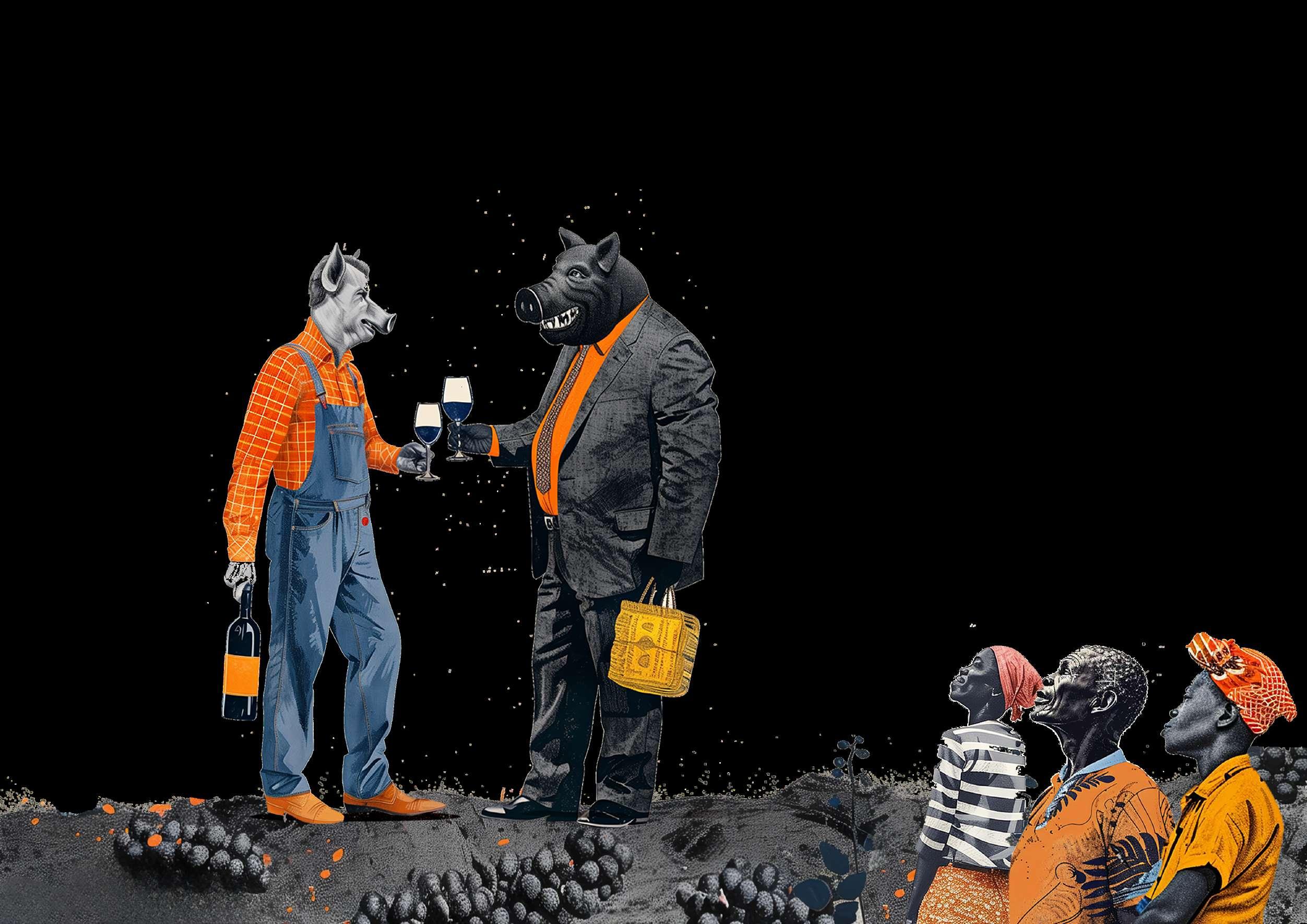
Land and Corruption in Africa
Land corruption is a pressing issue that affects marginalised communities worldwide and has a devastating impact on basic human rights.
In South Africa the issue is complicated by a plethora of laws – some of them unchanged for decades – regulating the purchase, redistribution, and tenure of land, as well as landowners’ property rights.
As Transparency International’s (TI) official chapter in South Africa, CW is part of an important research project probing the connection between land and corruption across several African countries.
“We embarked on this line of work after receiving hundreds of complaints that shine the light on corrupt practices in land governance in South Africa,” says Melusi Ncala, CW project lead and acting head of the stakeholder and campaigns team.
ANTI-CORRUPTION INITIATIVES: Highlights and Challenges 38
ANNUAL REPORT 2023
Among other goals, the project aims to:
share information on how land corruption manifests and what its effects are;
educate citizens about their land rights and how to defend them; and
work with governments, traditional authorities, the private sector and civil society to find solutions to combat land corruption.
Now in phase two (LCA2), the first phase of the Land and Corruption in Africa (LCA) project was successfully rolled out from 2014 to 2019 and culminated in a research report The current phase started in 2021 and is due to complete in 2025, with eight chapters taking part – Cameroon, Ghana, Kenya, Madagascar, South Africa, Uganda, Zambia, and Zimbabwe.
The focus for the CW team in 2023 was on the plight of people who live and/or work in farming communities, specifically in the Western Cape. We decided to do our research on the Farm Worker Equity Schemes (FWES), which were introduced in the 1990s to serve as an alternative form of transformation in the agricultural sector. Farm workers would sign up for a grant from the Department of Rural Development and Land Reform (DRDLR), which the commercial farmer-owner would match.

This would gain the workers access to a share in the business part of the farm and assist the farmer in training selected workers in the skills needed to run the business. The beneficiaries would get dividends at intervals along with other benefits.
However, it emerged early on that things were not going according to plan.
“Following exposés about equity schemes failing to deliver to farm workers, Gugile Nkwinti, former minister of the Department of Rural Development and Land Reform [now the Department of Agriculture, Land Reform and Rural Development (DALRRD)], issued a moratorium on new schemes in 2009,” said land activist organisation PLAAS This came after a report found that only nine of the 88 schemes declared dividends”
... Overall, there was no meaningful change in the working or living conditions of farm workers.
Since then, not much has changed and the only significant transformation has taken place in the farm owners’ bank accounts.

On the ground
On the ground
“Our goal for 2023 was to conduct research looking at corruption discrimination in the land sector in South Africa,” says Ncala.
“When we undertook to look at the pervasiveness of corruption in land affairs as part of our LCA2 work...”
“Our goal for 2023 was to conduct research looking at corruption discrimination in the land sector in South Africa,” said Ncala.
we learnt that policies relating to communal property associations, the building of Reconstruction and Development Programme houses, and several other government innovations, were highly compromised by unscrupulous officials, fraudulent business persons, and unethical traditional leaders.

Of the LCA2 team’s field research in the Western Cape, Ncala says: “we did it in a storytelling fashion where ordinary people don't just get to read academic literature about the subject, but they get to hear human interest stories.”
Of the LCA2 team’s field research in the Western Cape, Ncala said: “we did it in a storytelling fashion where ordinary people don't just get to read academic literature about the subject, but they get to hear human interest stories.”
The team spent eight days in May in the Vredendal/Ceres part of the province, driving around from farm to farm and from community to community, speaking to people who were promised the earth and received, for the most part, nothing. They visited people in their farm homes and for those who had been deprived of a home on the farm, in their homes in mostly impoverished townships. The hospitality and graciousness they received from these people who had so little was humbling.
The team also spoke to representatives of both commercial farmers and the relevant local government department and through a contact at the latter, tracked down a copy of the long-hidden ZALO Capital (a consultancy firm) report into FWES. The report was completed in 2013 but 11 years later, its review of almost 89 equity schemes remains suppressed. CW read the report, which concurred with our findings of extensive malfeasance on the part of both farmers and the DALRRD. The department failed to monitor progress once the money was disbursed, while the farmer-owners were never held accountable for their broken promises.
And it's just one of those basic human rights projects that show the impact of corruption in the most vivid and way, so that you can't help but feel outrage and the willingness to fix it as best as you can.” The teamwork aspect of the project is one Ncala values tremendously.
The team spent eight days in May in the Vredendal/Ceres part of the province, driving around from farm to farm and from community to community, speaking to people who were promised the earth and received, for the most part, nothing. They visited people in their farm homes and for those who had been deprived of a home on the farm, in their homes in mostly impoverished townships. The hospitality and graciousness they received from these people who had so little was humbling.
show the impact of corruption in the most vivid and tangible way, so that you can't help but feel outrage and the willingness to fix it as best as you can.”
The teamwork aspect of the project is one Ncala values tremendously
“I enjoy working with social partners developing, or at least brainstorming solutions and how we can assist vulnerable people in the most effective way. I enjoy working with the team members that I have at CW, because they really are vested in making this project meaningful. They challenge me in my thinking, and usually when we execute things, it's because it's been tested rigorously through extensive discussion and debate. I enjoy the intellectual stimulation and humility that it brings.”
The team also spoke to representatives of both commercial farmers and the relevant local government department and through a contact at the latter, tracked down a copy of the long-hidden ZALO Capital (a consultancy firm) report into FWES. The report was completed in 2013 but 11 years later, its review of almost 89 equity schemes remains suppressed. CW read the report, which concurred with our findings of extensive malfeasance on the part of both farmers and the DALRRD. The department failed to monitor progress once the money was disbursed, while the farmer-owners were never held accountable for their broken promises.
The report uncovered significant financial irregularities, mismanagement, improper accounting practices, and other forms of possible malfeasance but there appears to be no action taken by the DALRRD since it was completed.
Teamwork an ingredient of success
The report uncovered significant financial irregularities, mismanagement, improper accounting practices, and other forms of possible malfeasance but there appears to be no action taken by the DALRRD since it
“LCA is one of the earliest big projects I've had to work on at Corruption Watch,” Ncala explains. “It just resonated with me because I come from an impoverished community. I know what this means. I've seen the effects of people being homeless and living in squalor.
Teamwork an ingredient of success
had to work on at Corruption Watch,” Ncala vested
“LCA is one of the earliest big projects I've explained. “It just resonated with me because I come from an impoverished community. I know what this means. I've seen the effects of people being homeless and living in squalor. And it's just one of those basic human rights projects that
“I enjoy working with social partners developing, or at least brainstorming solutions and how we can assist vulnerable people in the most effective way. I enjoy working with the team members that I have at CW, because they really are vested in making this project meaningful. They challenge me in my thinking, and usually when we execute things, it's because it's been tested rigorously through extensive discussion and debate. I enjoy the intellectual stimulation and humility that it brings.”
Ncala encourages people to support the LCA2 project in whatever way is best for them, whether it is having a conversation in their own spaces about land corruption, or whether it's offering a resource to help the team or to help those who are in need. “I'm not asking them to change their lives or their convenient living, but I want them just to think about okay, did I talk to my neighbour, my friend, my colleague about this particular issue? Even if it's as simple as that, it spreads awareness, and it shows that you care.”
Ncala encourages people to support the LCA2 project in whatever way is best for them, whether it is having a conversation in their own spaces about land corruption, or whether it's offering a resource to help the team or to help those who are in need.
“I'm not asking them to change their lives or their convenient living, but I want them just to think about okay, did I talk to my neighbour, my friend, my colleague about this particular issue? Even if it's as simple as that, it spreads awareness, and it shows that you care.”
We chronicled our experiences in a
We chronicled our experiences in a well-received five-part podcast series and a research report, both released in October 2023. The two projects highlight how people who suffered immensely for generations are still exploited by commercial interests and public officials alike. With little access to education, information, and legal assistance, this group is vulnerable and relies mainly on civil society organisations for support.
October 2023. The two projects highlight how people who suffered immensely for generations are still exploited by commercial interests and public officials alike. With little access to education, information, and legal assistance, this group is vulnerable and relies mainly on civil society
The CW report is part of a larger report with contributions from all participating TI chapters. The full report with contributions from all the chapters involved is due for release in March 2024.
The CW report is part of a larger report with contributions from all participating TI chapters. The full report with contributions from all the chapters involved is due for release in March 2024.
ANTI-CORRUPTION INITIATIVES 41
Highlights and Challenges
Leadership Appointments
Introduction
The appointment of suitably qualified and appropriate leaders to key institutions in South Africa is of critical importance in addressing corruption in the country. The provision for independent and robust anti-corruption institutions to act in the public interest without fear, favour, or prejudice, is one of the cornerstones of our constitutional democracy
The consequences of appointing the wrong people can be dire and the subsequent erosion or even collapse of these institutions can take years to rectify and rebuild, giving rise to a state without adequate checks and balances, where impunity prevails. Importantly, it is the public that bears the brunt of the failure of these institutions and is made vulnerable to abuse of their constitutional rights. This is particularly so where appointments have been made without transparency or the provision for public participation, despite existing legislation and a Constitution that is premised on a participatory democracy
Eight years ago, CW began actively campaigning for greater transparency in the appointment processes of leaders of state-owned enterprises, institutions in the criminal justice system, and those established under chapters 9 and 10 of the Constitution of South Africa.
The objective of this work is that such candidates are appointed in a transparent manner, assessed against clear, merit-based, objective criteria that are relevant to the respective roles, and that avenues for public participation in appointment processes are made available.
In this election year, there is no reason to think that the lessons learned and experience gained over the years could not be equally applied to monitoring candidates prior to and after the elections. The call for transparency and public participation is as relevant for political party leaders, and the rigorous scrutiny of political party manifestos.
The year that was
In 2023 the CW team monitored two significant leadership appointment processes – the chairperson and commissioners for the Commission for Gender Equality (CGE) in February 2023, and the new public protector in October 2023 – and made several important interventions. These appointments have specific relevance as public institutions with a mandate to serve the public in critical ways. For example, the CGE holds the important constitutional mandate of promoting respect for gender equality and for the protection, development, and attainment thereof. The lack of gender equality plays out in different ways in our society, including the feminisation of poverty, the impact of HIV/AIDS, and gender-based violence.
The Public Protector is of equal significance, with its mandate to represent and investigate wrongdoing in the public sector, often with the most severe consequences for the most vulnerable. When compromised leaders are appointed to institutions of this nature, it is the public that suffers.

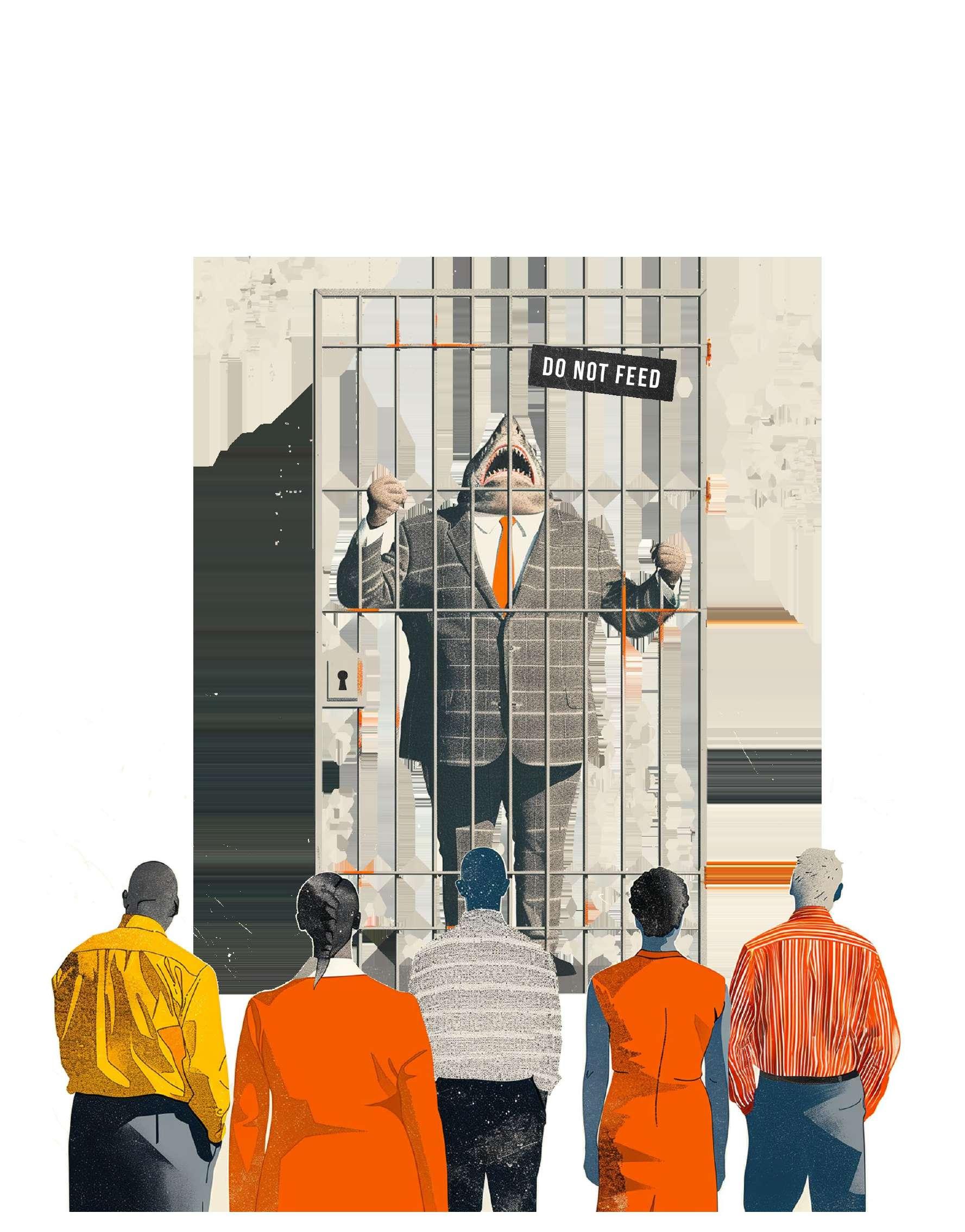
4 ANN U A L R E P O R T 2 0 2 3 42
ANTI-CORRUPTION INI T I A TIVE S :
A key element of this work throughout the year has been the task of holding parliamentarians accountable for using transparent processes in vetting and recommending candidates, as the main actors tasked with evaluating and assessing candidates most suited to lead these institutions. It is therefore imperative that they are held accountable to the highest standards in performing this function.
In the matter of the appointment for the next public protector, the team conducted an extensive vetting process of both the longand short-listed candidates, with the aim of identifying any red flags. Previous interventions in appointment processes had laid the groundwork for greater transparency and participation. Consequently, this process was conducted in a transparent manner and the public was given sufficient time and access to information and the vetting and interviewing of candidates.
The appointment of the chairperson and four commissioners to the CGE was announced on 25 February 2023. However, the CW team considered the process flawed for several reasons. The portfolio committee only made public the names and qualifications of each candidate, with no access to appropriately redacted CVs for consideration.
Secondly, there was no reasonable opportunity to submit recommendations within the extremely restricted timeframe of 10 days, thereby curtailing the possibility for effective public participation, which entails consideration, consultation, and written feedback. In addition, submissions were limited to 2 000 characters, which is barely enough space to provide substantive feedback.
Consequently, the CW team, working with civil society organisations, approached Parliament, the president, and the Information Regulator, laying out its concerns. It has since launched an application in the Constitutional Court contesting the way in which these appointments were made. The team approached the Court to put pressure on Parliament to formalise its public involvement process and ensure that it is fair and reasonable, and that the public is heard. This matter will continue in 2024.
Impact
The impact of these interventions can be viewed in the context of the entirety of the campaign that began in 2016. The pressure from the team on appointment processes has led to far greater transparency and accessibility to information for the public, as mandated in the Constitution. The emphasis of this work has always been on the process and systems for selecting candidates and on recommendations for the introduction of more rigorous criteria for these key positions. This work does not, however, extend to the actual selection of candidates, which is the purview of the legislature and the executive.
What’s next?
In 2024 the team will be making a submission in the early part of the year on the appointment of the deputy public protector to ensure that the process is fair and transparent and allows for public participation.



Youth Project
ANN U A L R E P O R T 2 0 2 3 44
ANTI-CORRUPTION INI T I A TIV E S : H ig h l i g h ts a n d C h a lle ng es
Young Interrupters: Encouraging youth activism
Since its inception, CW has developed campaigns and activities with the intention of involving the youth in the anti-corruption landscape. Over the past three years, these have included participation in the Youth Advocacy Festival and in successive Youth Parades to commemorate Youth Day on 16 June. One such initiative launched during 2023 isthe Youth Interrupters project, which seeks to contribute to the development of young leaders who are ethical, accountable, and resilient in the fight against corruption and in the pursuit of human rights.
The scope of the project encompasses the development of an anti-corruption toolkit, a facilitators guide, and an interactive game that will be targetted at young people.
The focus of the team’s work during 2023 was on conducting research on engaging and innovative games that are currently in the public domain.

This involved an initial focus group that aimed to identify models and approaches of existing games that could potentially be adapted or incorporated into the development of a unique game with an anti-corruption theme.
The next phase involved the intensive work of developing two customised games that were piloted with a focus group to test their suitability and robustness, and to receive recommendations for further improvements and adjustments. This feedback has been valuable in informing the current process of adjusting and refining the game that was ultimately chosen and which will be finalised and launched in June 2024.
Once the three products in the suite are ready, the team will conduct a series of training sessions in Gauteng and other parts of the country, for wider dissemination during the latter part of the year.
Engaging the youth in the fight against corruption
The primary purpose of this initiative is to raise the awareness of young people on issues of corruption, and to encourage active and inspired youth involvement in reducing corruption and the opportunities that allow it to flourish. There are plans for collaboration with other organisations with experience on issues of ethics, accountability, and anti-corruption. In this election year, through the Youth Interrupters project we aim to address the importance of electing ethical leaders.
ANTI-CORRUPTION INITIATIVES: Highlights and Challenges
State Capture
The civil society sector plays a very important role in bridging the gap between government’s policy implementations and the millions of citizens whose daily lives areaffected by them. Whether it is in educating and empowering citizens about their rights and responsibilities or highlighting the wins or shortcomings of such policies and their impact, our ultimate role is to monitor theplaying fields. After all, social justice involves making sure there is little or no difference between promises made to the public, and the reality on the ground.
Government’s process of implementing the recommendations of the Zondo Commission into state capture is no different. The commission is by far the farthest-reaching judicial instrument to probe corruption in South Africa’s democratic era, with a record of 430 public hearings between 2018 and 2021, and evidence heard from over 300 witnesses.
June 2023 marked the first anniversary of the end of the work of the commission, when chairperson Chief Justice Raymond Zondo released its very last report. In October that year came the anniversary of President Cyril Ramaphosa’s announced action plan for Zondo’s wide-ranging recommendations. Ramaphosa told the country that the plan had been developed in a multi-stakeholder setting to cover the vast ground of the commission’s work.
While there was some media attention for the June event, very little was reported about the other anniversary. For CW and several other civil society organisations, however, it was a noteworthy period.
This is because there is importance to be placed on various factors including, among other anticipated changes:
monitoring the institutional and legislative reform that needs to happen to reverse the damage of state capture;
the urgent need for whistle-blower protection and support;
the changes needed in our public procurement environment; and
the enhancement of resources and capacity for the criminal justice system that must bring perpetrators to account.
By extension, it is also civil society’s responsibility to support the work of the National Anti-Corruption Advisory Council (NACAC), formed by Ramaphosa with the aim of steering the objectives of the National Anti-Corruption Strategy in line with the recommendations.
CW continued to watch the developments around state capture during 2023, just aswe had during the term of the commission. Through written content we captured the news of ongoing criminal cases, of some of the implicated parties, as well as other processes holding these individuals accountable.
Our Zondo Commission Unpacked podcast series continued in its quest to solicit thought leader analysis from anti-corruption experts, thereby giving perspective to the work that is being done to address state capture. In the three new episodes, CW executive director Karam Singh, his counterpart at the Council for the Advancement of the South African Constitution (Casac) Lawson Naidoo, and Open Secrets investigator Zen Mathe provided insights into government’s progress in addressing the impact of state capture. CW further participated in the second instalment of the state capture conference, co-hosted since 2022 by Casac and thePublic Affairs Research Institute.
CW’s Motlatsi Komote participated in a panel discussion titled Guardrails and infrastructures for integrity in publicprocurement, along with former CW staffer Caroline James.

4 ANN U A L R E P O R T 2 0 2 3 46
We also participated in various other public engagements on the topic of the implementation programme of the recommendations, including the NACAC’s first national dialogue in November. An integral part of addressing state capture stems from the recommendations for several pieces of legislation to be amended to either enable improved enforcement, or in a spirit of ensuring
Throughout all these activities, CW did not shy away from sharing its analysis of the developments in the process to address state capture through media interviews. We called for uniform application of the principles of accountability institutions such as Parliament and law enforcement agencies, regardless of political seniority. We also called

ANTI-CORRUPTION INITIATIVES: Highlights and Challenges
Corporate Corruption
Background
Back in 2020 CW partnered with the National Business Initiative and the ODI, an independent London-based global think-tank, to research transparency in the reporting practices of 100 local and multi-national companies. The result was a report titled Transparency in Corporate Reporting: South Africa 2020 Building on that work, the three organisations turned their attention to the culture of corruption in corporations in South Africa specifically. This follows not only the above-mentioned report, but also the issues involving the private sector that were uncovered at the Zondo Commission. The organisations hosted a virtual launch of this report, Addressing Corporate Corruption in South Africa: The EOH Experience, on 29 August 2023.
Why EOH?
The Judicial Commission of Inquiry into Allegations of State Capture, Corruption and Fraud in the Public Sector including Organs of State, or the Zondo Commission as it is more familiarly known, began its work in August 2018. Led by now-Chief Justice Raymond Zondo, the commission completed its evidence in August 2021 and published its six-part report between January and June 2022.
In Chapter 4 of the first Zondo report (RSA 2022a)1, examples emerging from the testimony of witnesses were identified to typify the distinct types of abuse carried out at each stage of the public procurement cycle. In this regard, six different private sector entities were identified as being involved in these examples, one of which was EOH2, a major South African ICT company listed on the JSE.
The team’s decision to highlight the EOH case was motivated by the significance of the involvement of a company like EOH in grand corruption, being one of the biggest tech companies listed on the JSE with a strong history in the South African market, and with a track record of getting government contracts. The exposure in the media and before the commission of the extent of that corruption resulted in huge losses, not only financial but reputational. Strong remedial action was required, starting with the appointment of an entirely new executive team and changes that came with their own set of challenges.
EOH’s relationship with the City of Johannesburg came under specific scrutiny in the commission’s fourth report. The EOH case is unique in that it was the only company to proactively approach the commission for an opportunity to make a public disclosure about the wrongdoing that had taken place historically within its ranks, and to outline what the company has done and proposes to do to make reparation (RSA 2022b, para 242-3).
The Zondo Commission focused primarily on public sector rather than private sector entities, and so it did not look deeply into the reasons for corporations like EOH becoming corrupt. While there is no doubt that the wider context of state capture in South Africa after 2009 had a significant role to play in corruption at EOH, the analysis in this report shows that the corporation’s problems preceded the state capture period and extended well beyond EOH’s direct engagement with the state.
1. The Zondo Commission website including all its evidence and reports is www.statecapture.org.za. • 2. See www.eoh.co.za
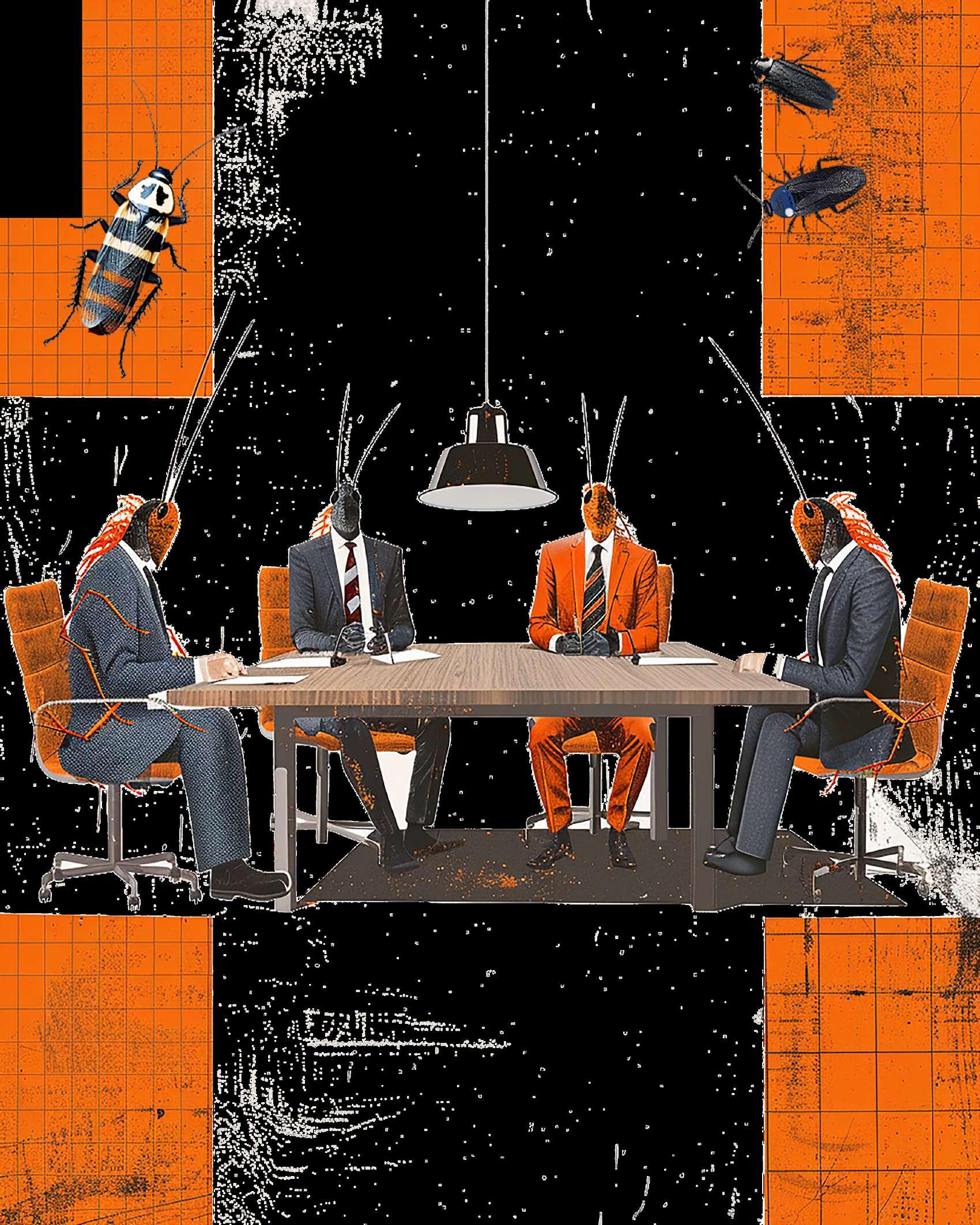
4 ANNUAL REPORT 2023 48

ANTI-CORRUPTION INITIATIVES: Highlights and Challenges
Public Procurement Unpacked
Public procurement, whether we realise it or not, is a big part of our daily lives and how we function as a society. Budgets that are allocated to national, provincial, and local governments are further distributed for the delivery of services we all need. It’s in the delivery of these services that we as the public can either fault or commend government on its work.
So it’s important to understand and appreciate public procurement for what it is. Kirsten Pearson, who consults for CW in this area of work, describes it as “a social contract that we enter into when we pay taxes. We expect in return public services like maintaining the commons such as roads, the provision of water, education, and healthcare services.”
By this logic, then, it follows that when such basic services fail, we may look to the procurement processes for weaknesses with the goal of ensuring flawless delivery. “When procurement is abused, then those services suffer because a lot of the state’s work is done through procurement, and it’s got quite a sizeable budget attached to it,” Pearson explains.
Procurement in the public sector must be taken seriously. The latest auditor-general report on the audit outcomes of national and provincial governments for the financial year between 2022/23, revealed that just over R3-trillion – a huge chunk of money – was spent.
Legislative reform
Two major highlights of CW’s work in procurement in the past year have been our submission to Parliament on the Public Procurement Bill, as well as the procurement training and reporting done through our Procurement Watch (PW) tool. Public submissions to the bill were solicited in 2023.
The Public Procurement Bill has long been in the development process. Through it, National Treasury aims to prescribe a single framework for a procurement policy, but CW as part of the Procurement Reform Working Group engaged with the process through various platforms, citing the lack of transparency in procurement processes. There is a sense, argues Pearson, that any failure to address this particular weakness in the bill could make the procurement process more complex and even more opaque than it currently is, and therefore create difficulty for the oversight that has to happen over it.
Civil society has really tried to have the concerns on transparency heard in the process, she adds, but whether the working group has been successful will be seen in the bill that Parliament eventually passes. “The group works well, and it has done good advocacy work and it’s done submissions on the bill, and it’s an important group, but whether we will succeed is another story.”



4 50 ANNUAL REPORT 2023




ANTI-CORRUPTION INITIATIVES: Highlights and Challenges
Investigations
A small but significant part of CW’s work involves targeted investigations that cut across several sectors. From the organisation’s inception, and despite limited resources, CW has always endeavoured to bring attention to weaknesses in governance in the public sector, particularly in cases where service delivery is affected by malfeasance, through its investigations work.
The lessons learned over the years include the understanding that the work of investigators takes time and patience, and often, collaboration. Furthermore, whistle-blowers need not just protection, but support as well.
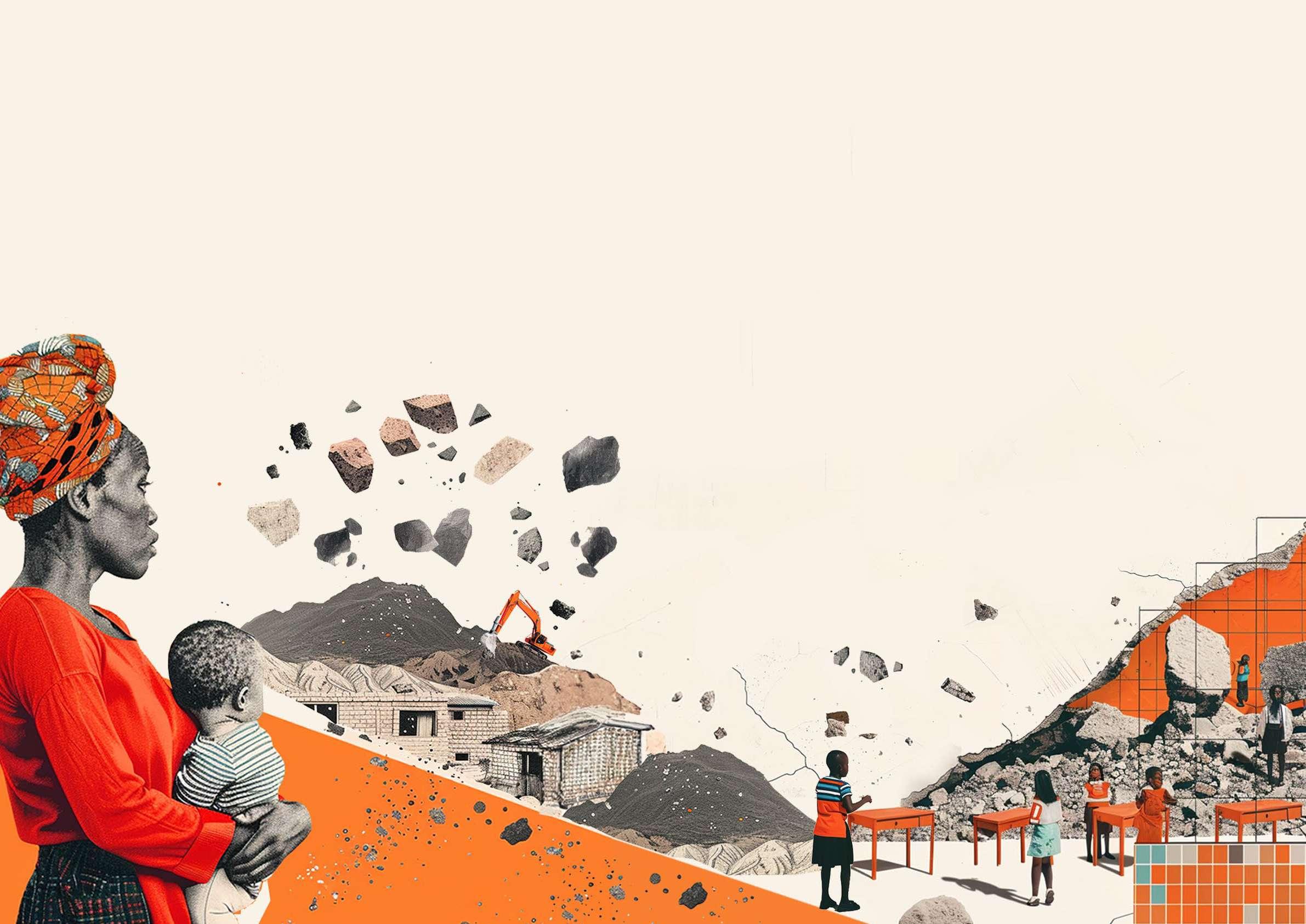
As CW investigations team member Keletso Ramannya puts it: “The biggest challenge for organisations like ours is that we not only have limited capacity and statutory powers, but we are also limited in the protection of whistle-blowers.” The advantage CW has, however, is the platform to advocate for whistle-blower empowerment and education.
In 2023, CW continued the investigations path, following up on several of its still-open cases, while also venturing into a previously uncharted area, as will become evident later. The investigations journey of 2023 was just as filled with lessons as any other in previous years.
ANNUAL REPORT 2023 66
Mining: Maditlhokwa community
As mentioned in the previous annual report, the team has been investigating the conditions at Retief Primary School in the North West and the impact of mining operations at Tharisa Mine, which is adjacent to the school, on its infrastructure. Located in Mmaditlhokwa, the school caught the attention of CW because of the work the organisation has been doing as part of Transparency International’s Accountable Mining Programme. That work includes looking into the impact of mining operations on communities that live on the land on which it happens (see section on mining).
For the Maditlhokwa community, the Piet Retief school is one of the amenities that are precious to them. Some in the community told CW of the disruptive impact on schooling caused by regular blasting on the mine site.
“Often the children have to take cover and hide under desks when blasting happens, and on some occasions, this can go on for long periods at a time,” a community member told CW. There is also fear that the school infrastructure may not be able to sustain the impact of the blasting over time, as it is made up of old building structures.
Communication with the North West education department, recorded in our 2022 annual report, has still received no response.
In 2023, CW received another complaint pertaining to the mining operations in Mmaditlhokwa. The complaint alleged improper consultation with the interested and the most affected parties within the mining area, which resulted in their relocation from one area to another.

Part of the complaint was that the mine had not restored the community’s livelihood and standards of living which it had enjoyed prior to relocation.
Other allegations describe noise and vibrations during blasting, with air and water pollution being constant threats, as are incidents of flying rocks due to the proximity of the homes to the mining zone. As a result, community members are forced to evacuate their homes during the blasting, which takes place intermittently seven days a week.
Efforts to get the Department of Mineral Resources and Energy involved in overseeing the mining operations of the Tharisa Mining company through two separate Public Access to Information Act (PAIA) processes, have been in vain.
Mining: Jibeng community
As mentioned in the previous annual report, the CW team worked with stakeholders in the Jibeng community in Limpopo as part of the EU REAP mining project. We revisited the Jibeng investigation in 2023, concluding the compilation of a report with findings and making recommendations to the Jibeng community, Jibeng 01 Association, Baroka ba Nkwana tribe, and other relevant tribes concerned with the Jibeng land claim and the historical background of the community. There are also recommendations to the Department of Agriculture, Land Reform and Rural Development to conduct further investigation into and verification of the validity of the land claims and property transfers that CW received from representatives of the afore-mentioned groups.
Education: Azariel Senior Secondary School
Another update involves Azariel Senior Secondary School in the Eastern Cape, where CW investigated allegations of abuse of power in the recruitment processes of staff, as well as financial irregularities. In 2023 the provincial department of education shared the first part of its investigation report, confirming an in-depth investigation with evidence collected.
We were advised that the principal of the school has since resigned, and by the time that the investigation was concluded was no longer in the position. Regarding the investigation into financial irregularities, CW was requested to make a formal PAIA application to the head of department to obtain the final investigation report, including recommendations.
Education: Blinkwater Primary School
Regarding the Blinkwater primary school investigation, which was also recorded in the 2022 report, CW has had to put this on hold due to lack of tangible evidence.
Education: Ratshepo High School
Following our receipt of a report that alleged abuse of power and procurement and financial irregularities in the running of the school in Themba, Hammanskraal, the team referred the matter to the Gauteng education department, which launched an investigation in late 2021. When there was no feedback from the department on the progress of the investigation, CW followed up with a letter of enquiry on the steps taken to date. Attached to the letter was a PAIA application.
Our interest is in finding out the outcome of the internal investigation, and whether any recommendations were made that the leadership of the school is compelled to follow.
Governance: Political party funding
As mentioned above, CW ventured into new and previously uncharted territory during 2023. Driven by the principle of transparency in political party funding and inspired by the Political Party Funding Act (PPFA) which was enacted by President Cyril Ramaphosa in 2021, CW conducted research into the legislative integrity of the PPFA.
Our interest, like that of many others working in this space, was piqued by the requirements in the PPFA for transparency in terms of party donors, and the threshold for donations.
With 2024 being an election year, it was even more important for CW to explore this area of work with vigour, to fully appreciate the factors that come into play in terms of political parties and how they are founded.
Following declarations by political parties over the course of the year, the team has undertaken research into donor records and methods in which political parties may potentially circumvent the threshold clauses of the PPFA.
Even though CW has become aware of several cases of interest in this area, the team is not in a position at this time to divulge much information until further investigations have been undertaken. We do, however, endeavour to collaborate with relevant stakeholders in this area to gain more insight and to come to more substantive conclusions. Watch this space!
Governance:
Politically exposed persons
Our collaborative work in Southern Africa and internationally also saw the team probe the profiles of three individuals who cannot be named at this stage, but who are suspected of having gained their wealth through their association with high-profile politicians in the region.
Our preliminary findings were shared with the international team that is focused on similar investigations in other countries that are chapters of the movement.
CW continues to strive for justice for those whistle-blowers who bring their reports of corruption to us.
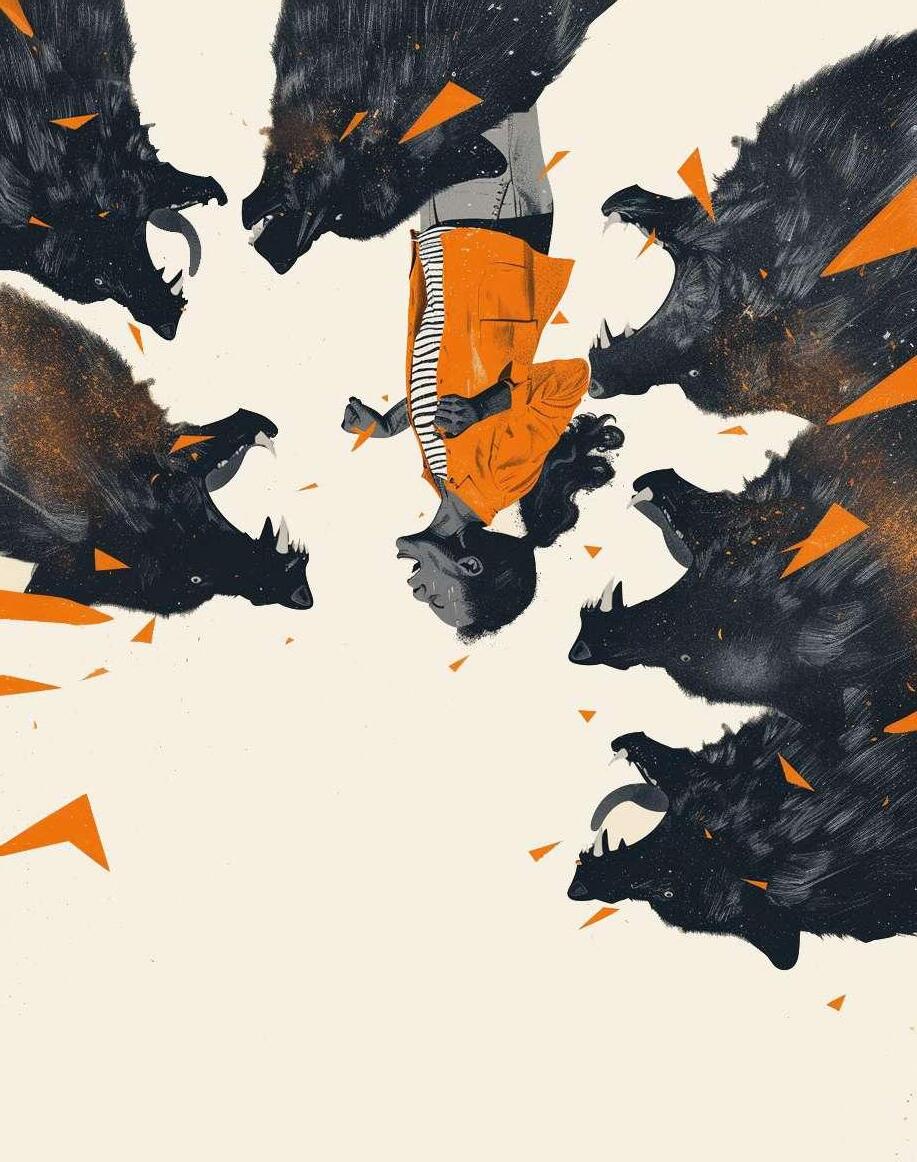

4 ANNUAL REPORT 2023 68


Campaigning against corruption
By Kavisha Pillay
2024 marks thirty years since South Africa became a constitutional democracy, and with that, we should reflect on the many positives that have been ushered in and implemented during this period.
Our democracy, though fragile and at risk in many instances, still has the potential to improve the lives and dignity of all those that live in our country. With ethical leadership, robust and inclusive systems, and new, progressive ideas, we can transform from a land of stolen dreams, to one of realised potential.
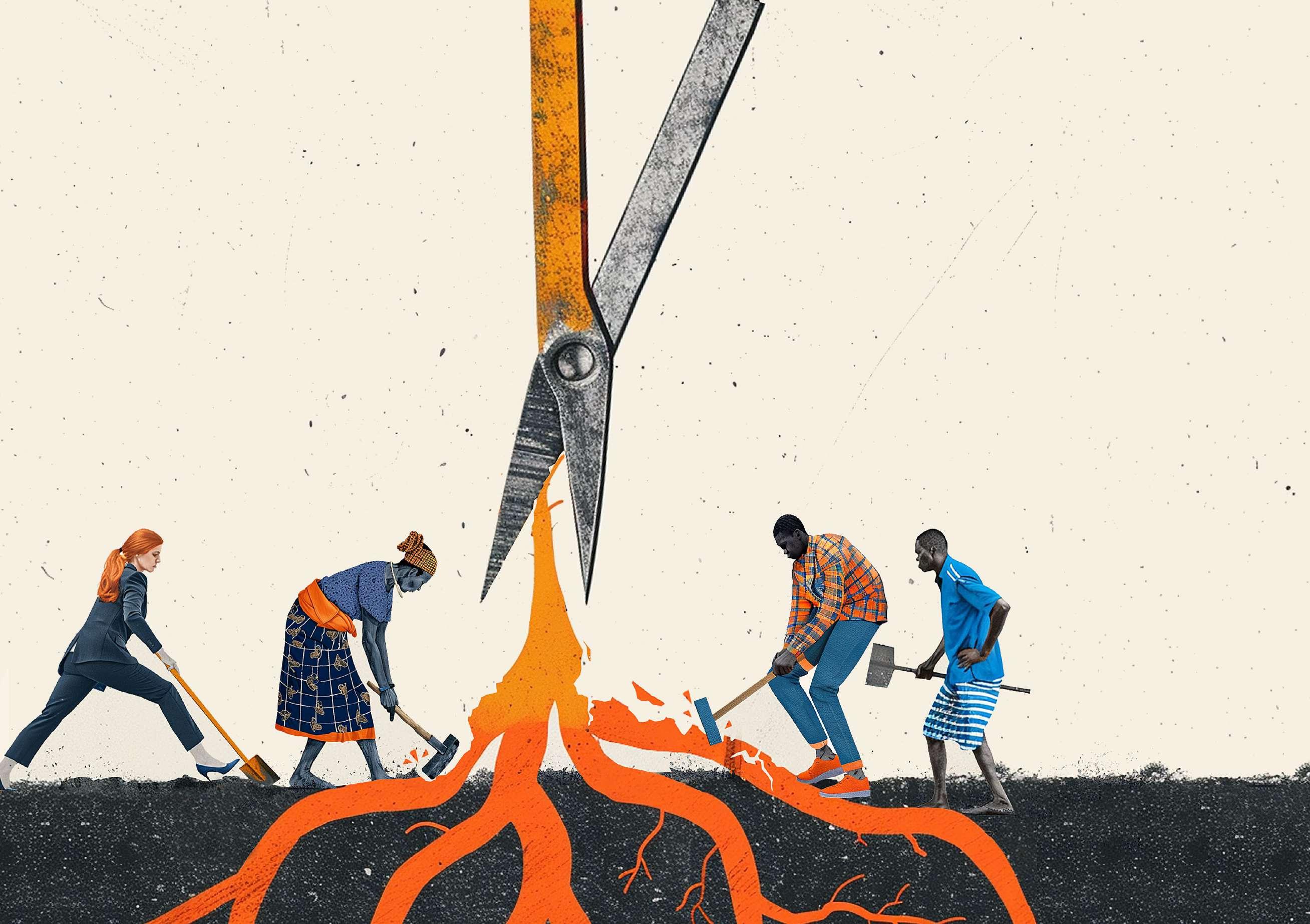
It goes without saying that corruption has stolen the dreams and hopes of many. It poses one of the biggest threats to our democracy, and inhibits the delivery and realisation of basic rights and services. If we hope to positively change the trajectory of South Africa, it will require some fundamental shifts and changesat both a state and individual level.
OPINION PIECE
CORRUPTION CRIME
Change is slow, but possible
Over the last decade, I have actively campaigned against corruption, and with that I have observed the many wins that civil society has had in terms of preventing our democracy from tipping over the edge.
Some of these include:
The campaigns led by the Organisation Undoing Tax Abuse to prevent the implementation of e-tolls, and the 2023 legal win which saw the government retracting its State of Disaster on electricity, which would have opened the door to a lot of corruption in procurement.
Initiatives by Open Secrets that have unmasked the enablers of state capture, and exposed the role of the private sector in aiding and abetting systemic corruption.
The important litigation by My Vote Counts, which led to the introduction of party funding disclosures.

The work currently being done by The Ethics Institute to improve the state of ethical leadership in local government.
The continuous and consistent work by CW to improve the way in which leaders are appointed to crime and corruptionfighting bodies, Chapter 9 institutions, and state-owned entities. CW’s impressive strategic litigation record has also contributed to the promotion of accountability and justice.
The ongoing advocacy campaign by #UniteBehind to bring to book those who have been responsible for collapsing our public railway systems.
Lastly, the lobbying and pressure campaigns by the Active Citizens Movement, Whistleblower House, and other civil society groupings, has led to decent proposals by the state on improving whistle-blowing in South Africa.
This list is but a fraction of the many impactful and meaningful efforts that took place, and are still under way, by different organisations, to arrest the pervasive levels of corruption in our country - in defence of our democracy and her people. Fighting and resisting corruption is a tough battle, which requires a lot of personal strength, as well as resources. This work is ongoing, and oftentimes frustrating, as the impact is only felt after many months or years. Nevertheless, investing and supporting anti-corruption efforts is imperative if we hope to shift South Africa onto a path of integrity, accountability, and transparency.
71 ANTI-CORRUPTION INITIATIVES KLEPTOCRACY INEQ U AL ITY
Looking ahead
Our world is ever-changing, and becoming more complex as we confront global declines in democracy and civic space, the rise of rightwing populism and kleptocracies, the pervasive influence of money in politics and democratic processes, as well as existential threats posed by climate change, and artificial intelligence.
In the months to come, activists and corruption-fighters in South Africa must coordinate their efforts to ensure that we see meaningful wins in the following areas:
Regulating the funding of politics in South Africait is quite reasonable to assume that Parliament will pass the proposed Electoral Amendments Bill, which will see the removal of thresholds for disclosure by political parties and independent candidates on who funds them, as well as funding caps. If we do not control the way in which money flows into politics to unduly influence policy or gain access to procurement, we will find ourselves in a perpetual state of capture. In the interests of safeguarding our democracy, it is imperative that the people of South Africa remain at the centre of our society and how it functions, and that the integrity of our electoral process remains untainted by undue financial influence.

Ensuring that whistle-blowers get adequate support and protection - the Department of Justice has introduced interesting proposals on possible amendments to our whistle-blower legislation. These proposals are progressive, but can be improved to ensure that whistle-blowing in South Africa will not result in a loss of life or livelihood. Amending the Protected Disclosures Act, or possibly enacting an entirely new piece of legislation, will be critical in ensuring that people who come forward to expose corruption and other misconduct will receive the necessary support and protection for their disclosures.
Advocating for greater transparency in the Public Procurement Bill - long in development, the bill is criticised for lacking the necessary safeguards to prevent corruption. While public procurement is a crucial economic driver, the current system's fragmentation, opacity, and vulnerability to corruption undermine its effectiveness. The proposed legislation falls short, maintaining secrecy as the default and leaving weak accountability structures in place, thus missing a critical opportunity to reform South Africa's procurement system and combat corruption.
ANNUAL REPORT 2023 72
Investing in a corruption-free society
As we reflect on the challenges of the last thirty years and think ahead to our future, we need to ask ourselves about the type of South Africa that we would like to live in, and the society that we must build for ourselves and those who come after us. What role can you play, in your job, at your school, in your religious institution, at your sporting club, in your everyday life at home, to contribute towards a more just and equal society, where we see reduced levels of corruption? Fighting corruption is everyone’s business, and will require us all to play a meaningful role in seeing its reduction.
Engaging in this collective endeavour necessitates a heightened awareness and proactive stance against corrupt practices, no matter the scale.

It's about fostering a culture of integrity and transparency, whether it's by demanding accountability from our leaders, participating in community advocacy, or simply practising ethical behaviour in our daily interactions. As individuals, our commitment to these values can inspire change, creating ripples that extend beyond our immediate circles.
By embedding principles of fairness and honesty in all sectors of society - from the halls of government to classrooms, from places of worship to sports fields, and within the sanctity of our homes - we lay the groundwork for a transformed South Africa.
This journey towards a more equitable society continues. There are no quick wins in sight, but it is a journey that we should all invest in if we hope to see progressive transformation in our lifetime.




ading mo s to come! - Editor, Moepeng Talane.
C W V OI C E S 75
The structural reforms that will inform the anticipated changes in the bill are among the issues that kept our legal team busy in the lead-up to their submission in Parliament. Legal researcher Motlatsi Komote recalls the different steps in the process of engagement with civil society stakeholders and government, and the key changes that CW advocated for. For instance, while the bill proposes a public procurement office (PPO) within National Treasury, it is CW’s submission that the mere replacement of the existing Office of the Chief Procurement Officer – established in 2013 – would not necessarily ensure independence for the central office that should oversee public procurement.
“We understood on the one hand that it might be better in terms of co-ordination and budgetary control for them to have that office in one, but then we view it as necessary to have it in two offices, noting the power dynamics that come into play. If you have the wrong person in place, as we saw in the state capture period, then you don’t have the necessary checks and balances. Should we find ourselves having a corrupt finance minister who oversees the function of the procurement office that is meant to conduct oversight, it might not be able to do so independently.
“We noted that we need to have a separation of the two entities, the PPO and the National Treasury, so that we could ensure independence, impartiality, more transparency and accountability.”
In terms of the tribunal envisaged in the bill, CW submitted that while we supported its inclusion as it would form a separate layer of oversight in the procurement office, the details were scant as far as how many people would constitute the tribunal, whose independence would also be key. “One of the issues we had with the bill was that the minister of finance, who would also oversee the procurement office, would also be appointing members of the tribunal.”
With the experience of what happened during the state capture period in terms of the powers of members of the executive in state entities, there needed to be a separation of powers, Komote adds.
Learning about procurement
When we were not advocating for change in legislation, we were providing much-needed insights and training in the field of procurement, through PW as a research tool.
Pearson’s passion for simplifying procurement for the ordinary South African is an important driver for the work she puts into the tool, which CW established in 2022. PW aggregates national procurement data that is available on the National Treasury’s website, and makes it easier to search, interpret, and understand. In particular, the tool provides data on deviations (from pre-existing procurement procedures); expansions (of the initial terms of a public contract); and blacklisted suppliers (that have been barred from doing business with government).
Deviations and expansions, although not unlawful in their premise, have been the subject of concern for CW for some time. Both modalities made it into the evidence before the Zondo Commission as being two of the most abused mechanisms in public procurement. For that and other reasons, they are the focus of CW’s procurement training in the form of reports and in 2022 and 2023, webinars.
“CW has done some work to problematise those two modalities of procurement as well as the lack of use of the tender defaulters register. I do think we’re playing a leading role in that respect,” Pearson says.
Whether it was due to the impact of CW’s work or not is uncertain, but the proposed Public Procurement bill has some implications in that area, one of these being a change in the monitoring mechanisms for these areas.
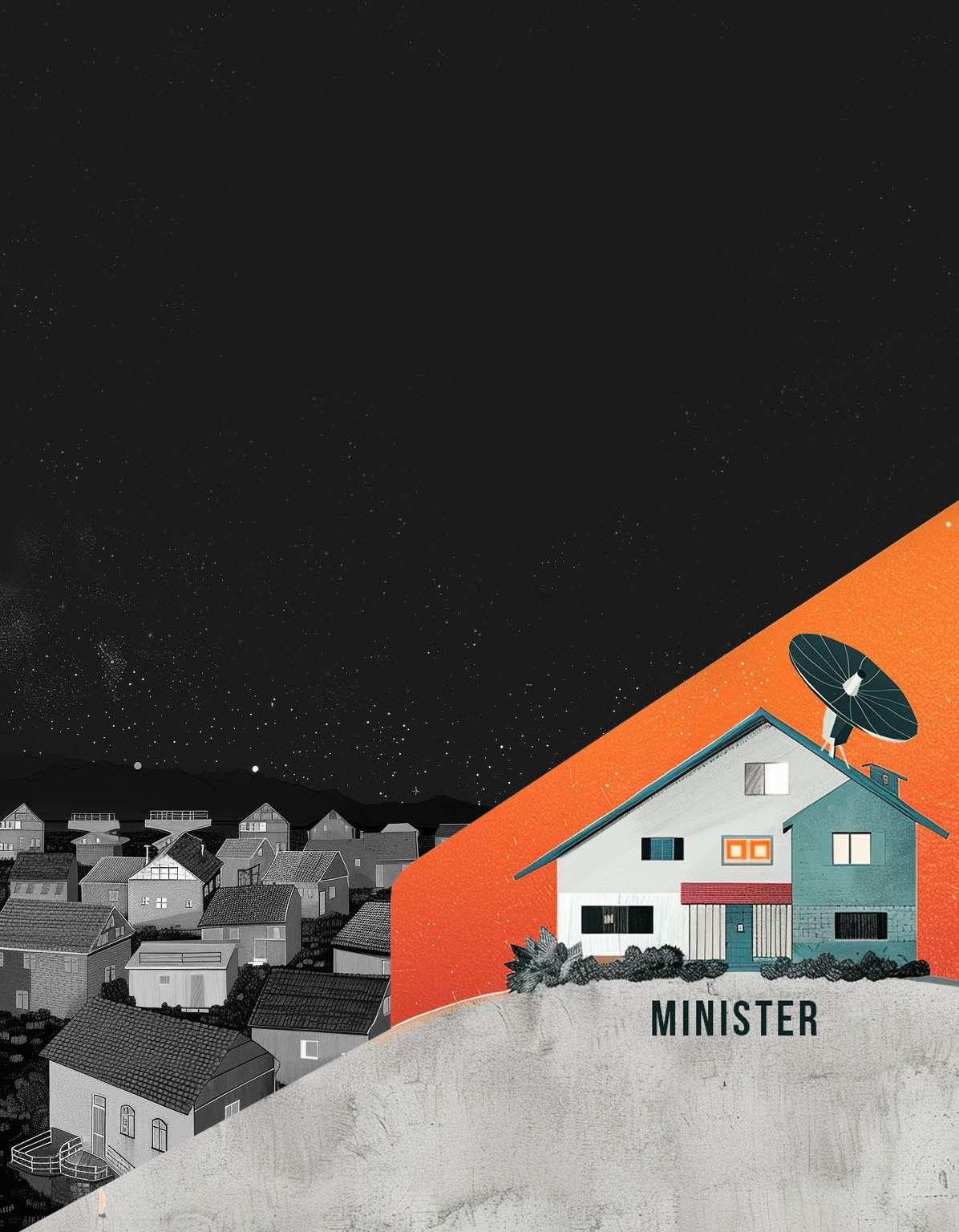
4 ANNUAL REPORT 2023 52
The drawback remains the monitoring and management of the tender defaulters register. While Treasury has repeatedly been made aware of the challenges in this regard, it appears reluctant to act on it. Pearson says the department’s response is always that it relies on the relevant departments [with which tenderers do business] to advise on who to blacklist. Her observation is that there may be reluctance due to potential litigation stemming from blacklisting private entities.
Civil society’s role
Both Pearson and Komote believe that the work of civil society in debunking the negatives of public procurement is far from over. While procurement remains a vital part of how government does its work, it’s important for CW and other organisations to keep information flowing about how it can be exploited for nefarious means.
But there are practical ways in which the sector can get communities involved.
“CW is part of what is known as the Imali Yethu Coalition. One of the gaps coalition members noticed was a need for public education material on public procurement legislation,” explains Komote.

She argues that access to Parliament and similar platforms remains a challenge for the general public, and thus it is important for the likes of CW to keep educating the ordinary person on how they can participate in public fora that enables them to make inputs on the subject of procurement.
Another impactful way of changing the landscape is to enhance our submissions in such a way that they do not only contain the technical information on why principles of transparency and accountability are important, but also contain lived examples of ordinary South Africans who have suffered poor service delivery as a direct result of the lack of scrutiny on procurement processes.
Komote cites the Rooiwal water treatment plant case in Tshwane’s Hammanskraal area as an example of the importance of interrogating public procurement systems. Although the Tshwane municipality made a public commitment to flag the companies appointed for the plant’s refurbishment –linked to already tarnished businessman Edwin Sodi – such action had not materialised by the time of publishing.
ANTI-CORRUPTION INITIATIVES 53
ANTI-CORRUPTION INITIATIVES: Highlights and Challenges
Police Work and the Veza Tool
In 2018 CW was one of four winners of the Google Impact Challenge, which tasked local innovators to solve a social problem using technology. Using this resource, we developed the Veza Tool – an interactive and open data website that aims to increase transparency and accountability in the police service.
Veza, which, loosely translated, means ‘expose’ or ‘reveal’, was launched in February 2021 as a response to numerous reports of police corruption, abuse of power, and maladministration. It is designed to empower communities with mechanisms to combat corruption and break the cycle of impunity in the police service.
Veza provides information at national, provincial and district level. It features interactive maps of police corruption trends and hotspots, information relating to the public’s rights when encountering the police in various situations, and data on all 1 150 police stations across the country, such as locations, resources, budget and personnel.
And this tool is sorely needed – an Afrobarometer survey, conducted in 2021 and spanning the 10 years from 2011 to 2021, showed that public trust in the South African Police Service (SAPS) was at its lowest, with just 26% of respondents indicating some level of trust. The survey showed that trust in the SAPS has declined by about half over the past decade.
There is no reason to believe that things have improved. The latest crime statistics (at the time of writing) were released on 16 February 2024 and show an increase of 2.1% in murders since the same time a year ago, an increase of 12.9% in attempted murders, and disturbing increases in assaults against women (up 7%) and children (up 11.9%).
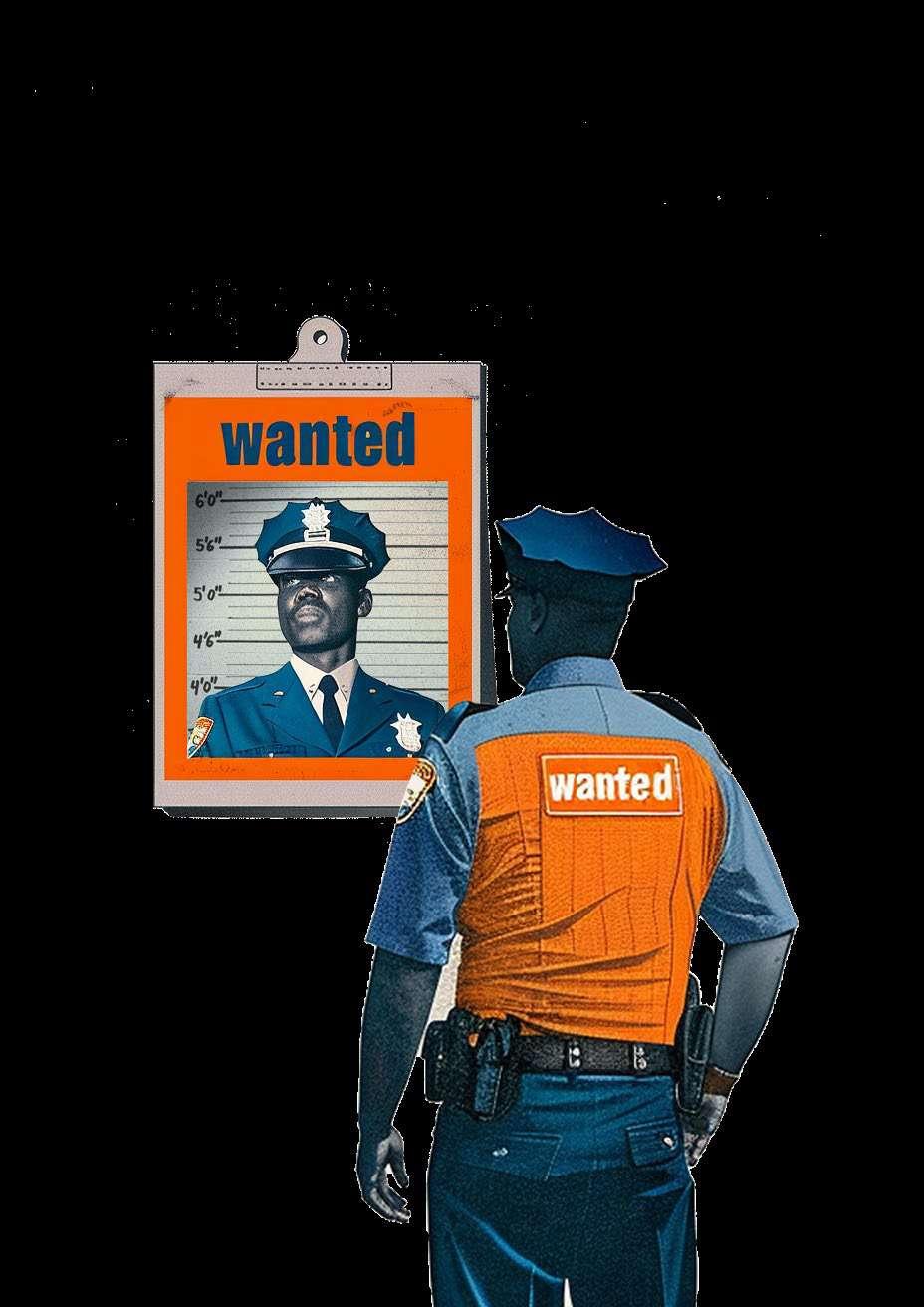

4 ANNUAL REPORT 2023 54

Training and raising awareness
In 2023 the CW Veza team conducted 12 training sessions in three provinces – the Northern Cape, Free State, and Gauteng. The training was done with members of community policing fora, neighbourhood watch groups, ward councillors, station commanders, activists, and concerned members of the public. Through these training sessions we aimed to increase knowledge, awareness, and usage of the tool.

We did the same in 2022, conducting 11 training sessions in the broader eThekwini region in KwaZulu-Natal. An observation of ours is that once we trained people to look up the resources allocated to their police stations, there was a sense of compassion to the conditions with which members of the SAPS in the area may be working under in reference to their police station resource allocation vs the population they have to service.
Last year we recorded 861 users of the Veza Tool – of these, 119 were returning users. Most of our users (589) were from South Africa but a surprising number (123) were from the US. Other countries interested in Veza include China, Germany, and the UK. Access via desktop and mobile devices were quite similar (456 and 402 respectively).
The most popular feature was the use of the markers on the map to zoom in to an area, followed by a map search, and then the compare feature. We also noted that 42 users had nominated an officer – though it is not immediately clear whether it was for good or bad service. Besides the map, the most popular page was Know Your Rights, indicating that users are keen to know not only the situation in their areas but also how to protect themselves during their encounters with police.
Our user numbers are encouraging but people are still hesitant to report corruption. Since the launch, just 161 members of the public have used the Veza Tool to report alleged corruption implicating members of the SAPS. Such reports are immediately geo-located, showing the hotspots and areas of concern.
The types of corruption include dereliction of duty (40.4%), abuse of power (31.0%), bribery attempt or solicitation (26.7%), and sextortion (1.9%).
The charts below include information gathered from 2021 to the present:
About Veza
CW is working continuously to improve the tool, making it more accessible and user-friendly. Besides enabling the public to access budgets, equipment, locations, and personnel of police stations all over the country, Veza puts additional power into the hands of members of the public who encounter the police, allowing them to rate and review their police stations based on their personal experiences, commend ethical police officers, and access information about their rights in relation to policing. In essence, it holds the SAPS accountable for both acceptable and unacceptable standards of behaviour.
Data shown on the map is a combination of the user-submitted reports together with offline data imported into the system – such as police station data – which is updated each time new information is released publicly.
Types of Corruption Reported Dereliction of duty Sextortion Abuse of power Bribe 3 Gauteng Northern Cape Eastern Cape KwaZulu-Natal Mpumalanga North West Western Cape Limpopo Free State 65 3 43 50 68 2 12 16 7 9 37 7 10 20 30 40 50 60 70 Geo-Location ANTI-CORRUPTION INITIATIVES 55

INITIATIVES:
ANNUAL REPORT 2023 56
Submissions
ANTI-CORRUPTION
Highlights and Challenges

CW’s work over the 12 years since its inception has been largely informed by observing trends of corruption in its many forms, and the strategies that we as a civil society organisation can use to encourage change in the current environment.
Where doors are closed, we nudge for them to be opened and for our voices to be heard. Where they are open and we’re given the platform to contribute to an array of processes such as legislative reform, regulatory sector enhancement, and general policy advancement, we give it our all. The past year has been no different. We have contributed to several significant processes that we believe earn us a place in history as taking the civic duty, together with other organisations in our sector, far enough to enable notable change.
In that spirit, we rose to the occasion in 2023 to make submissions to legislative amendments and leadership appointments in Parliament, and contributed to social justice movements that continuously work in the anti-corruption space. We also made our voice heard on an international platform, urging the protection of the human rights of whistle-blowers all over the world.
Whistle-blower protection
CW had the opportunity during the year to make contributions to several laws that are currently undergoing amendments. It was a case of striking while the iron is hot, and as the public participation
The proposed changes follow the state capture commission’s recommendation, contained in its 2022 report, that legislation on whistle-blowers be amended to provide increased protection. Several of the commission’s witnesses made a special plea to chairperson Chief Justice Raymond Zondo for such, stating that many in the public and private sector have suffered severe detriment after becoming whistle-blowers.
In its call for submissions, the DoJ acknowledged the need for changes as mooted by Zondo, particularly the recommendation that any amendment be rooted in the prescripts of the UN Convention Against Corruption. CW argued in its submission that the biggest shortcoming of the PDA was that while it emphasised protection, this was fundamentally to the detriment of the whistle-blower, as it ignored the person making the disclosure.
CW made recommendations that include, but are not limited to, the following:
The protections offered by the Act should be afforded to any person making a protected disclosure and not only employees or workers.
An agency be established in line with proposals contained in the National Anti-Corruption Strategy, to advise and support whistle-blowers.
There be a public education drive on whistle-blowing and its merits and dangers, to

ANTI-CORRUPTION INITIATIVES
Procurement sector reform
Another area of importance for us is procurement. More importantly, integrity in the public procurement sector and its processes. It is the part of government’s work that requires constant scrutiny because it is through procurement that government is able to advance its service delivery goals. It is also prone to corruption, as we stated in our submission to the Public Procurement Bill:
Public procurement… presents one of the biggest corruption risks in modern society. Monitoring public procurement and advocating for reform of South Africa’s public procurement system, is thus central to CW’s work. Procurement integrity is also recognised as one of the six pillars of the National Anti-Corruption Strategy.
Furthermore, we highlighted the impact of procurement on the economy of the country, the human rights of beneficiaries of government’s social services, and efficiency in the delivery of those services.
We noted in our document: “Through procurement processes, governments can set and enforce quality standards for goods and services. This ensures that basic necessities meet the required quality and safety standards, safeguarding the health and well-being of citizens.”
A positive aspect of the Bill is that it aims to consolidate previously fragmented pieces of legislation on procurement, a situation that enabled abuse of protocols. It is also clear on key people that it excludes from procurement processes, such as public office bearers, political party leaders and other listed individuals.
Among the recommendations CW made are the following:
Incentivised whistle-blowing to assist with the early detection and prevention of corruption to save government resources by uncovering corruption before it occurs.
The use of e-procurement for efficiency, transparency, and accountability.
Clearly defined independence of the proposed public procurement office from National Treasury to effect stronger accountability and oversight.
Beneficial owners of companies bidding for government work should be included in bids.
Clearer consequence management be stipulated for instances where prohibited procurement practices are undertaken.
Clearer guidelines for the proposed tribunal as a new structure in the public procurement office.
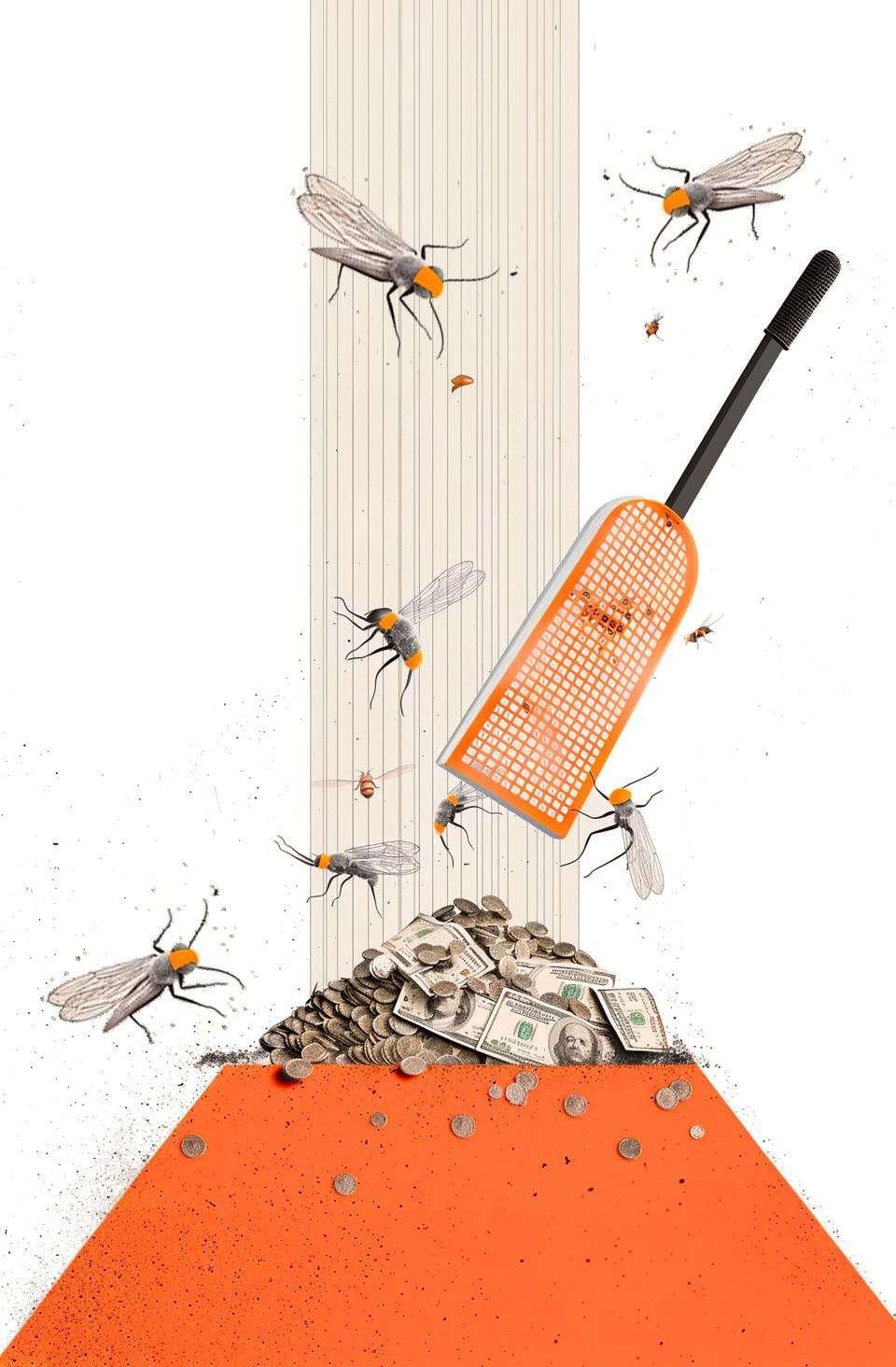
4 58 ANNUAL REPORT 2023

Stronger law enforcement
In October 2022, and in response to the wide-ranging recommendations of the Zondo Commission, President Cyril Ramaphosa declared that government had decided to make the Independent Directorate (ID) a permanent entity within the National Prosecuting Authority (NPA).
The ID had until then been a directorate operating on a temporary basis, established in 2020 in urgent response to the demand for a focused agency to address the high volume of corruption cases expected to arise from the commission. It was to have both investigative and prosecutorial functions, bolstered by regulations enacted by Ramaphosa that enabled the ID to start pursuing investigations of with evidence emerging from the commission hearings. It was a widely welcomed move, save for a few nuts and bolts that required tightening, to fully enable it to come into law.
The NPA Amendment Bill, which would allow for the ID to be legally established, invited public participation through submissions. CW was again among the participants in the submissions process. While generally in favour of the establishment of the ID, we identified several potential weaknesses in the way that the amendment was being proposed.
Among the points contained in CW’s submission are the following:
The organisation echoed the findings of the Constitutional Court in Glenister that it is a constitutional duty of the State, when creating an anti-corruption entity, to give it adequate independence.
We also proposed that the ID be fully independent and not be part of the NPA, to avoid any undue political influence. This, we argued, required a structural and operational autonomy.
CW expressed concern that the Bill does not address some of the deep-rooted flaws within the criminal justice system, namely under-resourcing, undue political influence, and severe capacity constraints in pursuing high profile and complex criminal investigations.
We advocated for the ID to be adequately funded for it to fulfil its mandate, and for political influence to be minimised.
We supported the establishment of a development-oriented public administration that is accountable, transparent, and representative.
CW called for the strengthening of the prosecution policy directives, legislation, and policy to effectively address crime and corruption in South Africa.
We advocated for the improvement of the structure and oversight of the NPA to enhance its performance and effectiveness, reiterating our call for clarity in the appointment process of the National Director of Public Prosecutions.
59 ANTI-CORRUPTION INITIATIVES
Corporate governance
CW’s interest in private sector anti-corruption standards spans its existence. As with the public sector, we engage with stakeholders in the private sector to help improve governance structures and enhance existing anti-corruption standards. For that reason, we again heeded the call when public submissions were sought for the Companies Amendment Bill and the Companies Second Amendment Bill, our primary focus being to highlight the importance of upholding the corporate good governance tenet of beneficial ownership transparency (BOT), thus removing opacity in how companies do business with the state.
We were also concerned with the issue of fiduciary conduct in state-owned companies, a topic that has invited higher scrutiny since revelations before the Zondo Commission of alleged impropriety by directors of Eskom, Transnet, Denel, and Prasa, among others.
In respect of BOT, our submission documents noted that CW seeks a continued shift towards transparency and accountability in corporate ownership and control. Particularly by enabling accurate and complete beneficial ownership disclosures, supporting governments to make high-quality data shareable, and educating others on how to use it. The purpose behind this is to reduce opportunities for corruption, money laundering and tax evasion; giving fair development opportunities and building societal trust.
CW further acknowledged that the General Laws (Anti-Money Laundering and Combating Terrorism Financing) Amendment Act, which came into effect in 2023, goes some way in making reforms on BOT, but also highlighted the fact that to date, BOT information is still not publicly available. We also saw a positive in the extended time frames prescribed in the Companies Amendment Act in respect of instances where there are proceedings to recover any loss, damage, or costs due to fiduciaries’
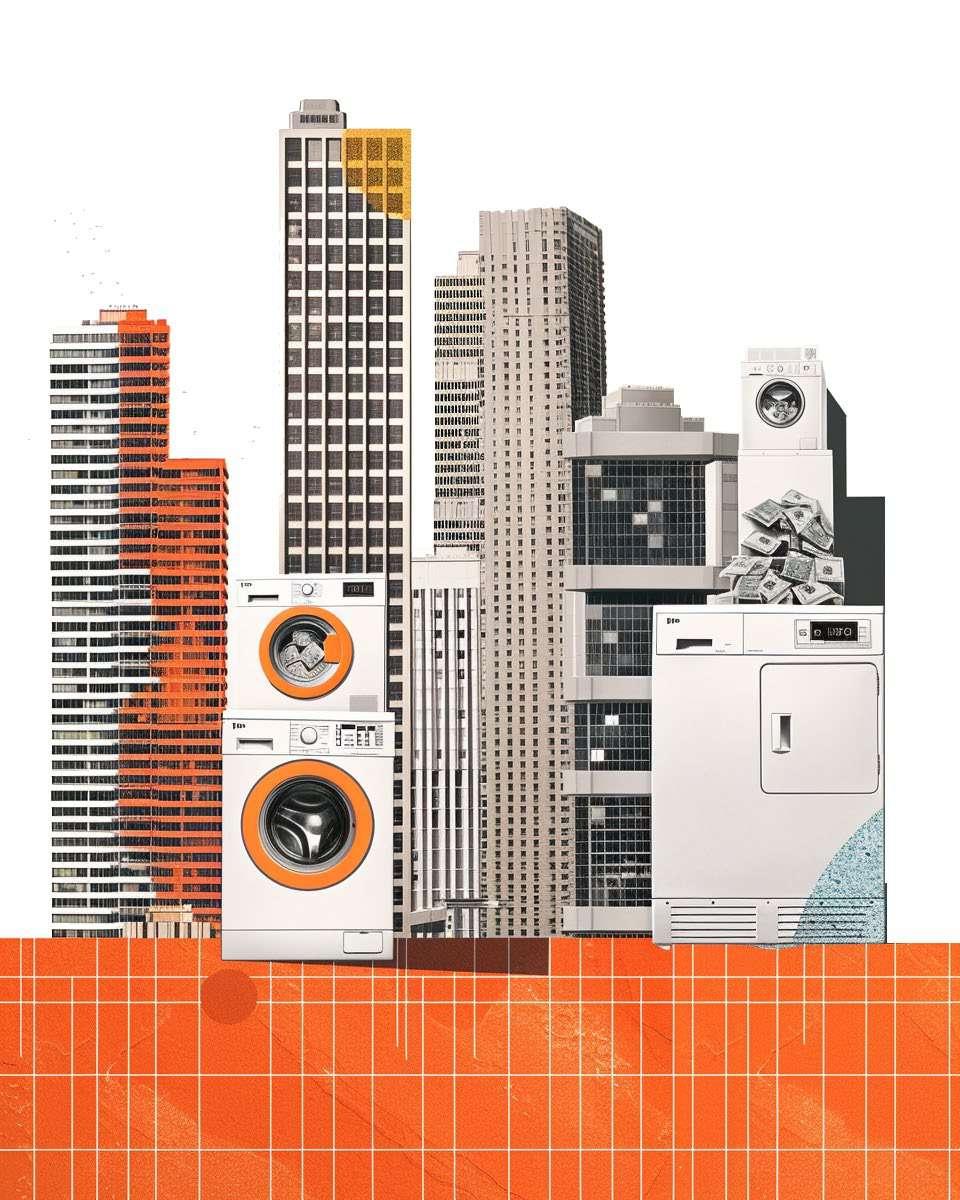

4 60 ANNUAL REPORT 2023

Monitoring state capture redress
Organisations belonging to the Civil Society Working Group on State Capture put together a working document in 2023, in which each of them reflected on the

to the office of the president, and when the submission was ignored and the appointments made, we took the matter further by applying to the Constitutional Court to have the appointments declared invalid while the procedural issues of appointment were being rectified.
Through the exercise, the collective of organisations aimed to highlight both the achievements of the commission from each of their perspectives, as well as the missed A Collective Civil Society Response to the Zondo Commission and the State Capture Report, the document was made public in early March 2024 with the view of recording the recommendations that the respective organisations would be tracking in the interest of transparency
Upholding the human
Extending our efforts to highlight the human rights agenda in the act of blowing the whistle on corruption, CW heeded the call to input into a report of the UN Special Rapporteur on human rights defenders, meant for presentation to the UN General Assembly in October 2023.
Submissions were to centre on the specific challenges faced by women human rights defenders working in conflict, post-conflict, or crisis-affected settings. Our focus was on whistle-blowers who brought much of the evidence heard at the state capture commission to light as well as other types
The circumstances under which whistle-blowers find themselves in South Africa can be dangerous, even deadly, as several cases in recent years have shown.
We made several recommendations that call for the strengthening of structures that support and protect whistle-blowers across the world.

ANTI-CORRUPTION INITIATIVES

ANTI-CORRUPTION INITIATIVES: Highlights and Challenges
Sustainable Mining
Communities that are affected by mining operations across South Africa have several common challenges that if not addressed urgently and adequately, will have a lasting negative impact on their potential livelihoods and, as CW has discovered over time, their lives. From poor or no consultation by mining companies and local authorities, to broken promises of upliftment and weak governance structures, resulting in lack of protection of their basic rights, they have problems aplenty.
For that reason, CW has been exploring some initiatives in the interest of bettering governance and transparency in the interactions between mining companies and the communities they operate in.
CW has been part of Transparency International’s (TI) Accountable Mining Programme since 2016. The programme, which involves over 20 of the movement’s chapters across the globe – widely covers the corruption of vulnerabilities in the application phase of mining and advocates for good governance, accountability, and transparency in the approval stage of the mining value chain. It also empowers mining-affected communities in terms of their rights and responsibilities, and the policies and laws that should protect them. The implementation of these laws and policies, however, is an existential challenge for many of these communities, as the CW team that has engaged in various community engagements that form part of the EU Rallying Efforts to Accelerate Progress (REAP) project, has discovered over time.
CW attorney and member of the REAP project team Nkululeko Conco describes the experiences of communities affected by mining as disturbing, considering that their dire living conditions and suffering are almost always due to protocols not being followed by those entrusted with the responsibility of ensuring sustainable livelihoods for them.
In 2023, Conco and team marked the mid-term project evaluation of the REAP project by looking into the best approaches for intervention for the community served by the Matjhabeng Local Muncipality in the Free State. The economy of Nyakallong in Allanridge, Matjhabeng, and the surrounding areas is supported by mining, agriculture, and manufacturing. The team first engaged with the communities in 2022, an assignment that revealed glaring gaps showing the lack of adequate consultation with the community across several service delivery outputs.
The area has inadequate housing for the number of people living and working in it, and where there are houses, a common problem of asbestos roofs persists. The condition of the houses that were previously maintained by Harmony Gold is deteriorating, and the municipality has not taken over their maintenance. Furthermore, the community reports that wastewater levels in the nearby Voelpan Dam have risen to the point that they flow into the backyards of some of the houses. It has emerged that this is due to Harmony Gold allegedly discharging wastewater into the dam since 2019.
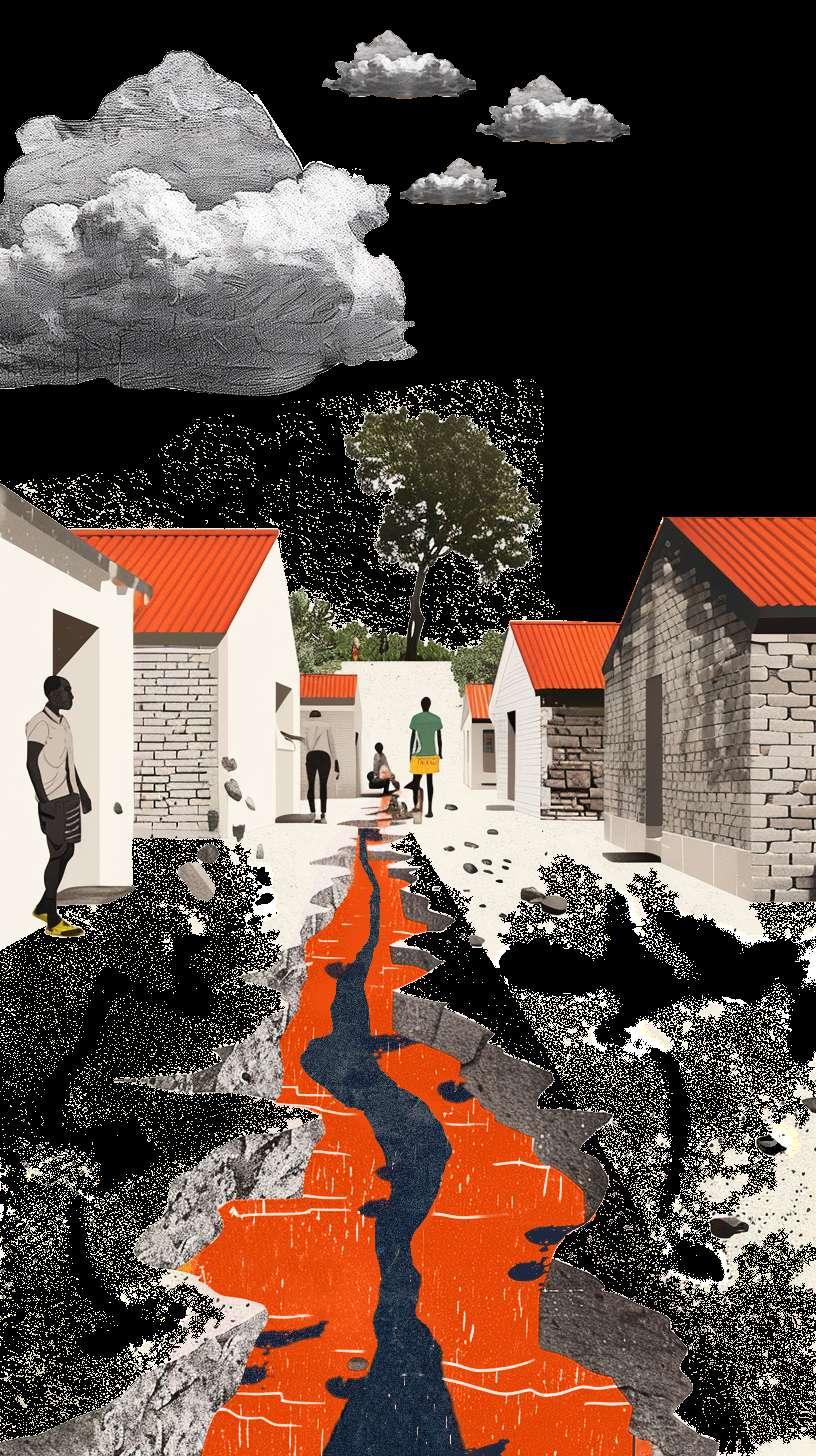
4 62
ANNUAL REPORT 2023

The company was reported in the media in November 2023 as having admitted to the act, and committing to a rehabilitation plan
A deeper interrogation of the status quo reveals that the mine’s social and labour plans (SLP) do not correlate with the municipal infrastructure development plans. This anomaly occurs in several miningaffected communities where the team have held engagements, in the North West, Mpumalanga, and KwaZulu-Natal provinces.
“The idea is that SLPs support and augment what the municipality has already planned, but what ends up happening in a number of cases is that the municipality seems to prepare its plans with minimal consultation, and then the SLPs are then used as a way to fund some of these municipal integrated development plans instead of the SLP coming in to add support and strength to the already existing plans,” Conco explains.
The situation is not that much better in the more rural communities that typically fall under tribal authorities. There too, many of the protocols that must be followed are not, and often it is the communities that are adversely affected.
These individuals are elected to liaise with the mine authorities on their SLPs, and to lead the engagements that cover the social responsibility aspect of the mine in relation to the affected community. They are also the conduit between the mine and community on all other areas of concern.
But the reality in many cases is that mining operations commence and are carried out without this important step having been finalised. More often than not, says Conco, what happens is that communities are divided on priorities and who to elect, with no one formal structure representing their common interests. Where forums or committees are established, they may lack formal processes like a constitution by which the forum is run, or their powers may be abused by the occupants of those positions, who then gatekeep on important processes like recruitment of labour for the mine. They may also simply fail in the basic duty of relaying the concerns of the most marginalised in the community. It is in such conditions that corruption and the lapse of accountable mechanisms emerge.
A common challenge is that of poorly managed or non-existent governance structures within members of the community. Typically, prior to mining companies starting with operations in populated areas, there is a requirement for the establishment of community representative forums made up of a few individuals who then serve on the instruction of, and in the best interest of,
The community fora are meant to liaise with the mining houses on behalf of the community, they’re meant to have elected people from the community and are meant to report back to the community and take instructions from them.
Even in circumstances where mining companies have tangible, sustainable SLPs, these cannot thrive in tense environments where governance isn’t prioritised. In the absence of practical resolutions from the Department of Mineral Resources and Energy, which is the custodian of sustainable mining processes, the work of civil society takes over.
63
ANTI-CORRUPTION INITIATIVES
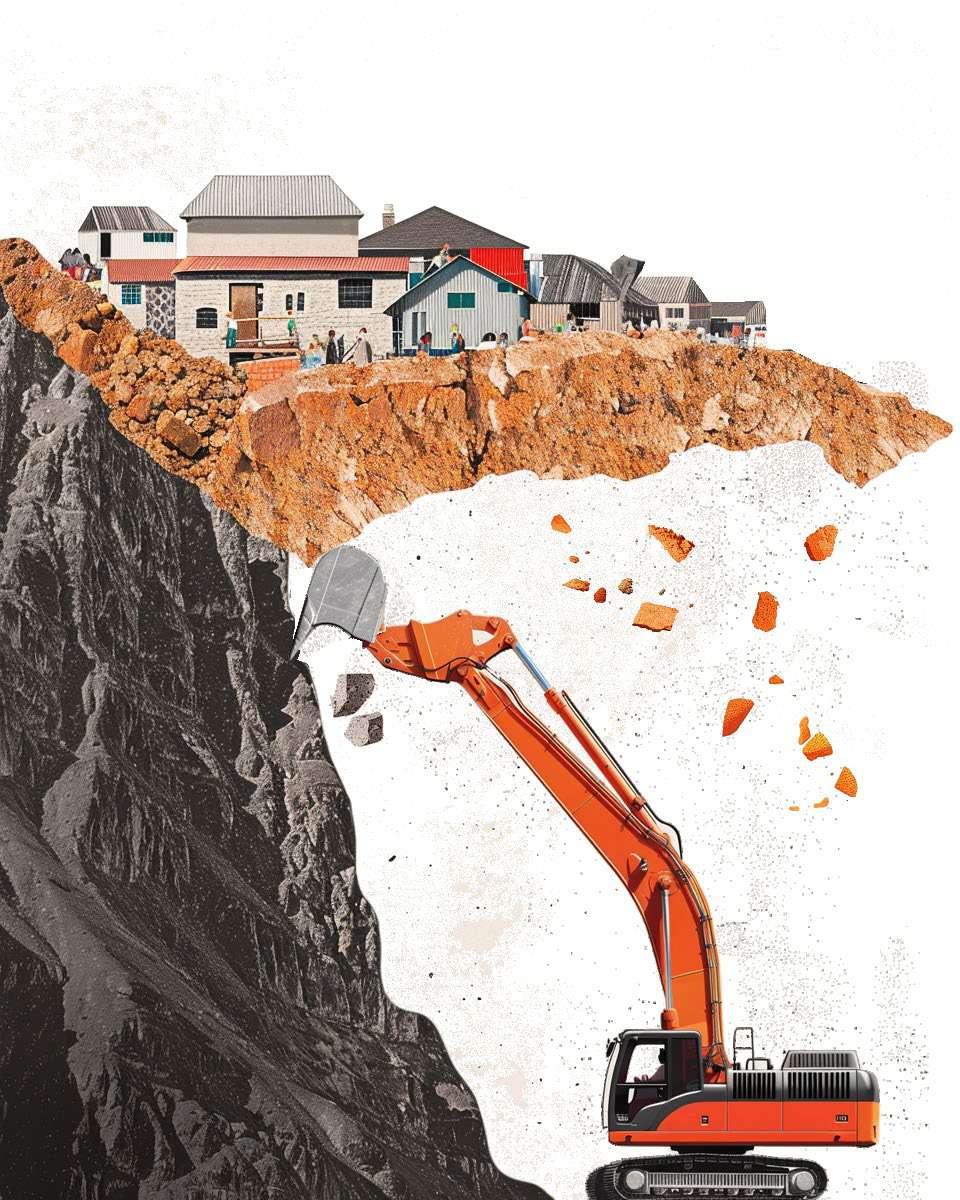

Capacitating mining communities
This is where the initiatives of CW and several stakeholders come in. After all, the project goals of REAP are in the name: to accelerate progress in empowering the most vulnerable groups in the mining sector.
The next steps of the project involve collaborative efforts between CW and several stakeholders including other social justice movements, the public sector, and mining industry players.
According to Conco, the strategy is to work on empowering communities by educating them on the importance of structure and good governance practices. Along with building capacity in those areas, there are basic initiatives to follow up on, including business literacy and integrity training for communities involved in the mining life cycle. The team looks to borrow from the model of clinic committees and public school governing bodies, for instance, which have long been established in communities.
Conco acknowledges that each case is different from the next, and therefore priorities may differ.
But a common need across the board is that of well positioned, well resourced community structures that are able to fully interrogate the business of mining on their land, understand how it impacts them, and insist on its benefits being those of a sustainable nature, for future generations that will likely outlive the mines as well.
Lessons and partnerships
To achieve all of the above, CW would not be able to do the work it does in communities without having built strong collaborations with like-minded organisations with an interest in the progress of mine-affected communities.
Among these organisations are the Bench Marks Foundation and the Mining Affected Communities United in Action. We have continued to work with both, to identify the gaps that need attention in the work of empowering communities. As is customary for us and other civil society organisations in the space, the CW team also participated in the Alternative Mining Indaba (AMI), held annually on the sidelines of the Mining Indaba in Cape Town. It is also on this platform that we can monitor the collaborative work that we do in this area with other TI chapters in the region.
The AMI is an opportune platform for drawing on regional and international experiences in several areas, including the social responsibility goals of the mining industry, governments’ developmental achievements and goals in addressing issues affecting mine-affected communities, and initiatives of community organisations involved in this dynamic, among others.
The Extractives Industries Transparency Initiative (EITI), which CW has written about in past annual reports, remains an important part of our work. CW continues to advocate for South Africa becoming a member and adopting the standards of the initiative. The EITI is the leading global standardsetting body in oil, gas, and minerals transparency. CW has maintained a successful partnership with the EITI, working closely with its secretariat on their outreach activities in South Africa.
We have also previously released two reports relating to the EITI and the importance of beneficial ownership transparency in the extractives industry, and will continue with research in that area.
65
ANTI-CORRUPTION INITIATIVES
Reflections on gendered violence and corruption in an election year
By Siphokuhle Mkancu
As South Africa prepares for its much-anticipated elections in May, and political parties rally behind their manifestos full of promises of change, it is important for us as the citizenry to actively reflect on one of the most provocative topics on society’s radar: gender-based violence (GBV). Beyond that, we should confront the corruption that engulfs its criminal cases, and the unspoken added trauma to victims at the hands of those entrusted with protecting them.
The gendered forms of violence that are deeply entrenched in our society invite an important question: where is the will of South Africa’s political leadership to address not only the country’s high levels of GBV, but also the extent to which its persistently rising cases are affected by power dynamics and vulnerabilities brought about by corruption in the law enforcement sector.
Reality vs priority
CW receives a significant number of complaints every year that relate to impropriety by police. Among these are worrying accounts of reports potentially fuelled by the high presence of gender stereotypes. In other words, reports that highlight the vulnerability of women and members of the LGBTQ+ community at the hands of those in the criminal justice system. The incidents of abuse of power, sextortion, and other crimes alleged by reporters may be isolated, but viewed collectively, they paint a picture of the reality of distortion of power against these groups relative to their vulnerability.
Furthermore, they occur in an environment that enables their prevalence due to the misalignment of strategies in dealing with this often-dual challenge. According to much of the messaging of political parties, there is GBV and there is corruption. By treating them as separate issues that do not often merge, to the detriment of vulnerable sectors in our communities, politicians are missing the opportunity to rectify a culture of abuse of power and negligence in the country’s criminal justice system.
An academic research paper authored under the auspices of the UN Office on Drugs and Crime (UNODC) and the Global Resource for Anti-Corruption Education and Youth Empowerment, dedicates a module to corruption and gender that elaborates on this issue:
…the gendered impact of corruption is related to societal gender roles, social inequality, and discrimination. Thus, women's disadvantages in many areas of life result in greater vulnerability to corruption compared to men, who enjoy more power and protection, and better access to countervailing strategies, including the justice system.


4 ANNUAL REPORT 2023 76
CW VOICES


Women, LGBTQ+ people, children, and other minorities are so vulnerable to femicide, sexual abuse, and exploitation in South Africa, that the country is considered to have among the highest incidents of rape in the world. In the first quarters of both 2022 and 2023, there were more than 10 000 rape cases reported, and in many cases, the victims’ assailants were their male intimate partners. The rate at which women are killed by their partners in our country is five times higher than the global average.
We are also a country gripped by corruption, where the two scenarios merge to create a societal crisis that cannot go on unabated. The UNODC paper further notes that “corruption severely influences the extent to which women’s rights are ensured and protected… law enforcement institutions and processes may rely only on anecdotal evidence, which leaves room for discretion by officials and therefore corruption such as bribe-seeking and extortion.”
The lived reality for many women and members of the LBGTQ+ community, certainly for those who bring corruption to us and many others who may not out of fear, is that this lack of protection adds to the trauma and brutality of the physical violence.
77
CW VOICES
Violence against the vulnerable
We have in the past few years also witnessed the lives of the vulnerable and marginalised being hit the hardest by ongoing social issues. We now know that the Covid-19 pandemic intensified femicide and domestic violence as per data released by the South African Police Service (SAPS) in 2021: “…As the country moved into level three of lockdown, it witnessed a spate of brutal femicide cases.” The stress, financial uncertainty, and the psychological impact of the pandemic became the driving factors of GBV, and by 2022 nine women were murdered every day in South Africa.
In the same year, over 400 people lost their lives from one of the deadliest natural disasters, the floods in KwaZulu-Natal. A disaster of this nature –or climate change in general – has a unique ripple effect on women. About 40 000 residents were displaced, and this may have inadvertently exposed girls and women to sexual and physical abuse in vulnerable circumstances. There was increased food insecurity when already the burden of providing food and other essentials falls on women in many families. The floods hindered access to education and healthcare for some time and, particularly for women, access to reproductive healthcare services. Over 240 schools and 84 clinics were reported to have been damaged.
It is not to say the impact of the disaster has not been devastating on men, but there is a daily unspoken likelihood of cases of those in power, authorised in whatever capacity, potentially abusing it to the detriment of women – based solely on their vulnerability in situations of trauma and devastation.
The gendered impact of corruption
As we demand an end to the rampant and devastating effect corruption has on our society, we must acknowledge that it threatened lives and livelihoods of those who expose it, and impended access to basic services such as health, education, and social grants for many more.
We also must recognise the levels of impunity with which those with political and financial power have operated in a culture that doesn’t prioritise accountability.
Individuals implicated in corruption remain in key positions, abusing their power. Some move from one public institution to the next, while others still participate in the procurement environment, exposing the lack of political will to prevent corruption or hold many of its perpetrators accountable.
This has disproportionately affected the most vulnerable groups, especially poor and working-class people who rely heavily on service delivery and public resources that are often depleted by corruption or diverted into private pockets, creating more vulnerabilities for groups that already have less power, safety, and protection.
Women are often forced to secure access to these services and public resources through the exchange of sexual favours – in a word, sextortion. It is both a form of corruption and sexual violence, as explained by Transparency International: “A request (implicit or explicit) to engage in a form of unwanted sexual activity, which should be understood beyond simply sexual intercourse. It includes being forced to expose private body parts, demanding pictures or pornographic material, and unwanted touching. Furthermore, the person making the request must occupy a position of authority, which they abuse by exacting or accepting the sexual component/benefit in exchange for exercising the power that was entrusted to them.”
Considering the role played by women in ensuring that their families have access to education and health, they are more likely to be asked to pay such bribes to access these services.
Election messaging on GBV-related corruption key
When making a political choice or engaging with a political party’s manifesto, we must recognise that it is not enough for political parties to simply acknowledge the impact of patriarchal violence –they should have solutions to it. Feminist author and activist Prof. Pumla Gqola reminds us in the book Female Fear Factory to “think against [patriarchy], strategise against it, and consistently work to destroy it.”

4 ANNUAL REPORT 2023 78
Historically there have been inadequate responses to the violence – very few GBV desks and rape kits are available at police stations, while shelters meant to care for GBV survivors have experienced funding challenges.
There must be a stronger commitment to addressing the legal and psycho-social needs of victims and survivors of GBV. Interventions are needed to shift harmful gender norms, moving us towards positive gender socialisation. The implementation and enforcement of the three GBV laws –the Criminal Law (Sexual Offences and Related Matters) Amendment Act, the Criminal and Related Matters Amendment Act, and the Domestic Violence Amendment Act must be improved to prevent the ongoing human rights violations against women.
Furthermore, an intentional strategy driven by the principles of our Constitution should be used in the sensitivity and responsiveness training of our police. It is not enough to establish GBV trauma centres at selected police stations across the country.

The will to change the way in which the police respond to victims of GBV and hate crimes should be there.
From the political parties competing for votes in the upcoming elections, there should be thorough understanding, in their messages, that it isn’t only for women to raise awareness on violence driven by patriarchy in our society. It is for any form of government that comes into power to decisively engage on the same level as every other societal ill, understanding that the key issue is not how to respond to it, but how to prevent it, along with the corruption that often follows it.
77 CW VOICES
2024: The change that Tintswalo needs
As CW releases this annual report, South Africa stands on the brink of its seventh democratic elections, happening during an abundance of challenges, and representing what some have described as a second shot at democracy. This statement implies that the ANC’s 30-year rule has failed to produce a true democracy – but even if it did at some point look like the right party to administer this huge task, there is no doubt public confidence in its leadership has decreased.
This 2024 election is the country’s biggest yet, with over 300 contenders on the ballot paper, vying for the votes of some 27-million registered voters as announced by the Independent Electoral Commission in February, a number higher than the previous few elections.
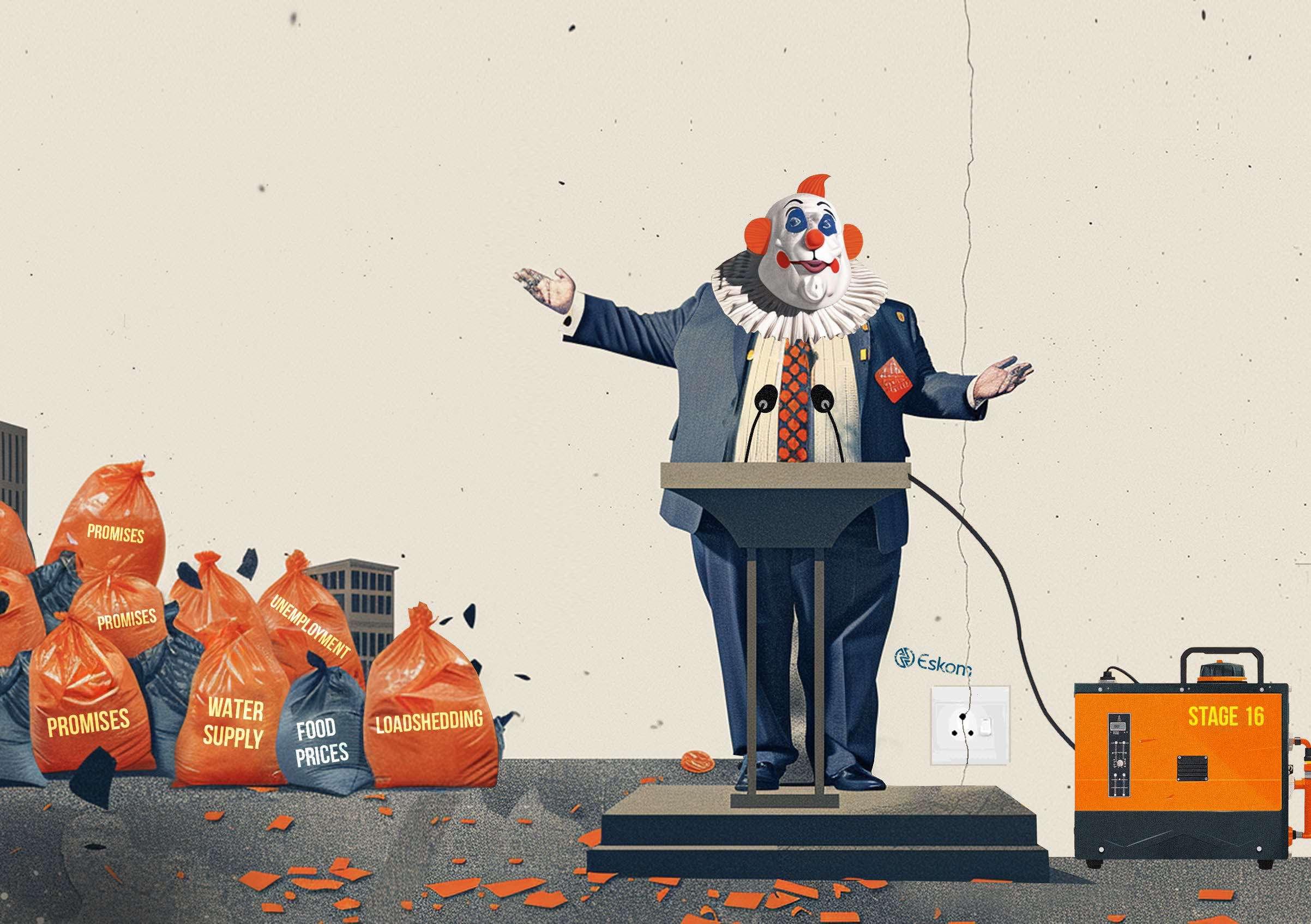
There are clear intentions from many circles of our society to change the status quo and lessen the influence of the ANC both nationally and in provinces. Whether the changes will happen at a notable rate or not remains to be seen, and with64 elections happening around the world this year, South Africa’s are surely among the most interesting.
It is, however, not difficult to put a cost to the crisis of leadership that the country finds itself in currently. Local and provincial authorities haphazardly deliver basic services, with either collapsing or collapsed governance structures that no longer serve their purpose. The quality and strength of our police service and its ability to counter the high rate of crime has diminished. Households have had to come to terms with loadshedding as a constant feature in our lives, and large components of our public transport system are in shambles. And these are just the tip of the iceberg.
ANNUAL REPORT 2023 80
CW VOICES

Divorced from reality
It is under these circumstances that President Cyril Ramaphosa made his last State of the Nation (Sona) speech of the current administration. For 90 minutes he spoke about the gains of government under his party, but neglected to reflect the immediate realities of millions of South Africans as spelled out above.
Although he did acknowledge that the ANC still had some way to go in turning the tide for many of the poor South Africans who depend on the services of government, he left out the longed-for tangible solutions for their everyday challenges that include loadshedding, high food prices, irregular or scant water supply, unemployment, and many others.
Even the Tintswalo character that he used to relay his government’s service delivery wins over the last 30 years is not living the true experience of a typical South African youth, because if she were, she would be going through a lot of anxiety about the true state of the country she lives in.
For those who did not watch the Sona live due to loadshedding, lack of interest or any other reason, here goes: “The story of the first 30 years of our democracy can be best told through the life of a child called Tintswalo, born at the dawn of freedom in 1994. Tintswalo – democracy’s child –grew up in a society that was worlds apart from the South Africa of her parents, grandparents, and great-grandparents.”
Ramaphosa waxed lyrical about how Tintswalo benefited from policies of the democratic dispensation that allowed her access to free public healthcare, an RDP house, funding for her education provided for by the National Student Funding Scheme (NSFAS) and later in her young life, employment enabled through black economic empowerment. In reality, Tintswalo’s story, at least as told by the president, is full of gaps that show that she’s either been immensely blessed to be protected from the harsh everyday corruption that engulfs these milestones, or she simply does not exist.
Tintswalo, the imaginary friend
To illustrate this, let’s start at the end. Tintswalo’s fate, ending in finding employment, means that she beat the odds that five-million others born in or around the same time as her, could not. She probably was not exposed to the rife sextortion that distresses many of her age mates who, desperate for jobs that they are adequately qualified for, are asked to do sexual favours for senior public or private sector officials who abuse their powers without consideration for the damage this does to the psyche of a young person.
A further indictment on Ramaphosa’s government is that to study further, Tintswalo’s peers would have had to overcome the inefficiencies of a NSFAS overcome with corruption and leadership shortcomings. As things stand, there are standing corruption allegations against the scheme’s chairperson Ernest Khosa as well as Minister of Higher Education Blad Nzimande. Both have denied the allegations and challenged civil society organisation Outa to prove them. Nzimande has, however, acknowledged that there are challenges in getting funding to all the one-million-plus students per year who rely on the scheme. Even as Ramaphosa stood on the stage and spoke of NSFAS benefiting Tintswalo, he did not acknowledge the plight of thousands who did not make the cut for funding this year.
Such is the long-standing rot associated with the scheme that the Special Investigating Unit (SIU) reported to Parliament recently that it had recovered more than R700-million from unallocated funds stemming from poor accounting systems at the scheme. Through investigations, millions more were discovered to have been owed to NSFAS by either parents and students who benefited unlawfully, or by higher education institutions, for which the SIU has secured acknowledges of debt. So, unlike Tintswalo, many young people with potential and a willingness to study are deprived of such because of corrupt or incompetent elements in the system.
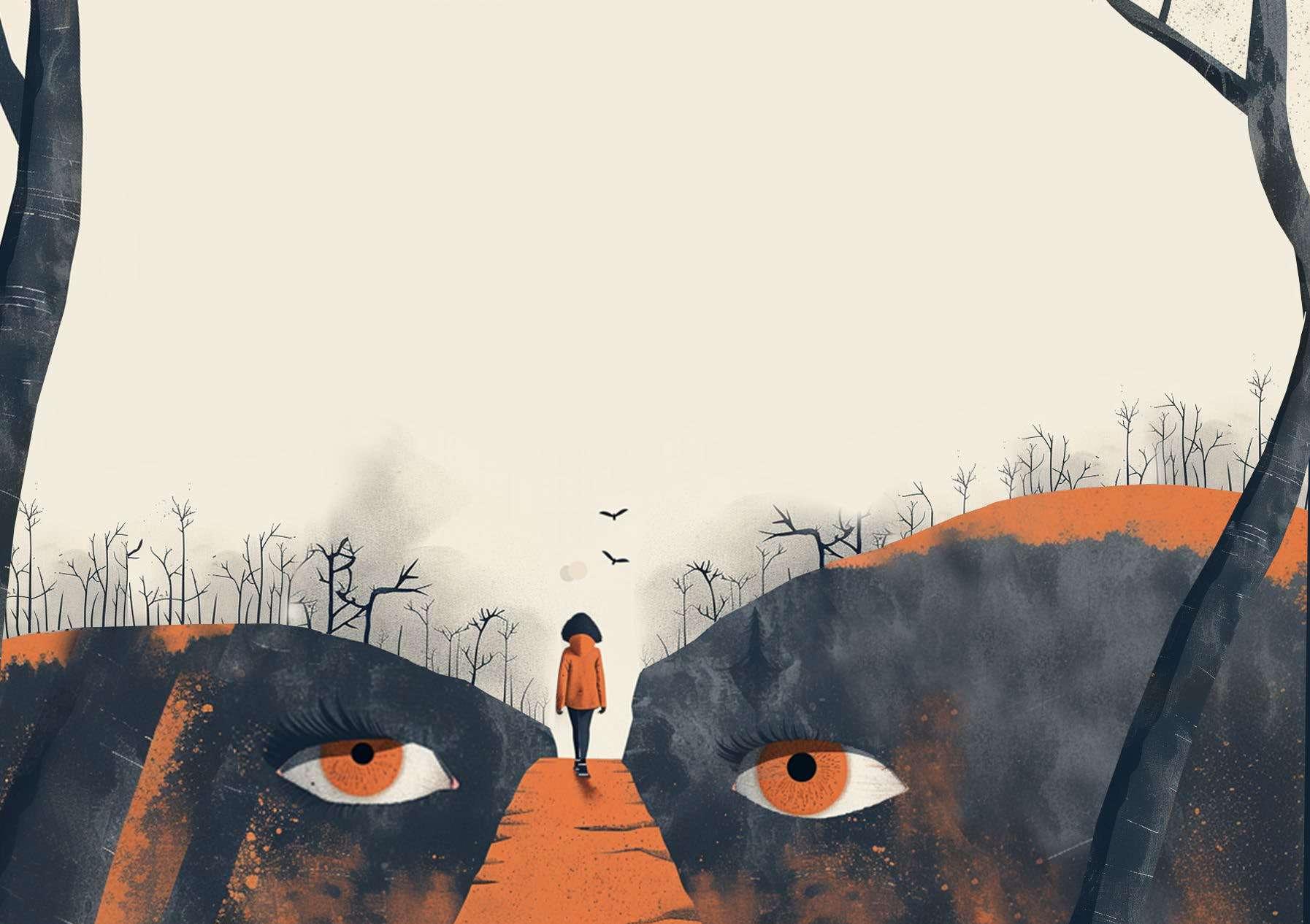

82
ANNUAL REPORT 2023
Corruption holds us back
Among those who applauded the president’s account of Tintswalo’s journey were Cabinet ministers who oversee the portfolios of housing –through which Tintswalo’s family received a house –and police. Both ministers, along with their colleagues in trade and industry, small business development, finance among others, should be privy to the work and findings of the Infrastructure Built Anti-Corruption Forum, formed in 2022, on the impact of construction mafias across the country that have captured the sector, reportedly at a cost of billions of rands.
For many who deserve the same benefit as Tintswalo’s family, that of government-issued housing, the impact of the mafias may imply that there will be delays in the delivery of such housing because of the circumstances that construction companies find themselves in. And once those houses are built and ready to be allocated, the reality of corruption in that process will become a lived experience. While the South African Police Service has announced some inroads in dealing with this relatively new phenomenon of mafias, much more is needed to arrest this and other sector-focused mafias that have become the bane of the existence of law enforcement agencies.
In a nutshell, Tintswalo’s life journey - whether the figment of our president’s imagination or not –would be reason for celebration if the country was not gripped with growing corruption that disables government’s service delivery goals at every turn and impacts the lives of millions of people negatively.
If the leaders of our country were truly invested in continuing with the service delivery goals of this democratic dispensation, they would publicly acknowledge the systemic flaws that make it difficult to deliver those services, and to make it possible to tell stories of more Tintswalos. Further to acknowledging these, they would come up with tangible solutions for addressing these challenges.
Because even if a Tintswalo exists, at some point or other she is going to face the true reality of corruption that she would not want to negatively impact the lives of her own children some day.


83
CW VOICES
Board members GOVERNANCE
Two board members resigned from the Corruption Watch board in 2023, namely Mzukisi Qobo and Firoz Cachalia
The current seven members of our board guide our mission and vision.


Themba is the (adjunct) professor and director of Executive Education at the Wits School of Governance. He holds a BA LLB (Wits University) and an MBA (De Montfort University). His career in the public service includes roles as the former CEO of the Government Communication and Information System and government spokesperson; director-general in the Department of Public Service and Administration; and he also served in the National Department of Public Works. He was the first superintendentgeneral in the Gauteng Department of Education and a Member of Parliament in 1994. His role in the private sector included short stints as managing director of the Damelin Education Group, an independent management consultant, and communications director at the Business Leadership South Africa.
He left the public service after 17 years when he became one of the public servants who spoke out against the capture of the South African state and later a witness at the Judicial Commission of Inquiry into State Capture, also known as the Zondo Commission. He is the author of For my Country and serves on the boards of several other civil society organisations including the Council for the Advancement of the South African Constitution and Chapter Zero. He is a trustee of the board of the Nelson Mandela Foundation.


4 ANNUAL REPORT 2023 84


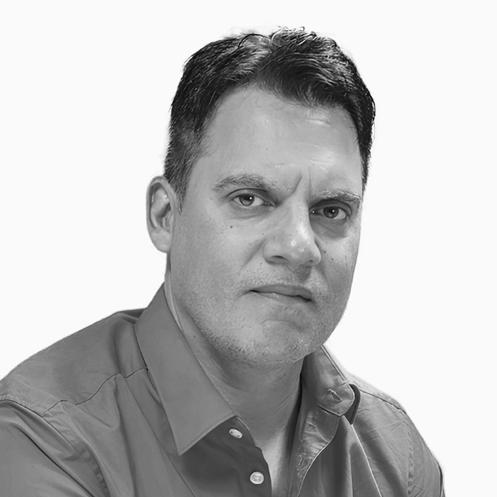
Karam Singh: Executive director
Karam Singh spent the last 10 years or so in senior management for various leading public organisations and a global philanthropy. Previously, he held a leading position with the South African Human Rights Commission with particular expertise in the area of socio-economic rights and most recently, led OSF-SA’s access to justice initiatives.
His interests vary in the areas of anti-corruption, human rights, social justice and access to justice, though one of his over-riding passions is the issue of anti-corruption – this informed his Masters Degree (with distinction) in Constitutional and Administrative Law at the University of Pretoria in 2014.
His formal training has been as an attorney both in the United States and South Africa, and he remains an admitted attorney in the state of New York and in South Africa.



Zukiswa Kota
Zukiswa Kota is currently the programme head for South Africa at the Public Service Accountability Monitor at Rhodes University. She has extensive experience supporting various social and budget justice interventions including the coordination of a civil society coalition working with the National Treasury to develop a pioneer budget portal to deepen public participation, transparency, and fiscal accountability.
In recent years she has contributed to deepening anti-corruption and fiscal transparency in the public sector. She has been a member of South Africa’s interim steering committee for the Open Government Partnership led by the Department of Public Service and Administration. She serves on the board of trustees of the Equal Education Law Centre and My Vote Counts as well as on the advisory board of the Public Economy Project at Wits University. She is a founding chairperson of the Budget Justice Coalition and the Imali Yethu Coalition for Open Budgets.

BOARD MEMBERS 85


Bridgette Mdangayi
Independent board member Bridgette is a cross-sectoral project and programme management professional with experience drawn from a wide range of sectors. Her expertise lies in project formulation/ development, capacity building, contract and grants management, social advocacy and development communications, strategic planning, and stakeholder relations.
She has worked extensively across Africa in socio-economic development, social impact, transformation, and sustainability in both the private and NGO sectors. Previously she led the National Business Initiative's Social Transformation portfolio as Head of Social Transformation. Before that she led the Ford Foundation’s $800 000 grant-funded leadership initiative, designed to mobilise young thought leaders across the continent to drive social cohesion and guide the direction of the continent.


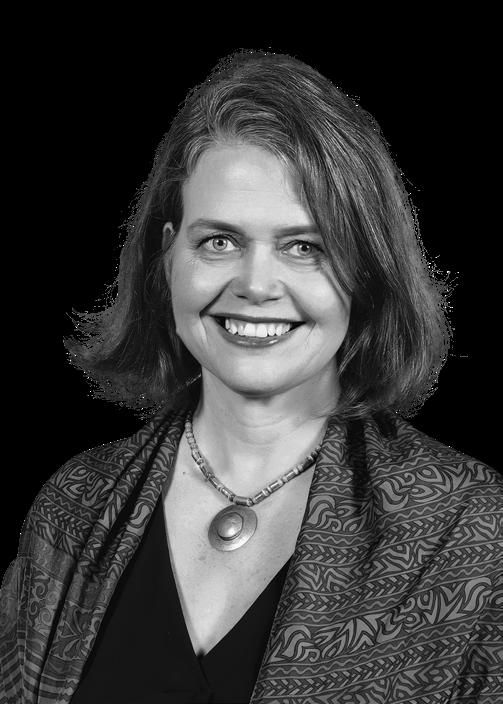
Marianne Giddy (Nee Camerer)
Marianne is a senior lecturer at the University of Cape Town’s (UCT) Nelson Mandela School of Public Governance, where she focuses on ethics, leadership, and accountability, teaching on the leadership modules of the school’s part-time and full-time Masters programme in Development Policy and Practice. She also supervises Masters and PhD students in the area of leadership, accountability and anti-corruption.
She holds Masters’ degrees in Public Policy and Political Philosophy from Oxford and the University of Stellenbosch, and a PhD in Political Studies (University of Witwatersrand). She was selected as a 2005 Yale World Fellow, a prestigious fellowship awarded to emerging leaders from around the world.
Giddy is regarded as an expert on anti-corruption issues. She co-founded the international NGO Global Integrity and served as international director and on the board for ten years (2005-2015). She was a founding director of the Open Democracy Advice Center (ODAC), an NGO monitoring the implementation and encouraging the use of access to information and whistleblower protection laws in South Africa. She has recently been appointed a Trustee of the Institute for Security Studies.


86
ANNUAL REPORT 2023


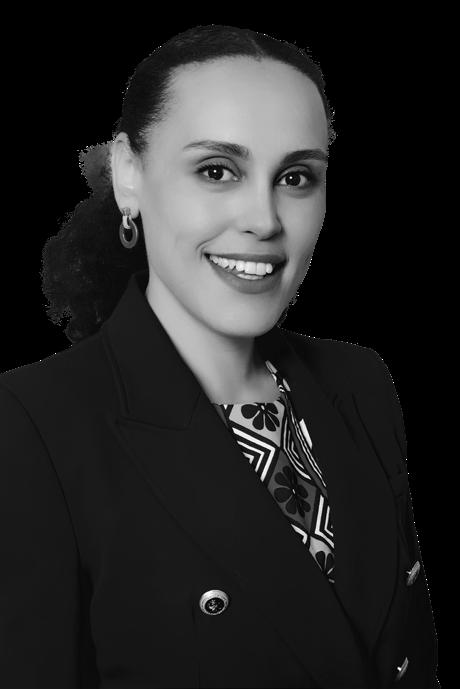
Gugu McLaren-Ushewokunze
Gugu has over 14 years’ experience in social and sustainable development. She has worked across sectors, including civil society, consulting and corporate, and in varying industries. Most of her career has been spent in the corporate sector, where she spearheaded the development and the implementation of sustainable development strategies. She spent six years at Discovery, where she supported the company’s shared value business model.
She leads the National Business Initiative’s Social Transformation programme, where her responsibilities include developing and implementing the NBI’s programme to engage business in driving social transformation, with the aim of addressing inequality and inequity. The programme focuses on companies’ internal transformation, and creating diverse and inclusive organisations, skills and youth employability, anti-corruption and encompasses businesses’ relationship with society.
She holds a MSocSc in Gender Studies and BSocSc in Psychology and Gender Studies from the University of Cape Town.


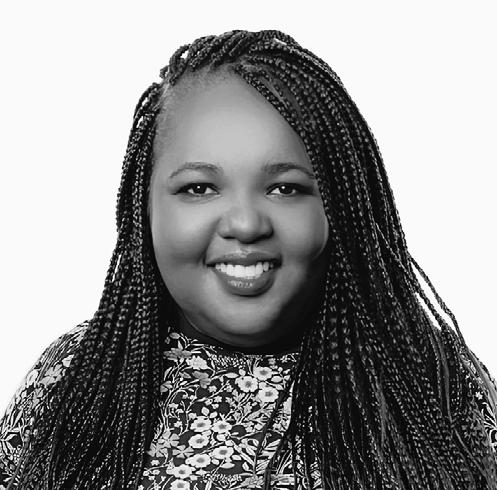
Karabo Rajuili
Karabo is Director of Country Implementation at Open Ownership, providing country support to governments implementing beneficial ownership transparency. Before this, she worked for five years at award-winning independent investigative journalism centre amaBhungane, as the advocacy coordinator.
While at amaBhungane, she served as country chair and regional support (Africa) for the World Association of Newspapers and News Publishers (WAN-IFRA) Media Freedom Committees in South Africa, Uganda and Kenya, working with senior journalists and editors in print, digital and broadcast media. She also worked to secure information rights in the interest of investigative journalism and, wherever possible, the wider public, on an array of policy areas including cyber security, digital rights, the intersection of privacy and access to information laws and beneficial ownership transparency in procurement law reform.
She worked on the most recent review of South Africa’s Companies Act and was part of successful efforts to advocate for and subsequently draft South Africa’s first political party financial transparency law.

87
BOARD MEMBERS
ANTONY BALL
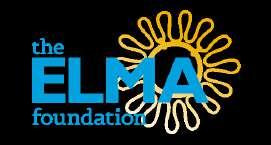
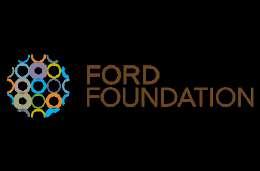





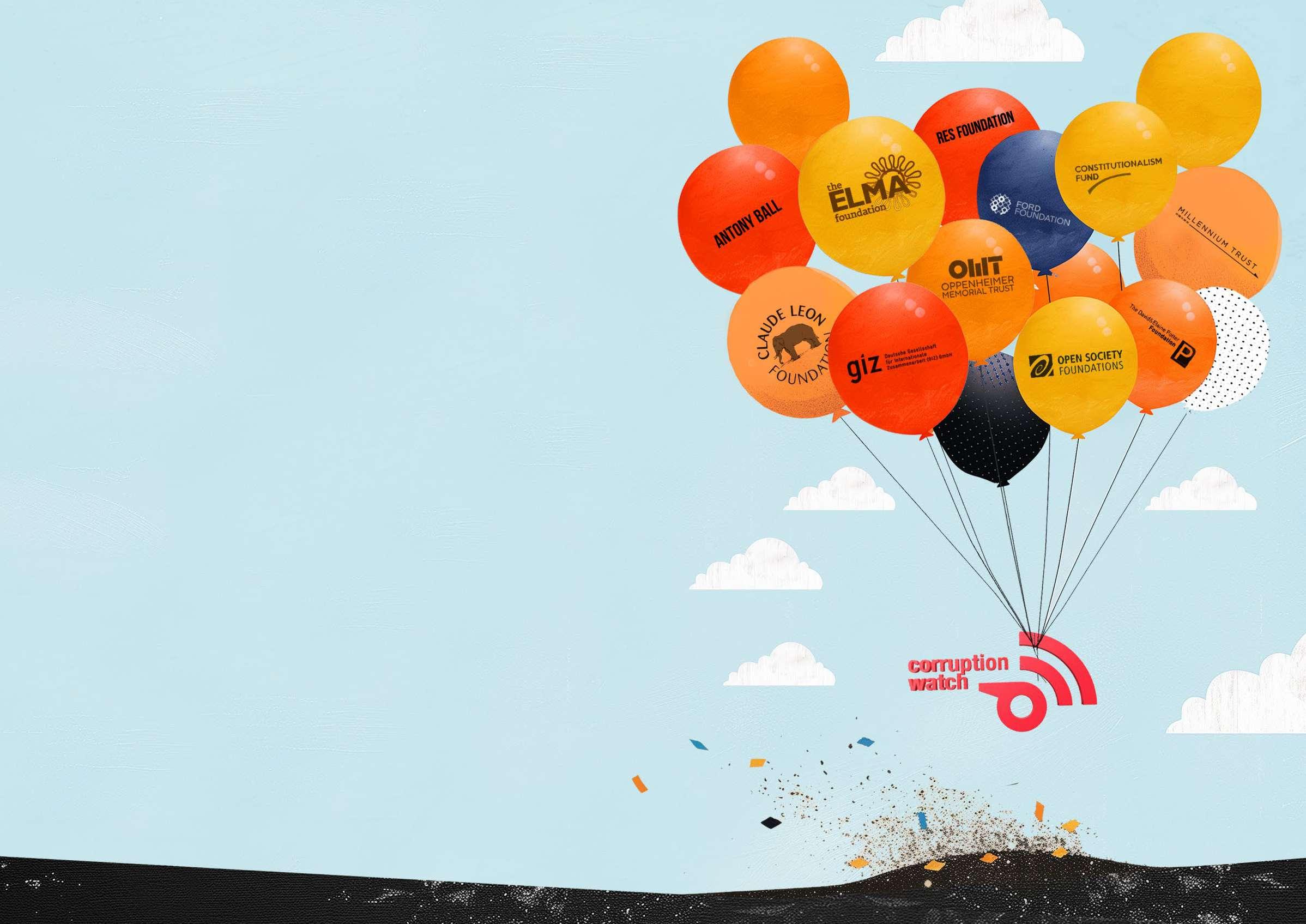

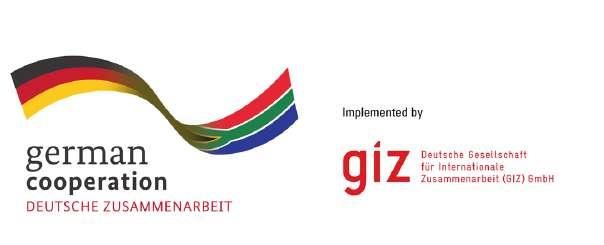
res foundation
ANNUAL REPORT 2023 88
Funders GOVERNANCE

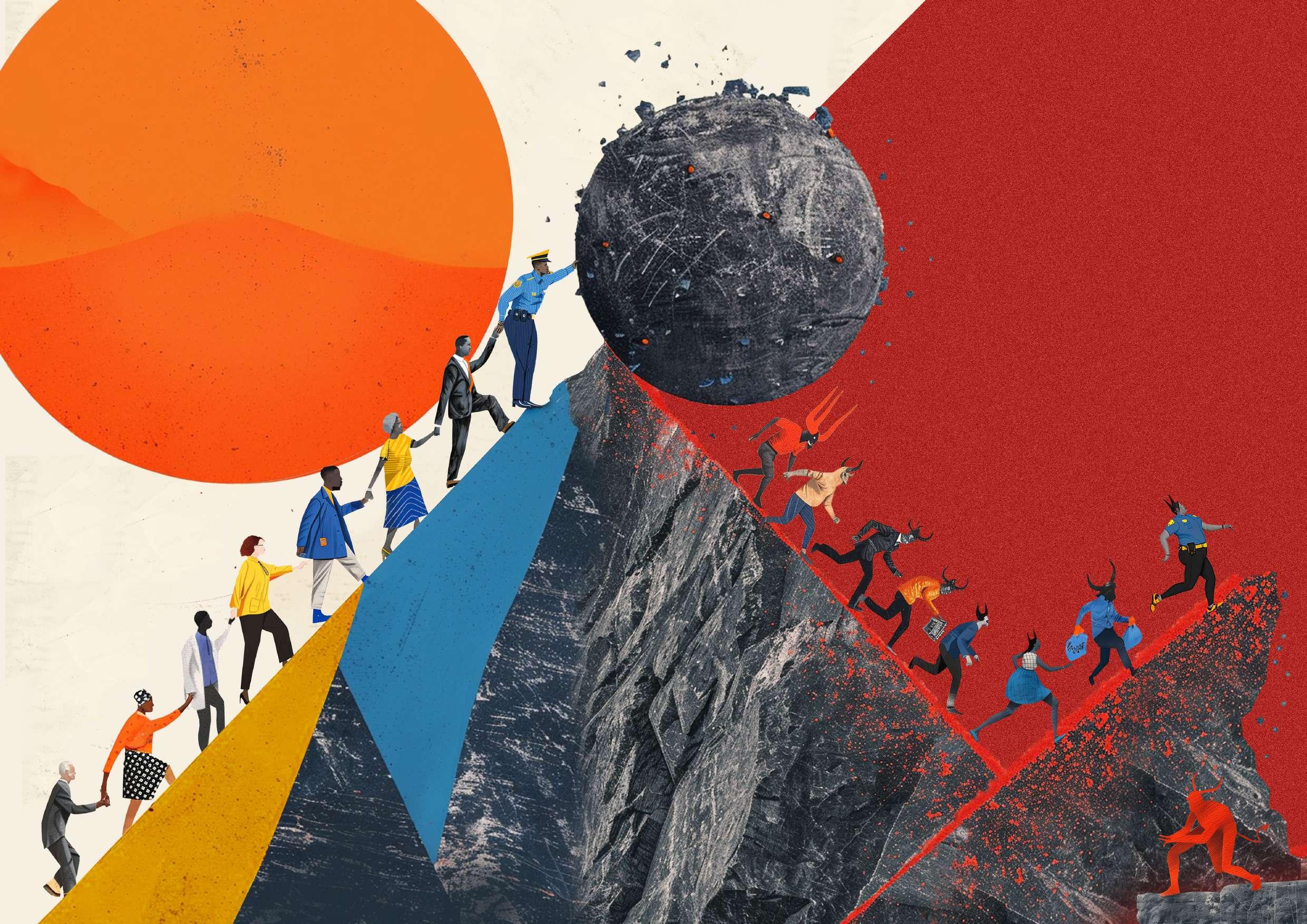
corruptionwatch.org.za


T: 011 242 3900
F: 011 403 2392
info@corruptionwatch.org.za
corruptionwatch.org.za
CORRUPTION WATCH (RF) NPC
AGENT ORANGE DESIGN
































































































































